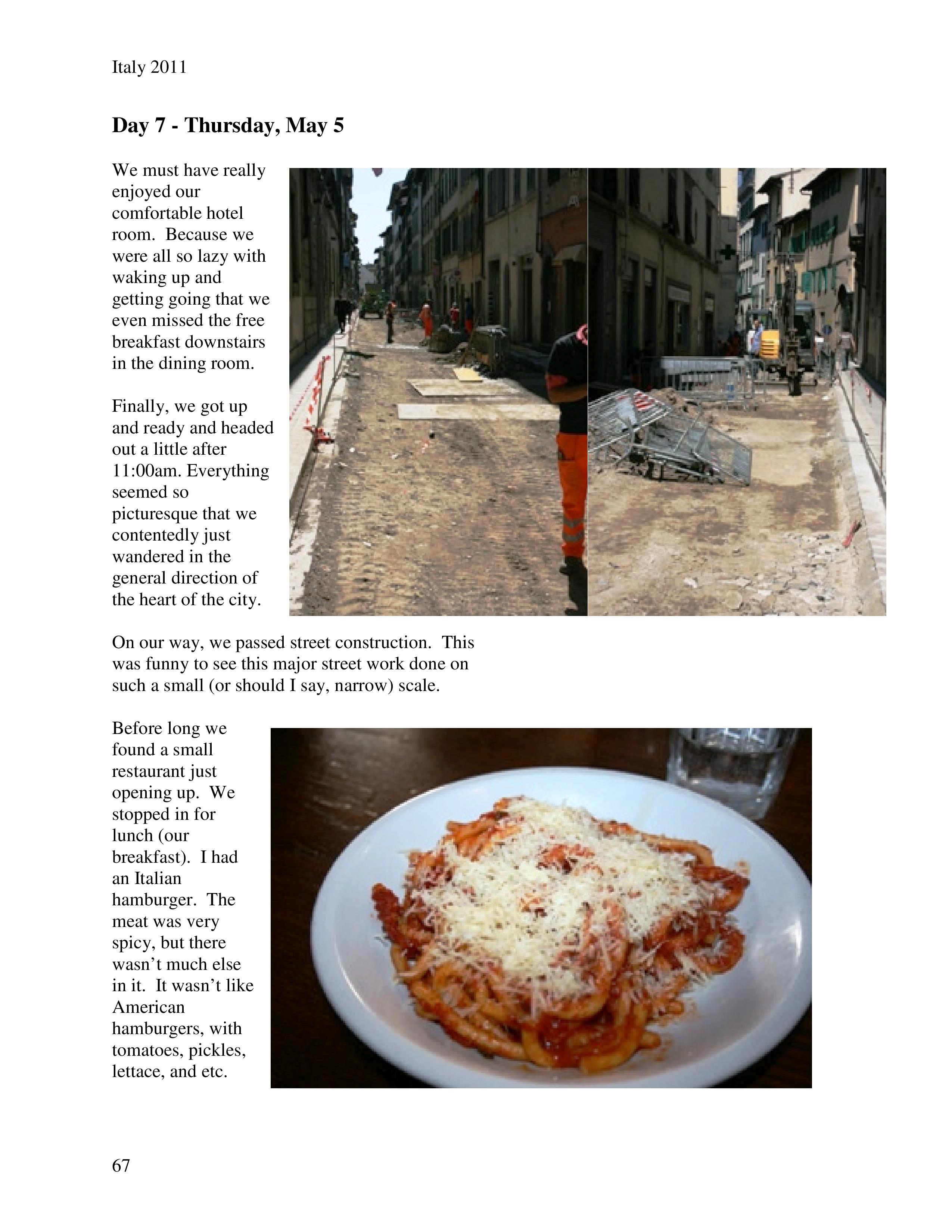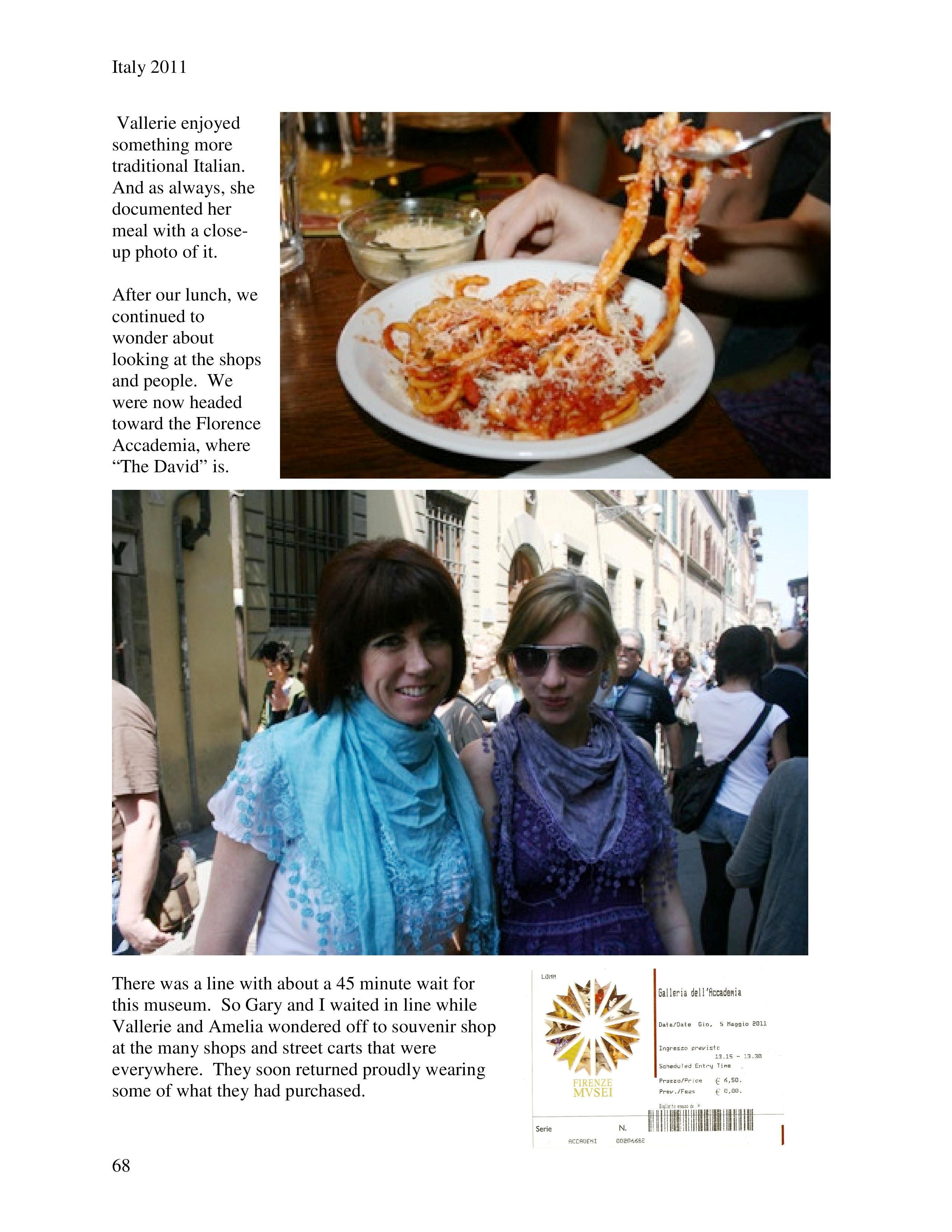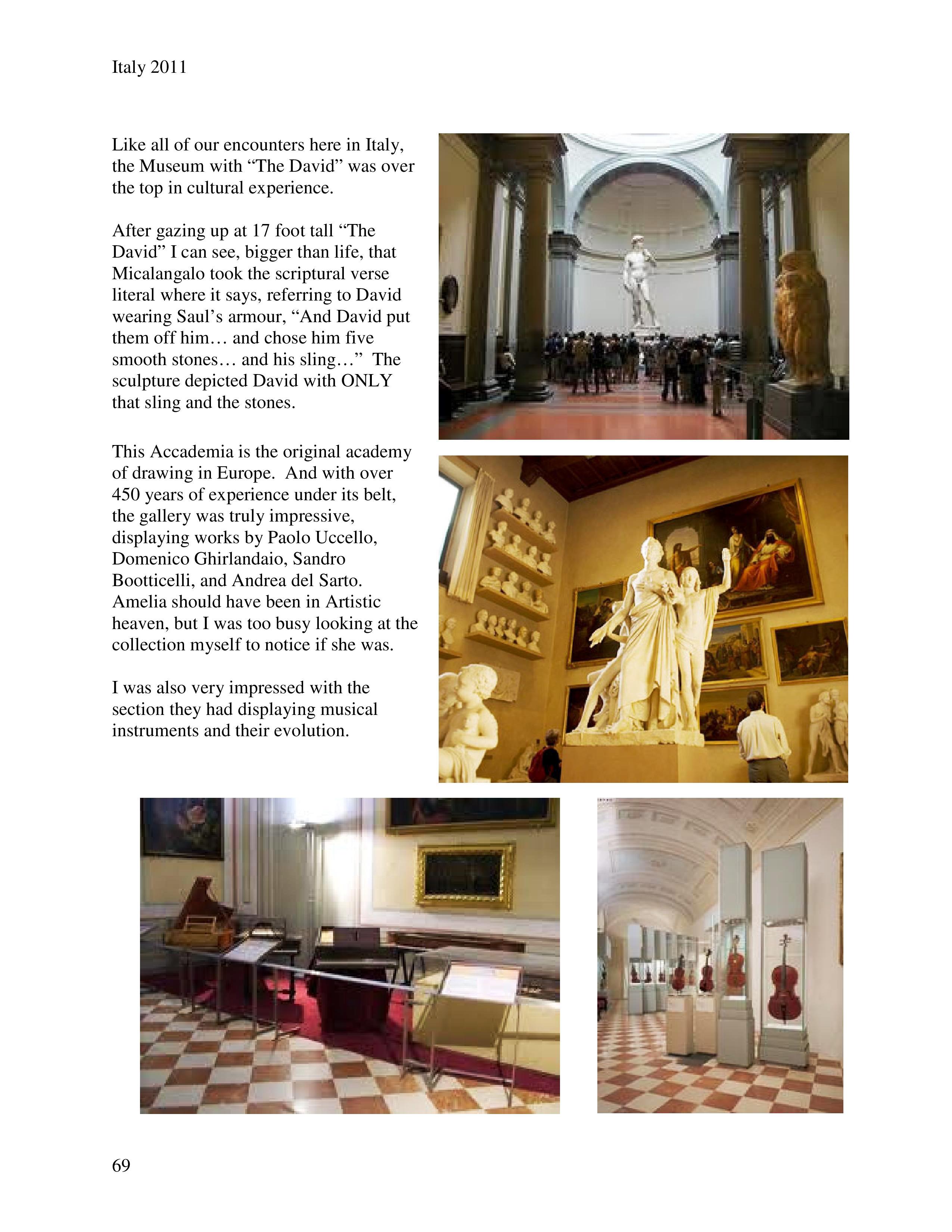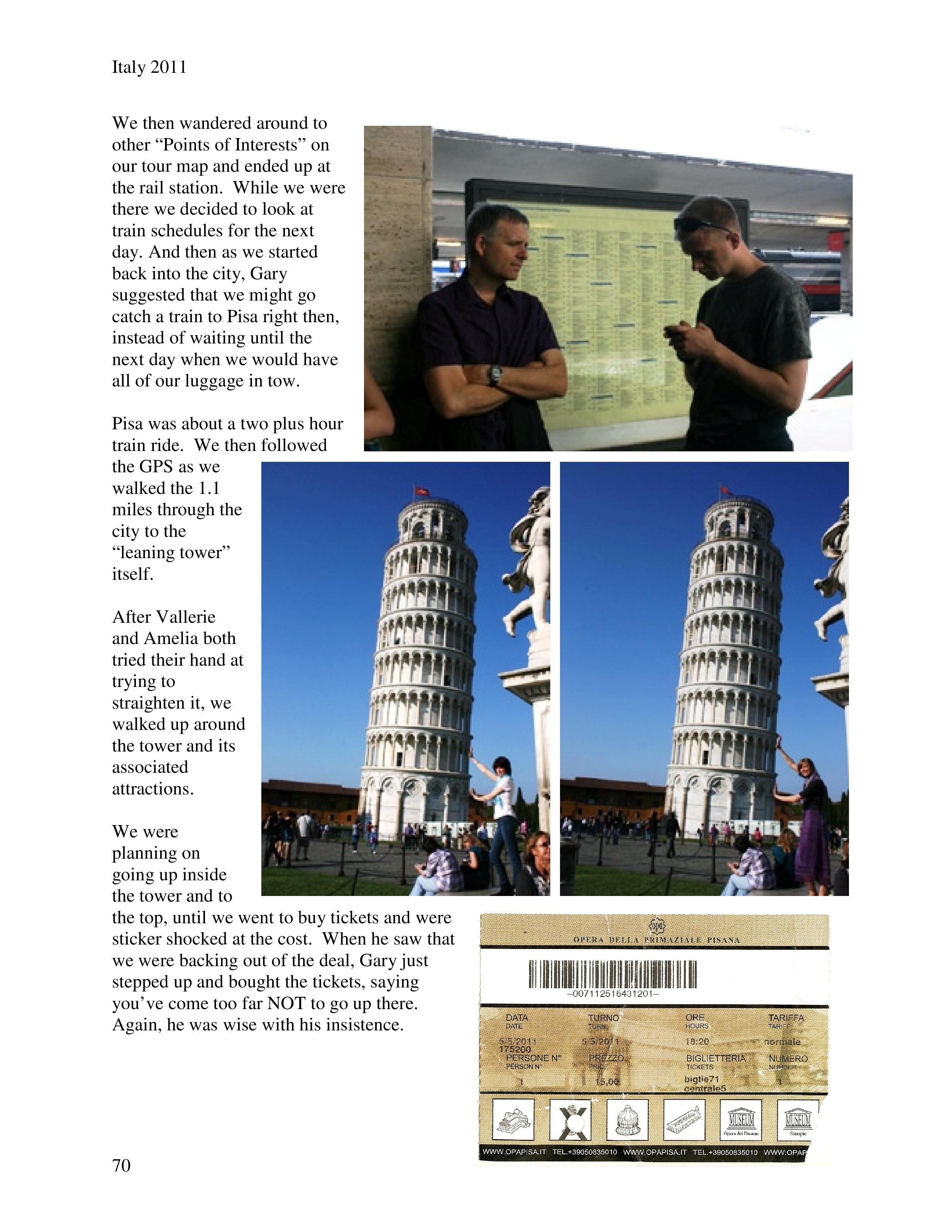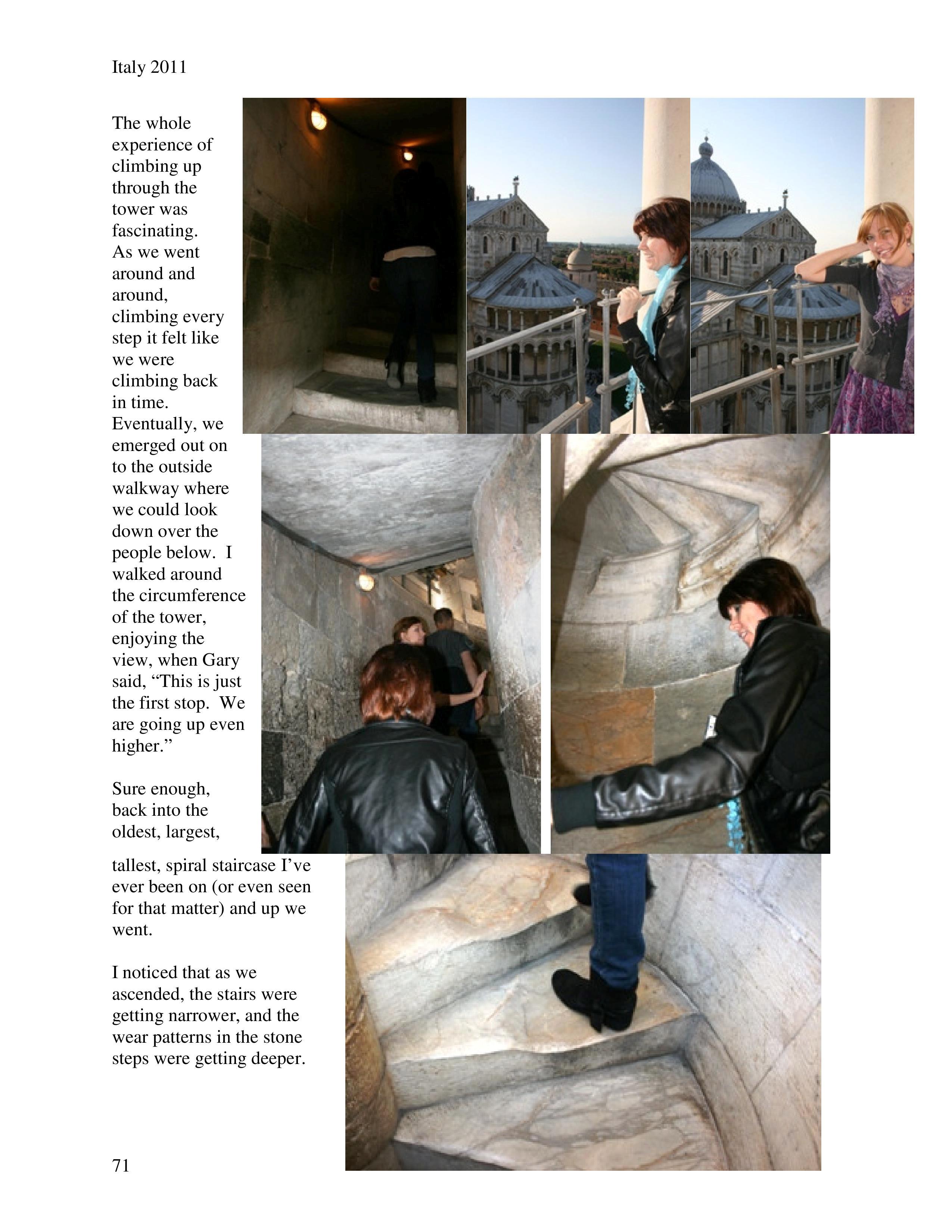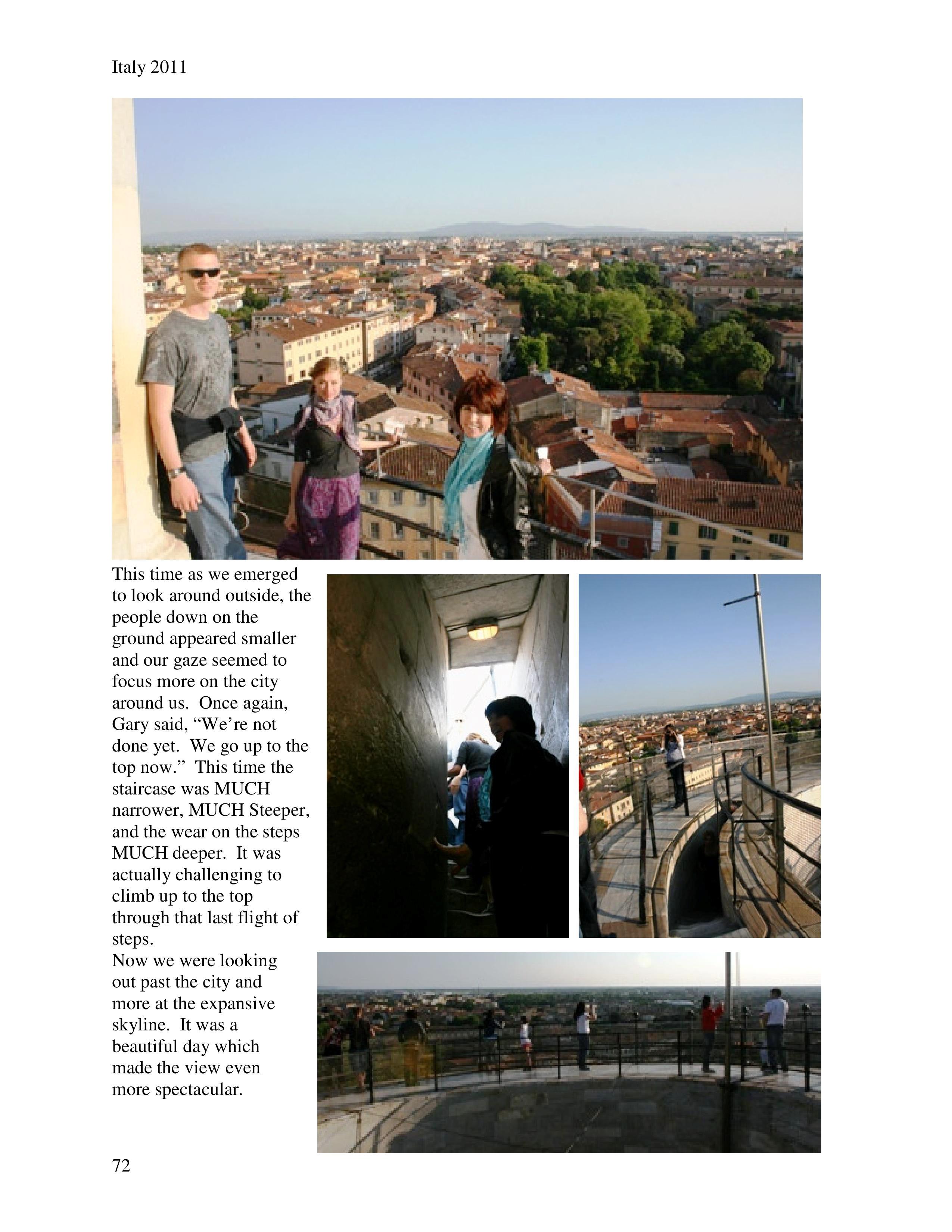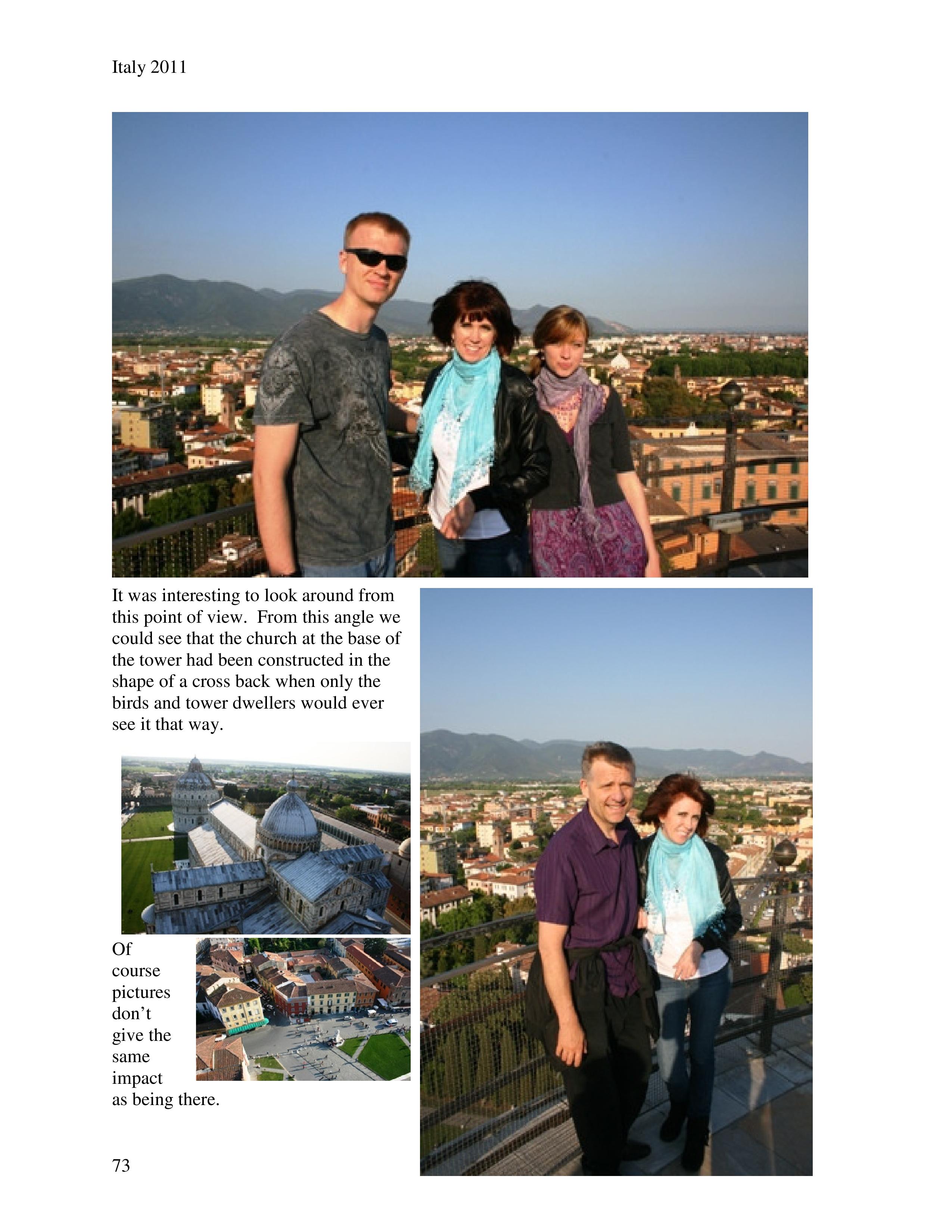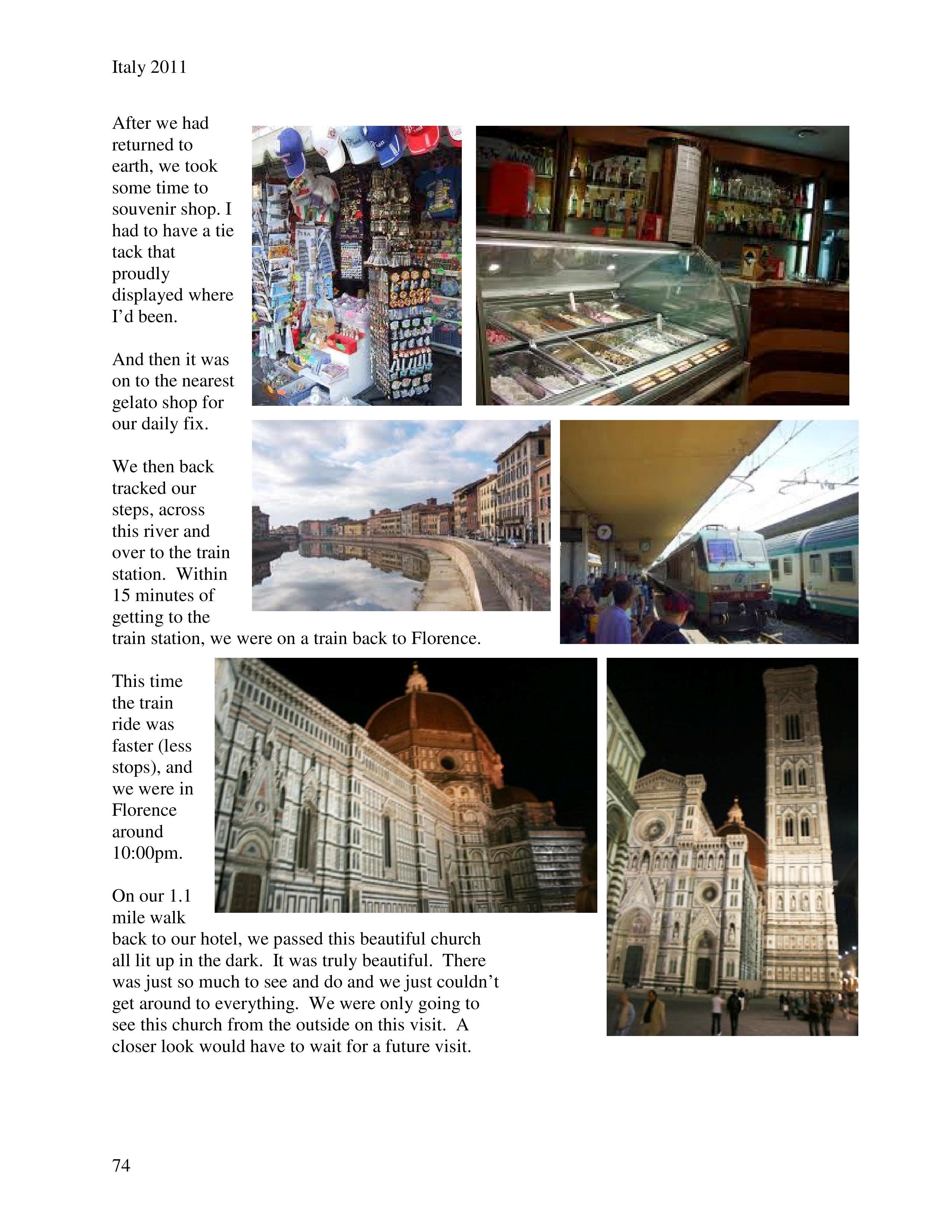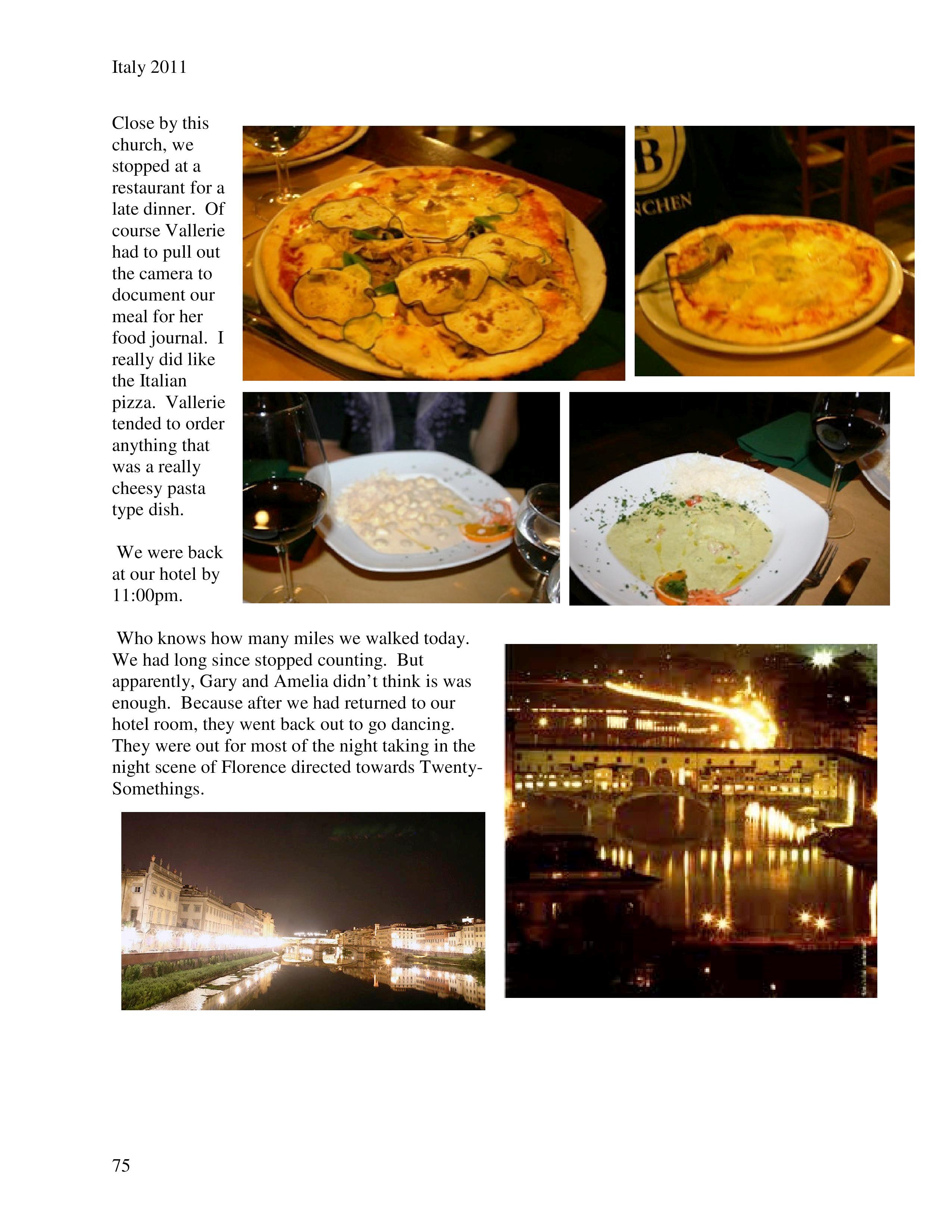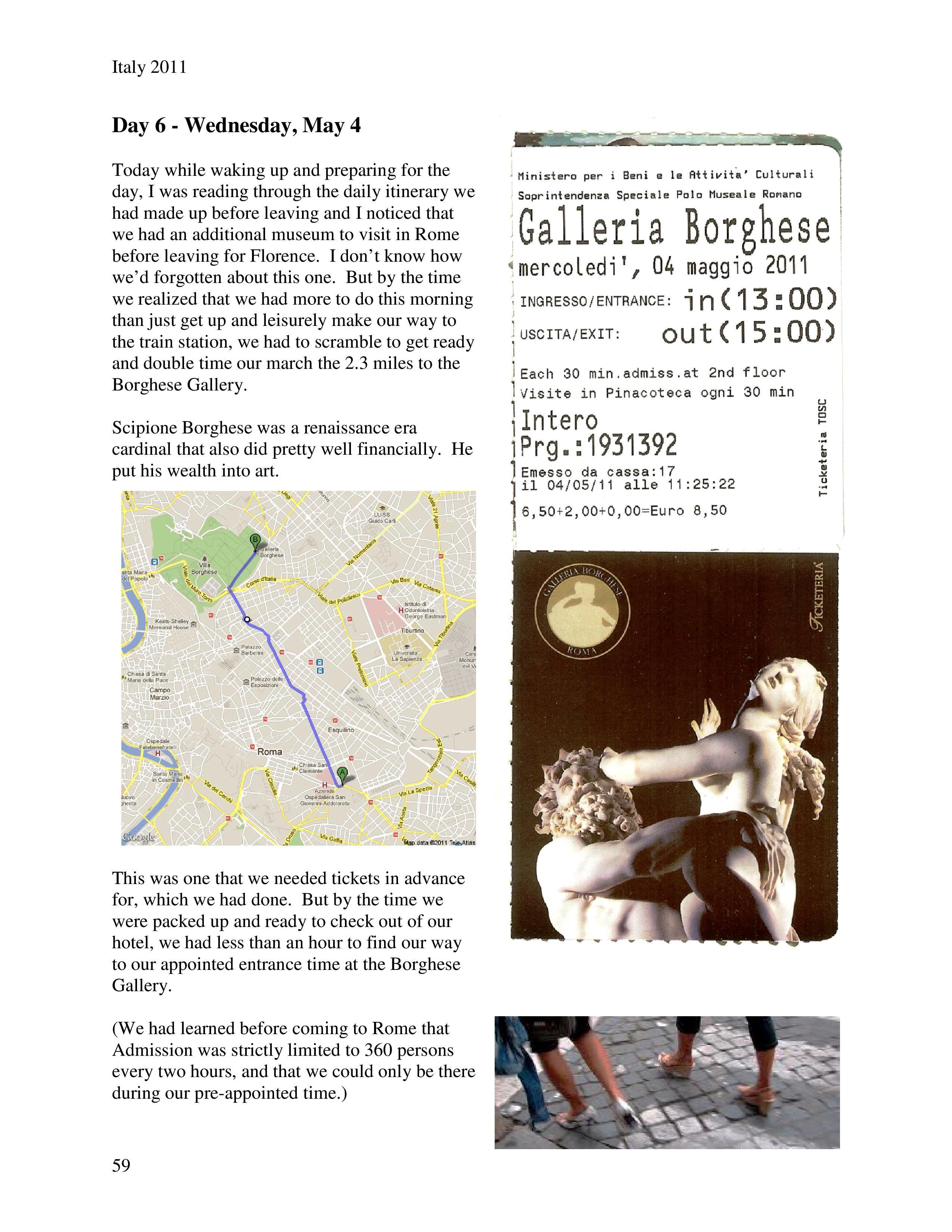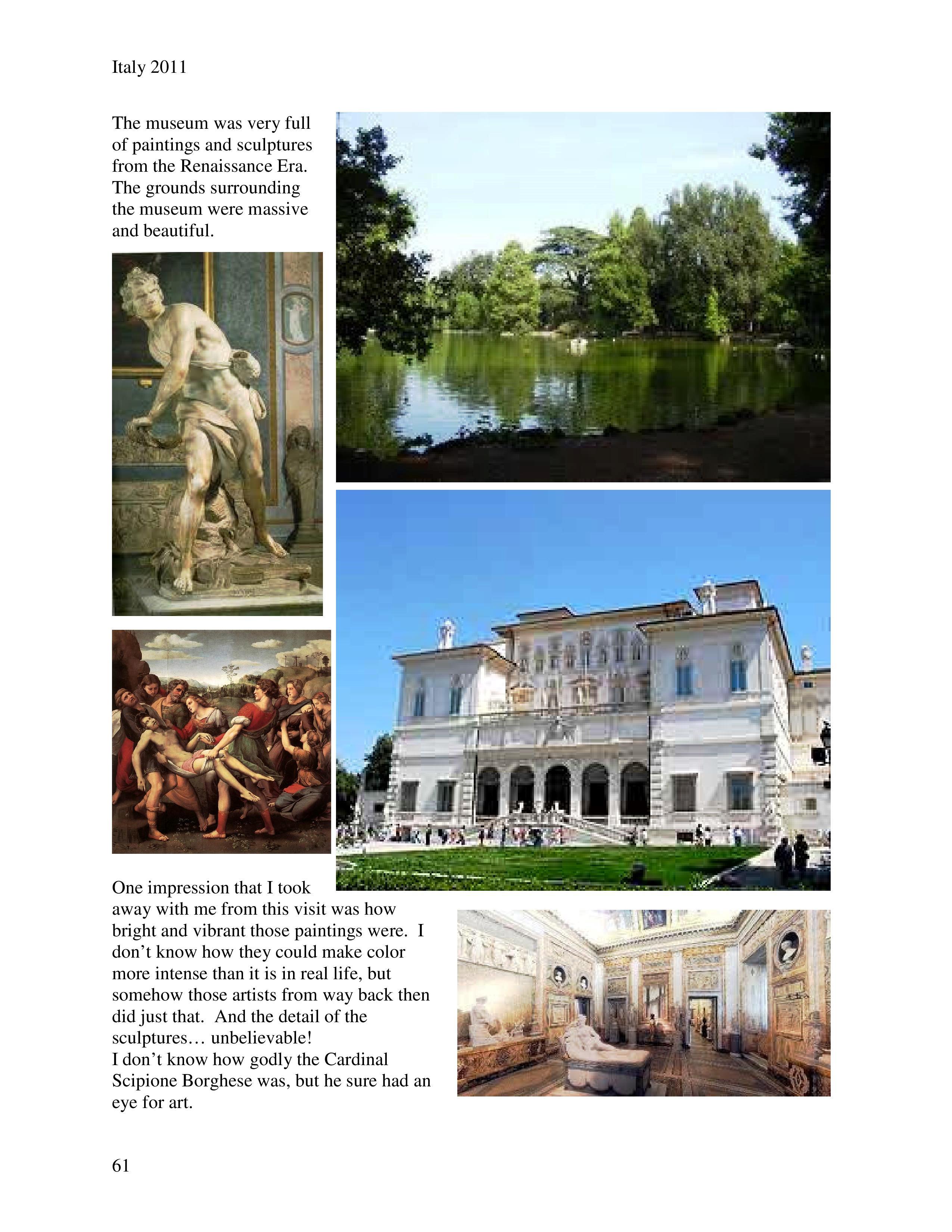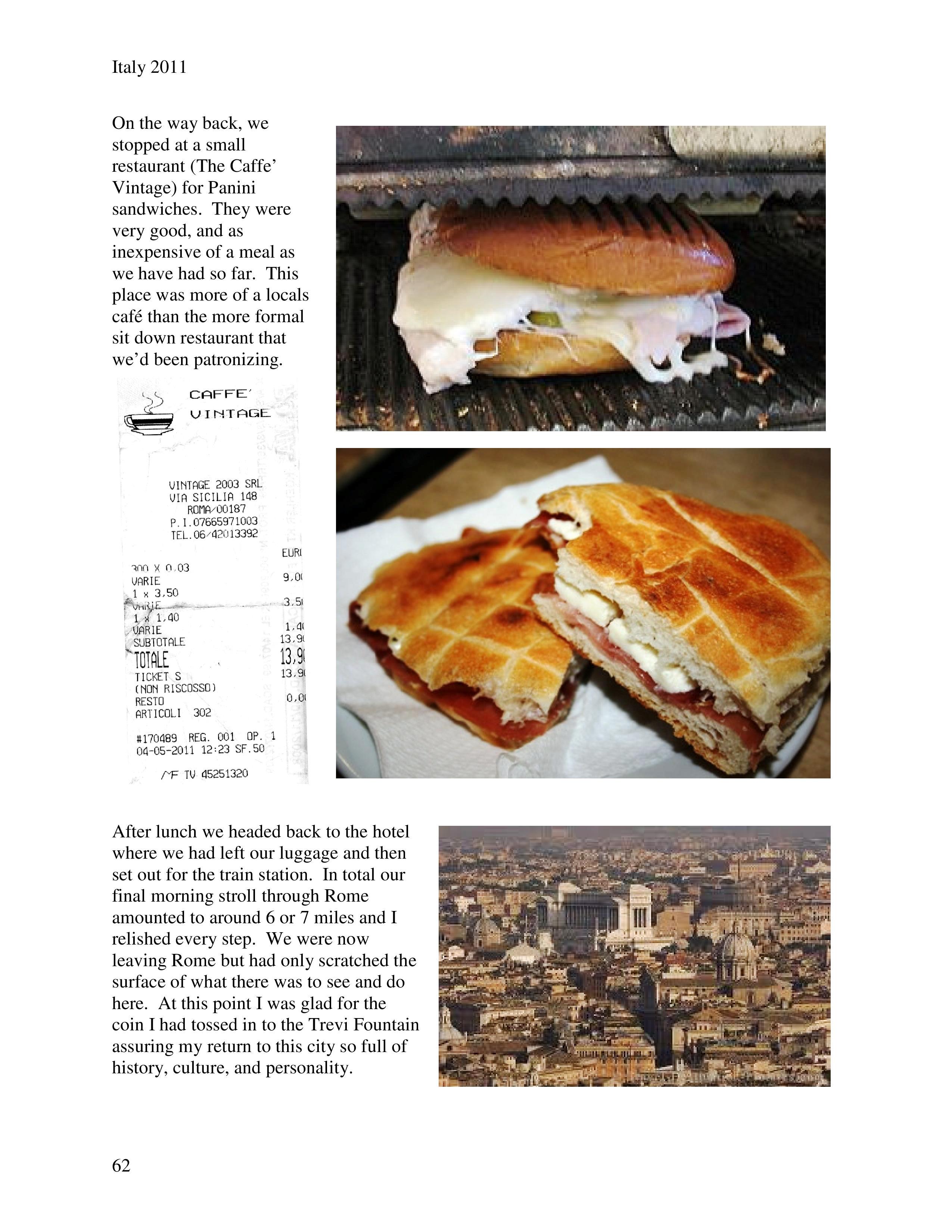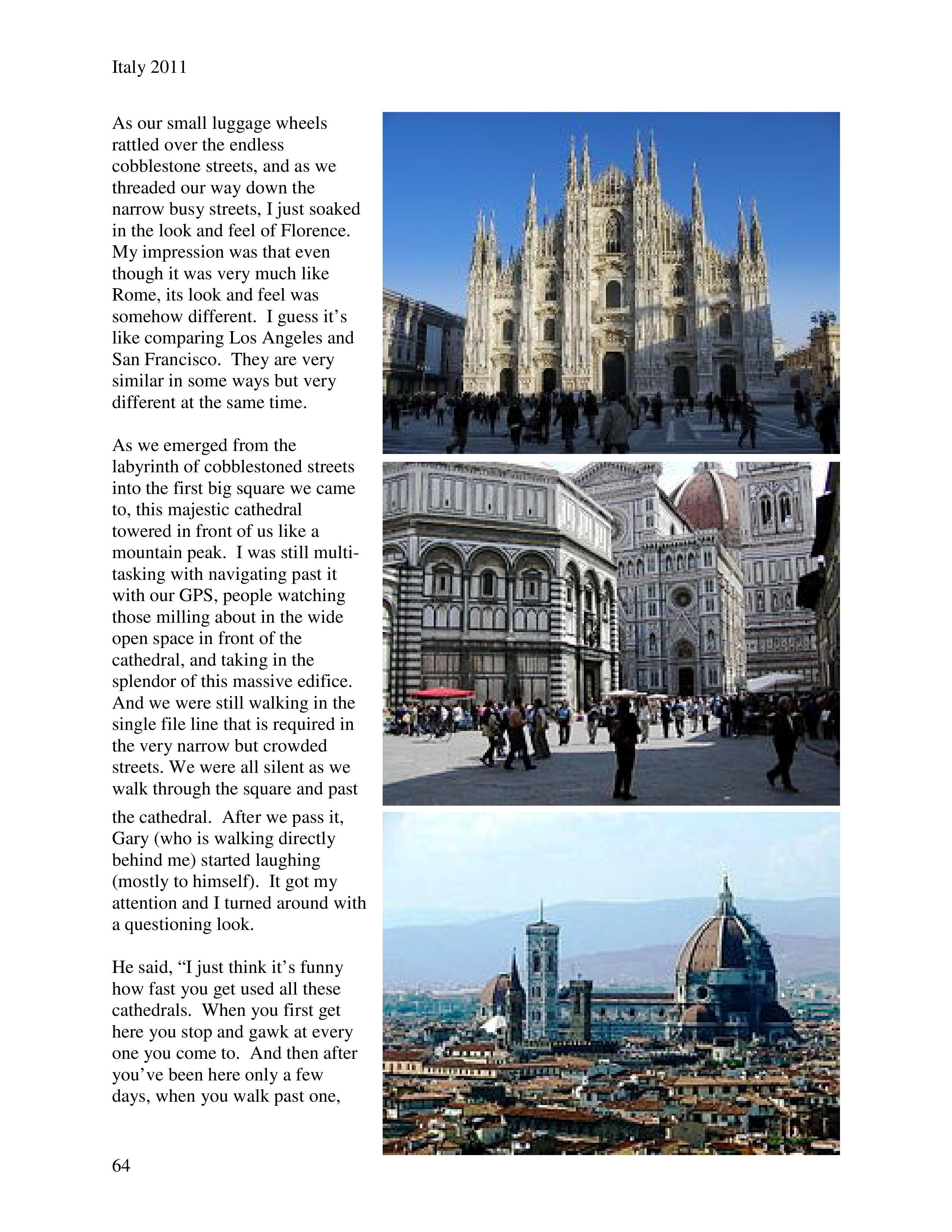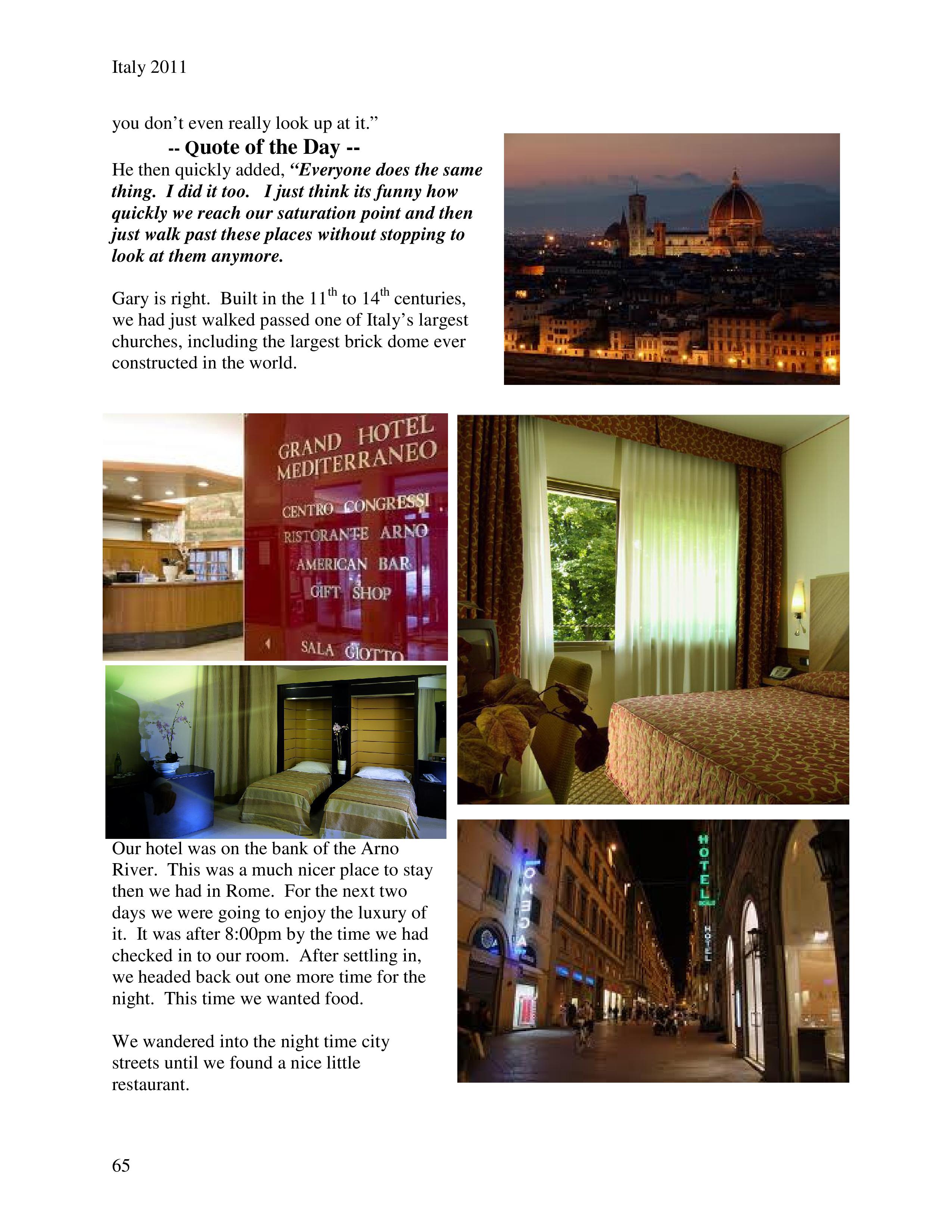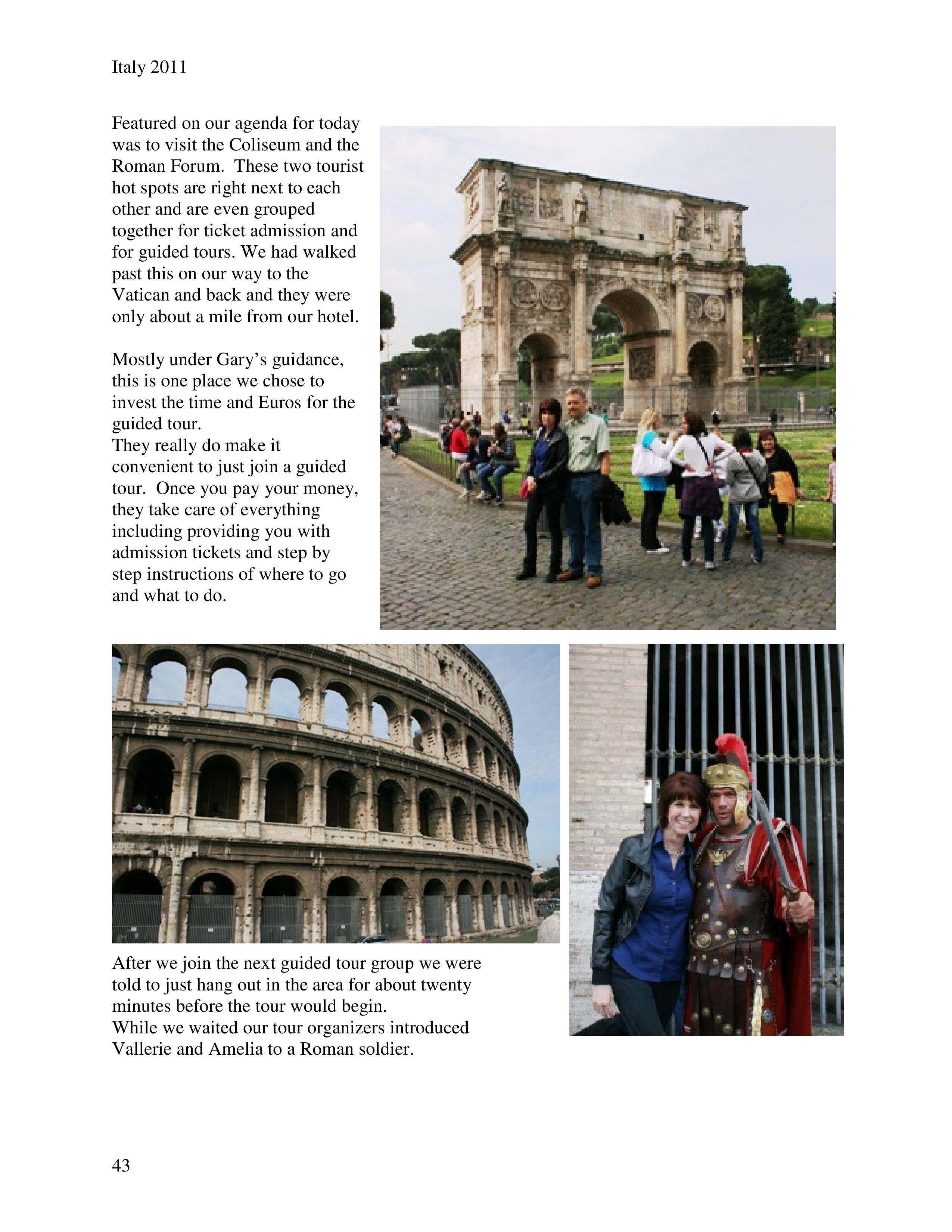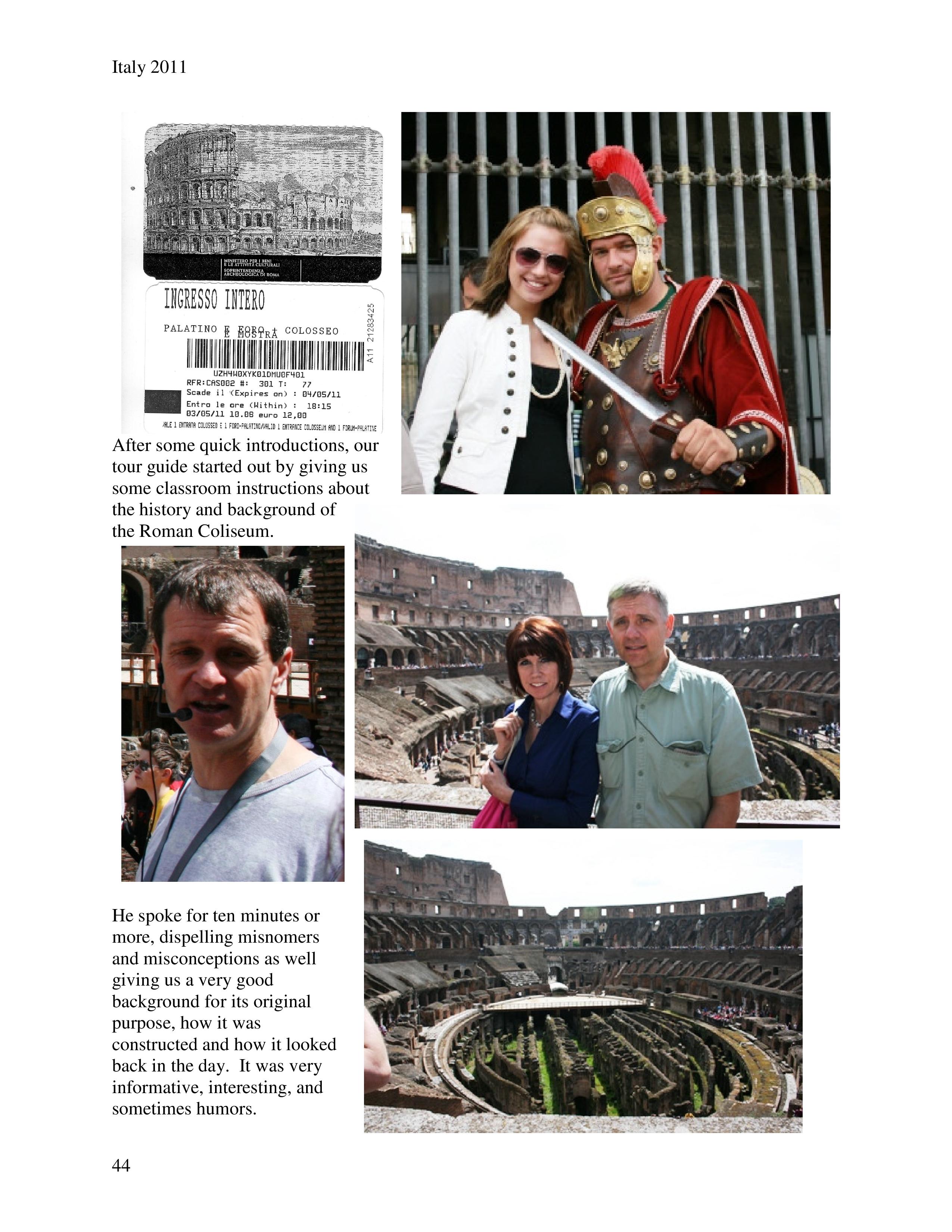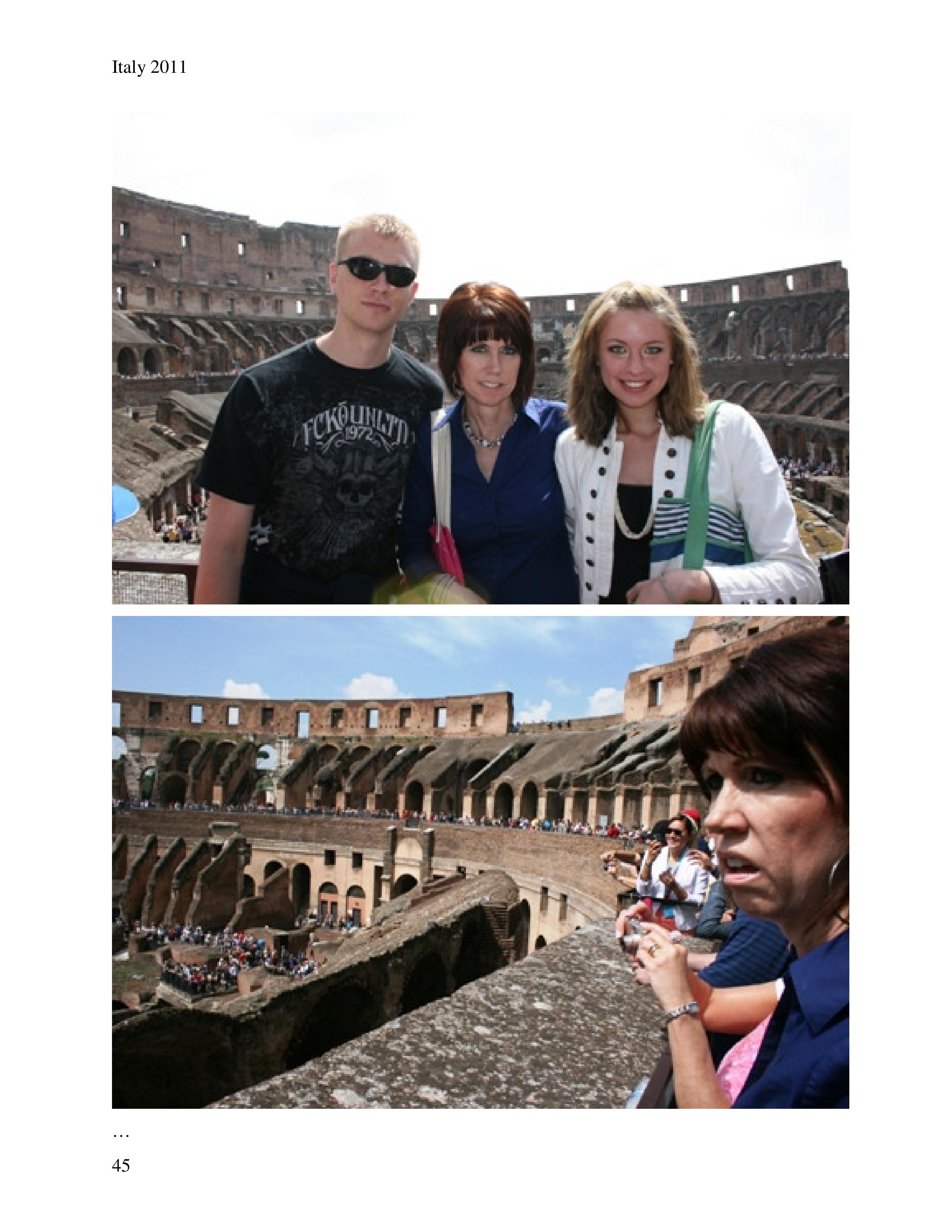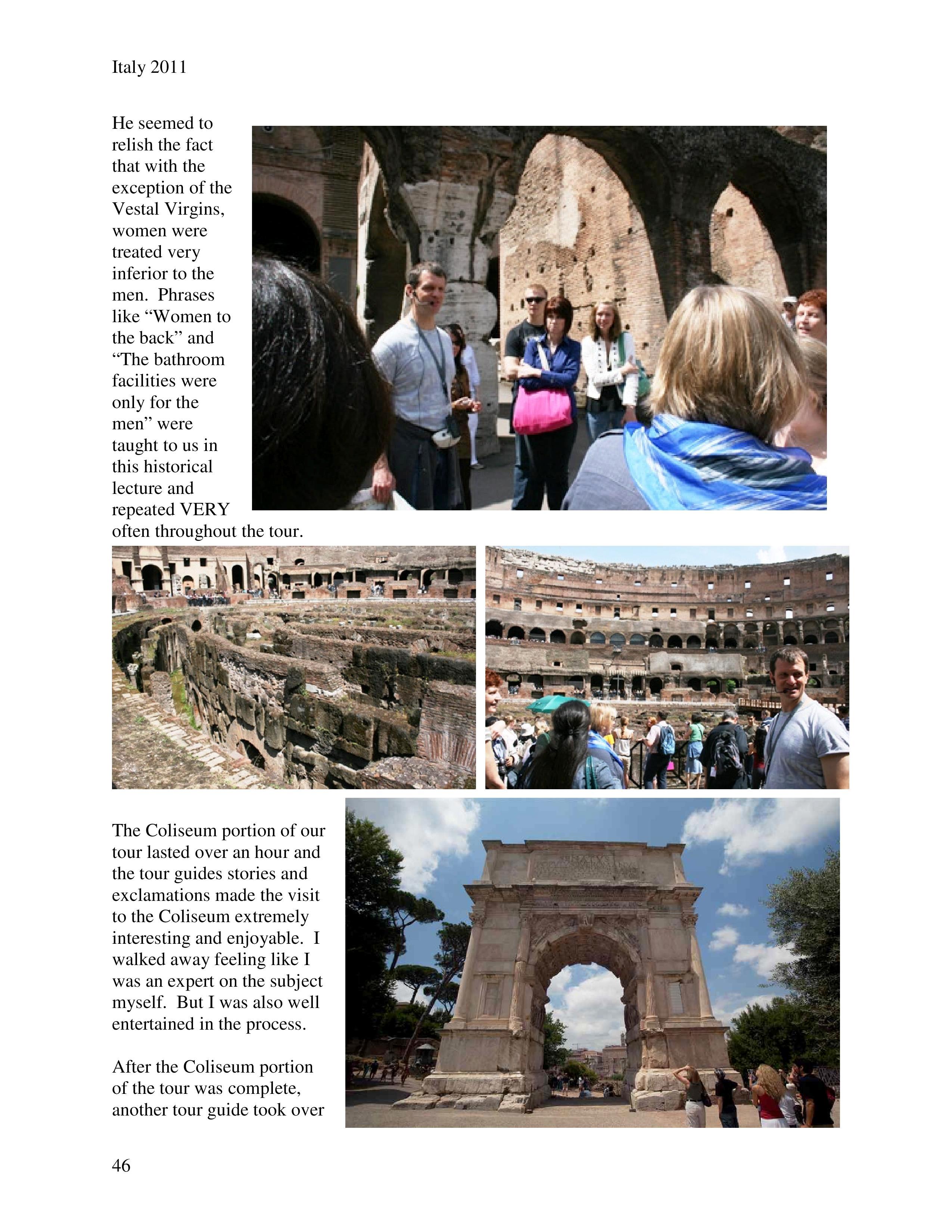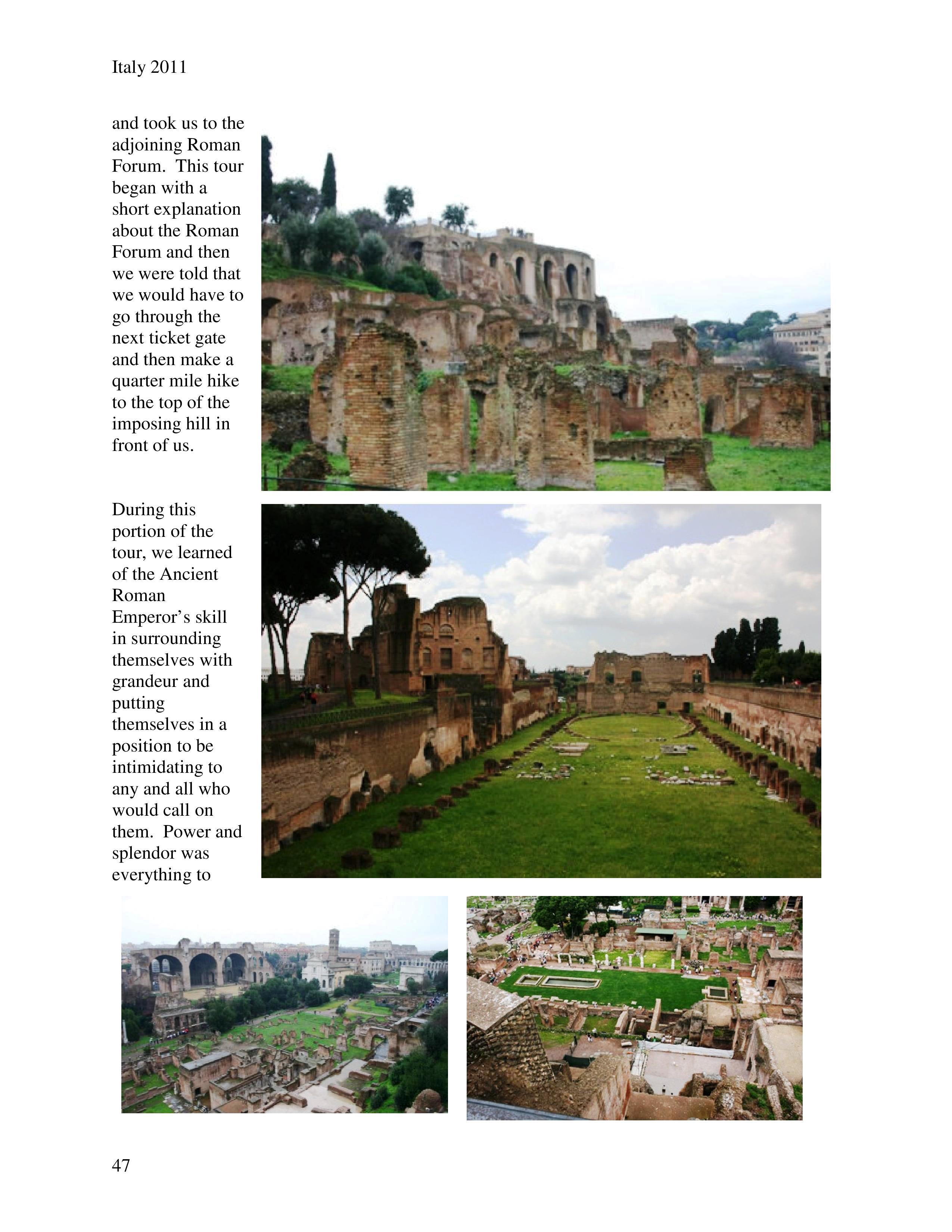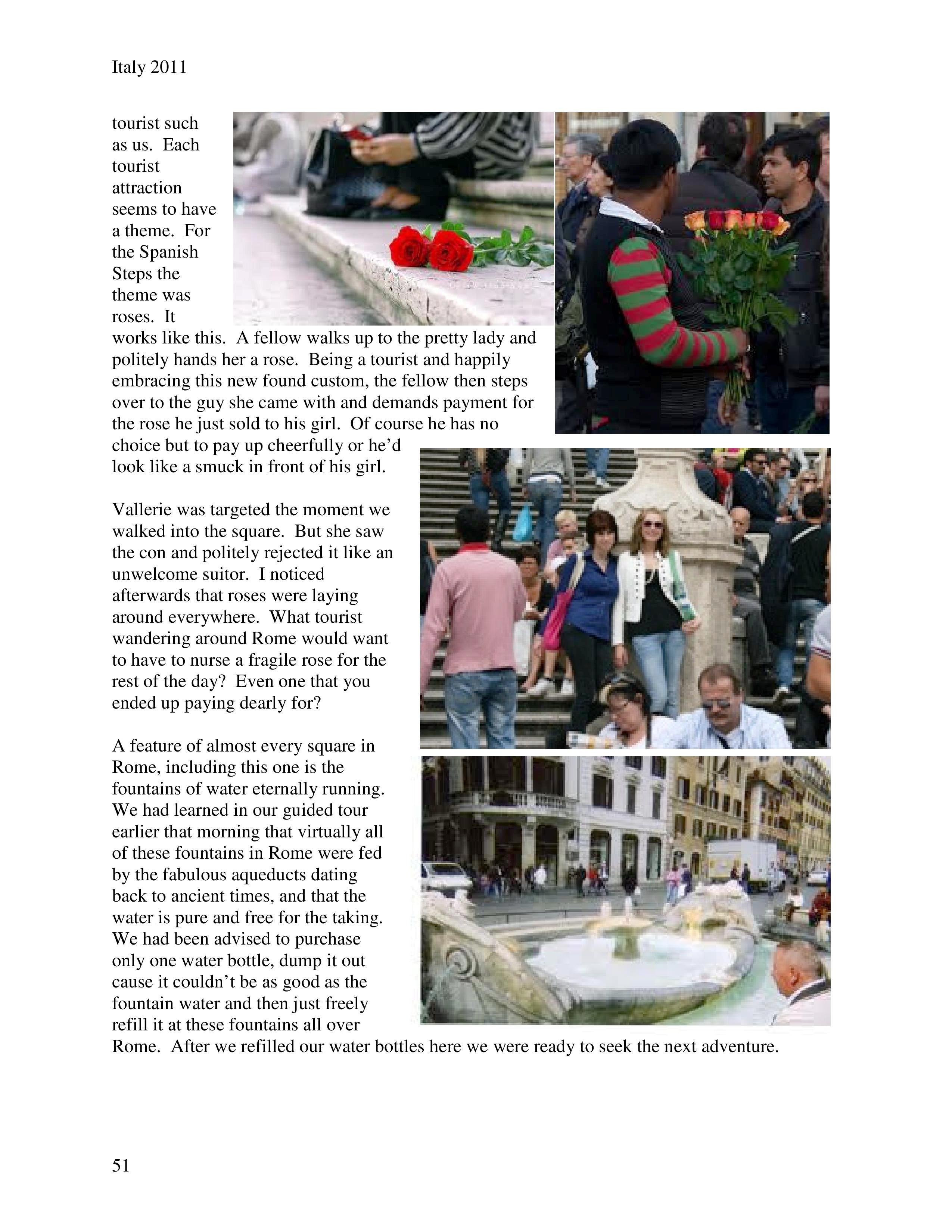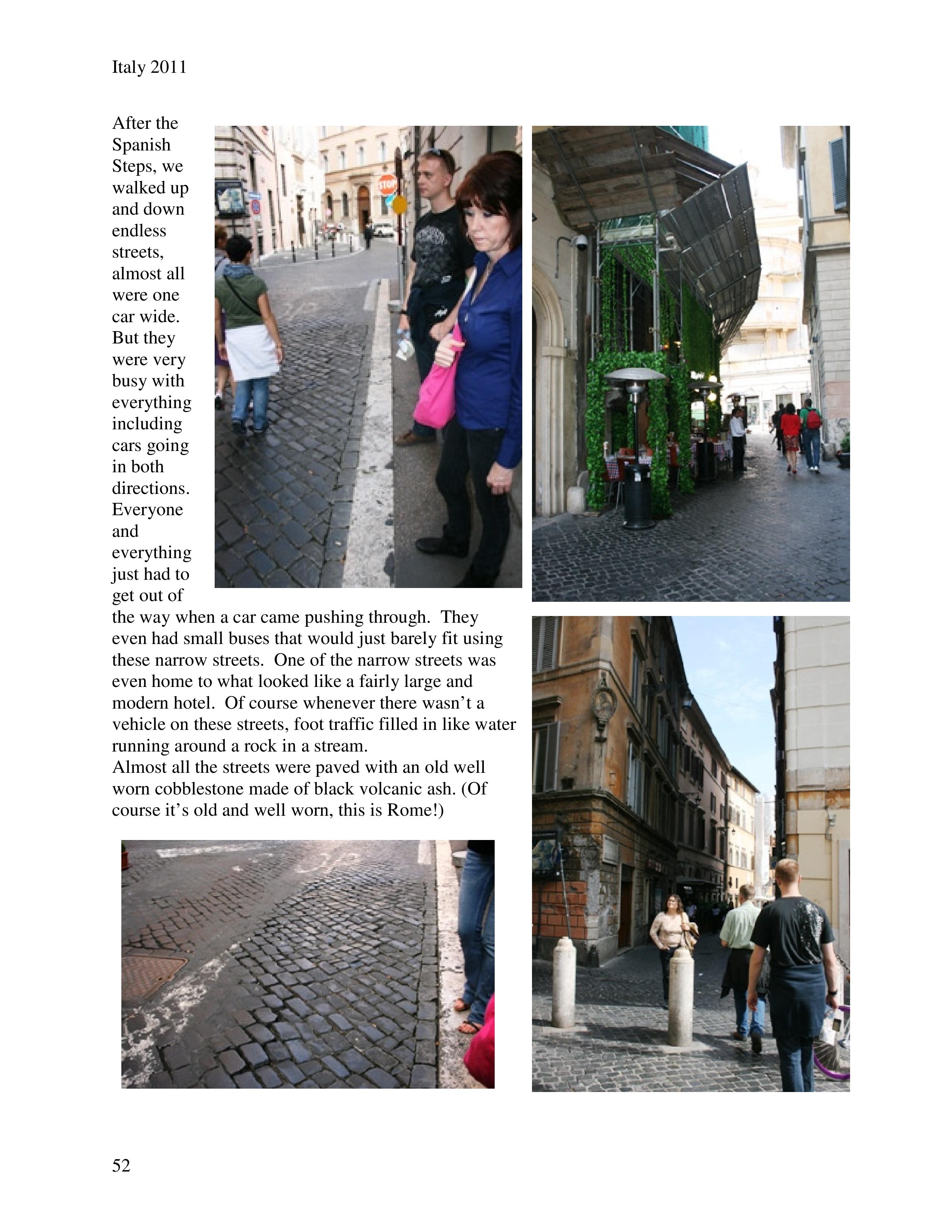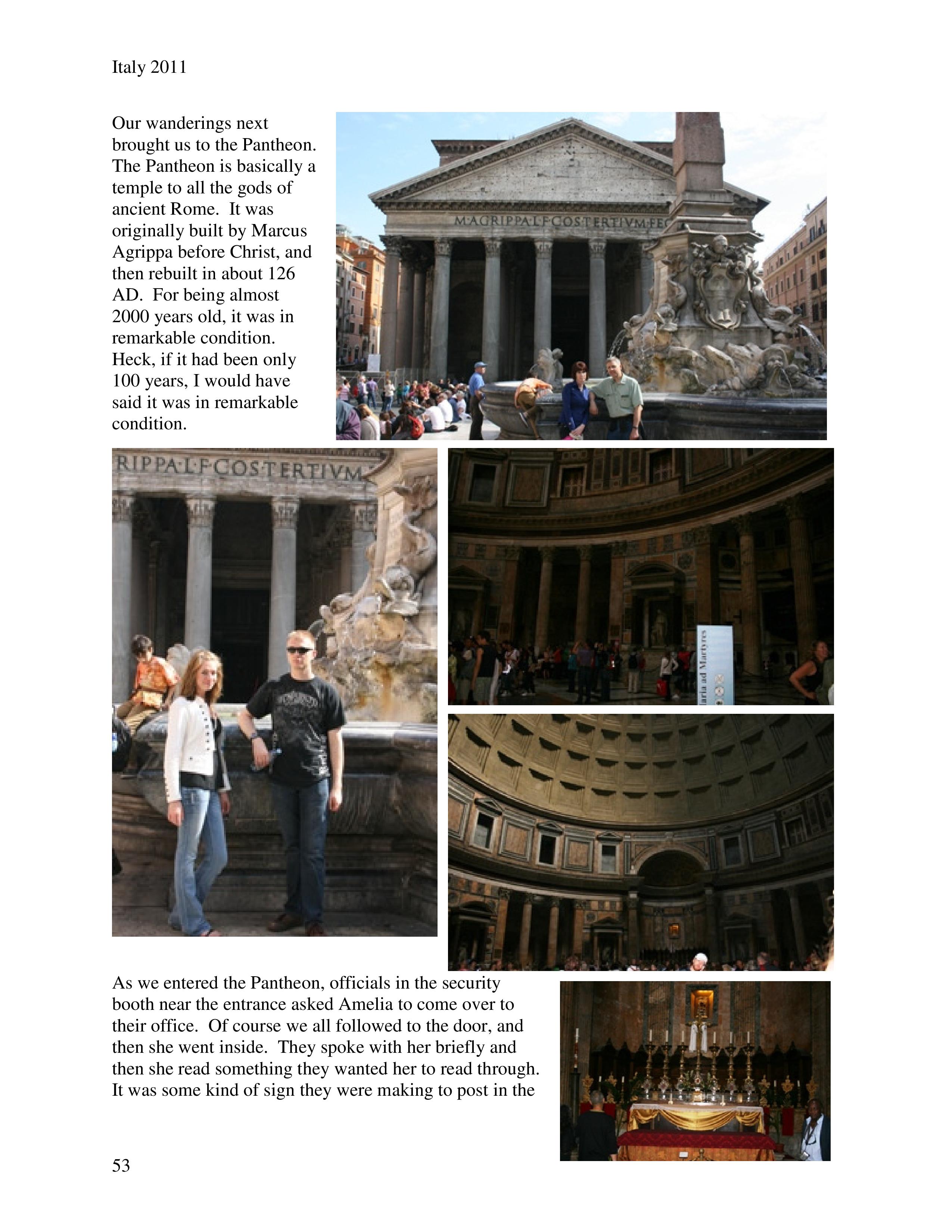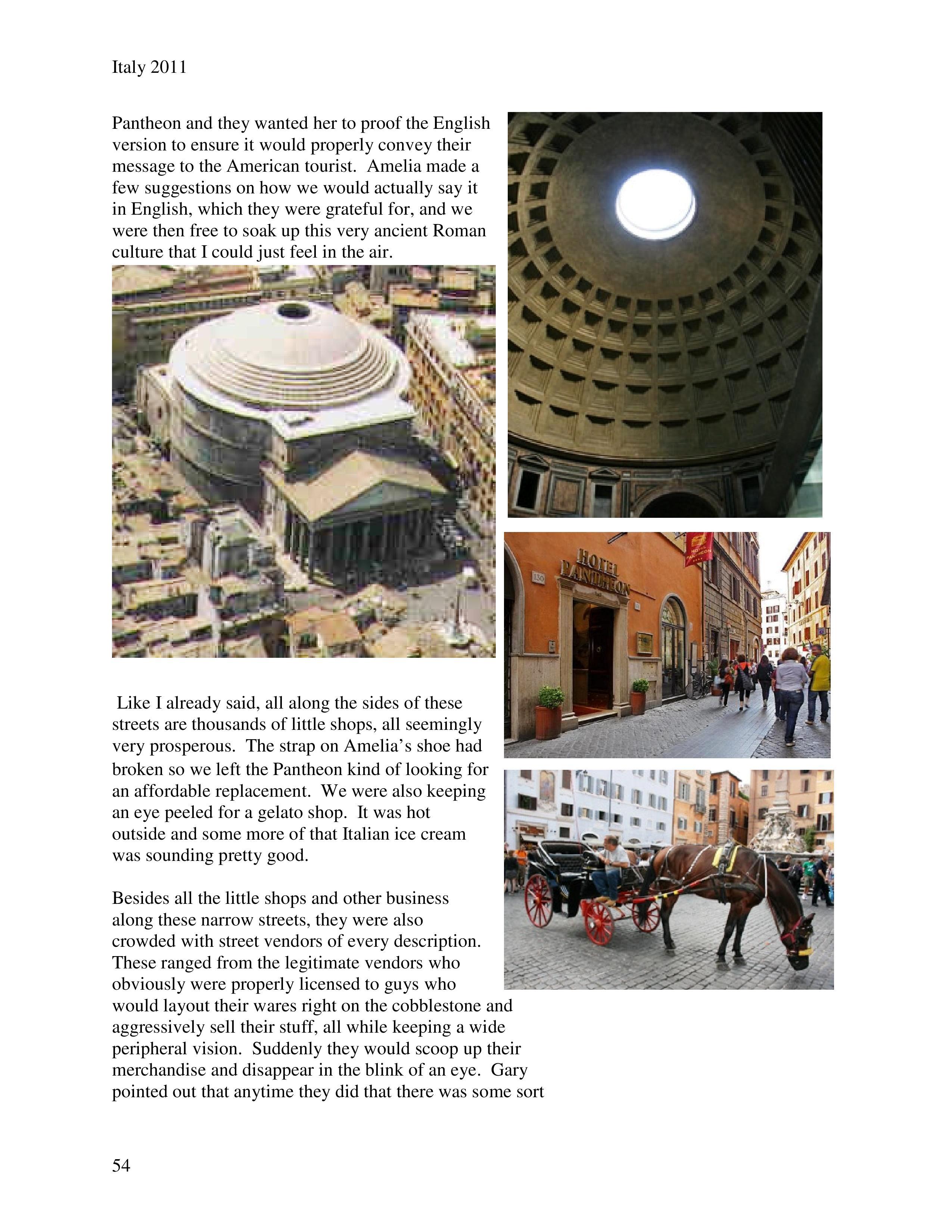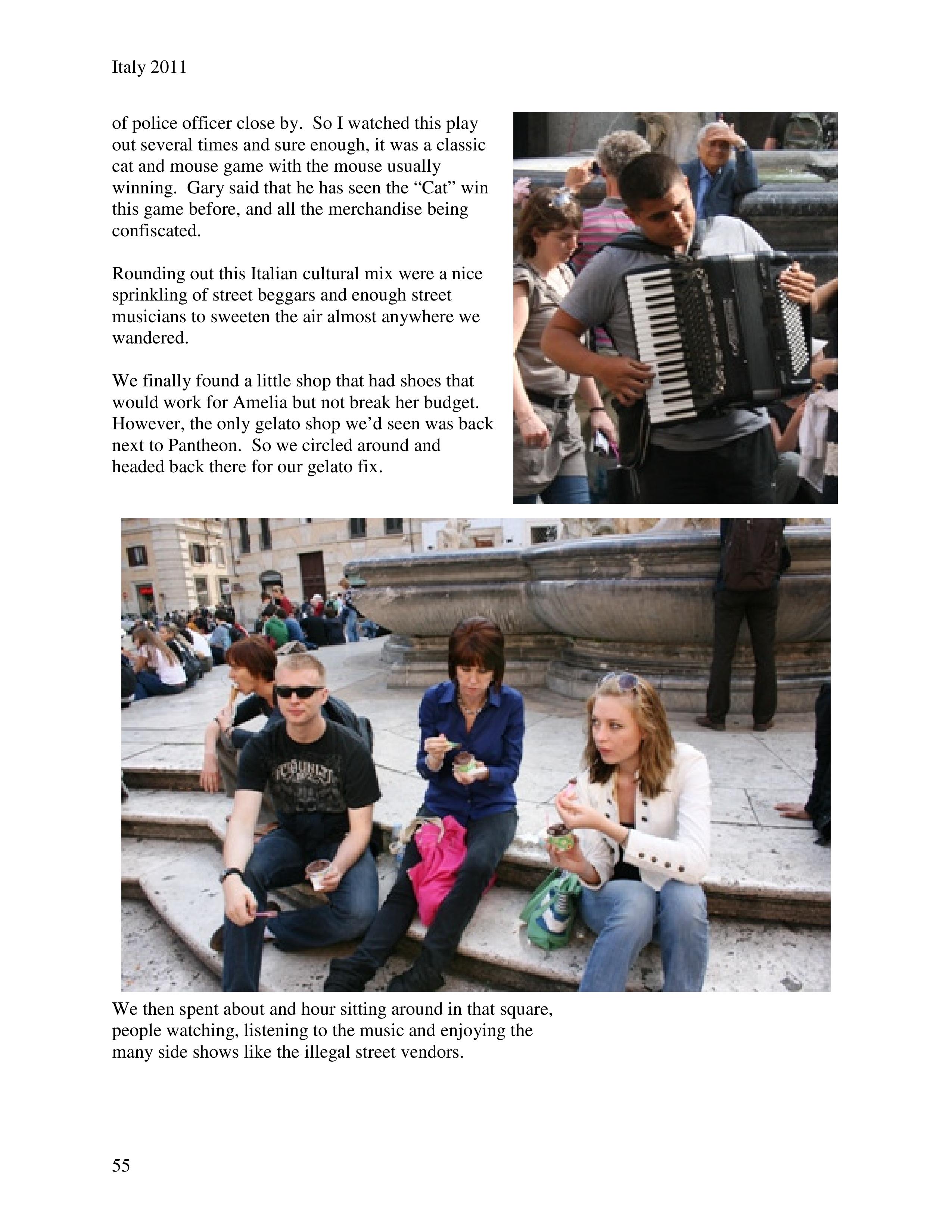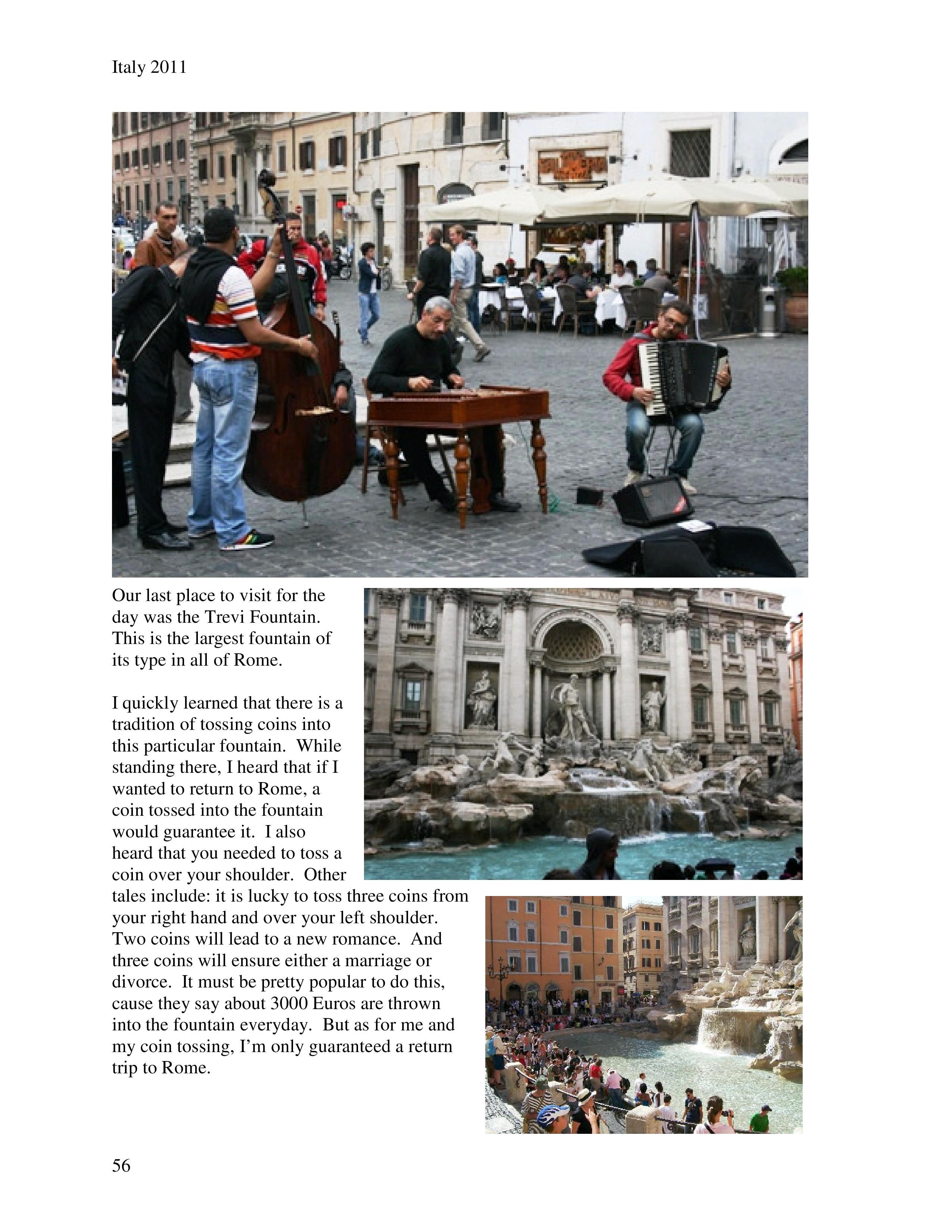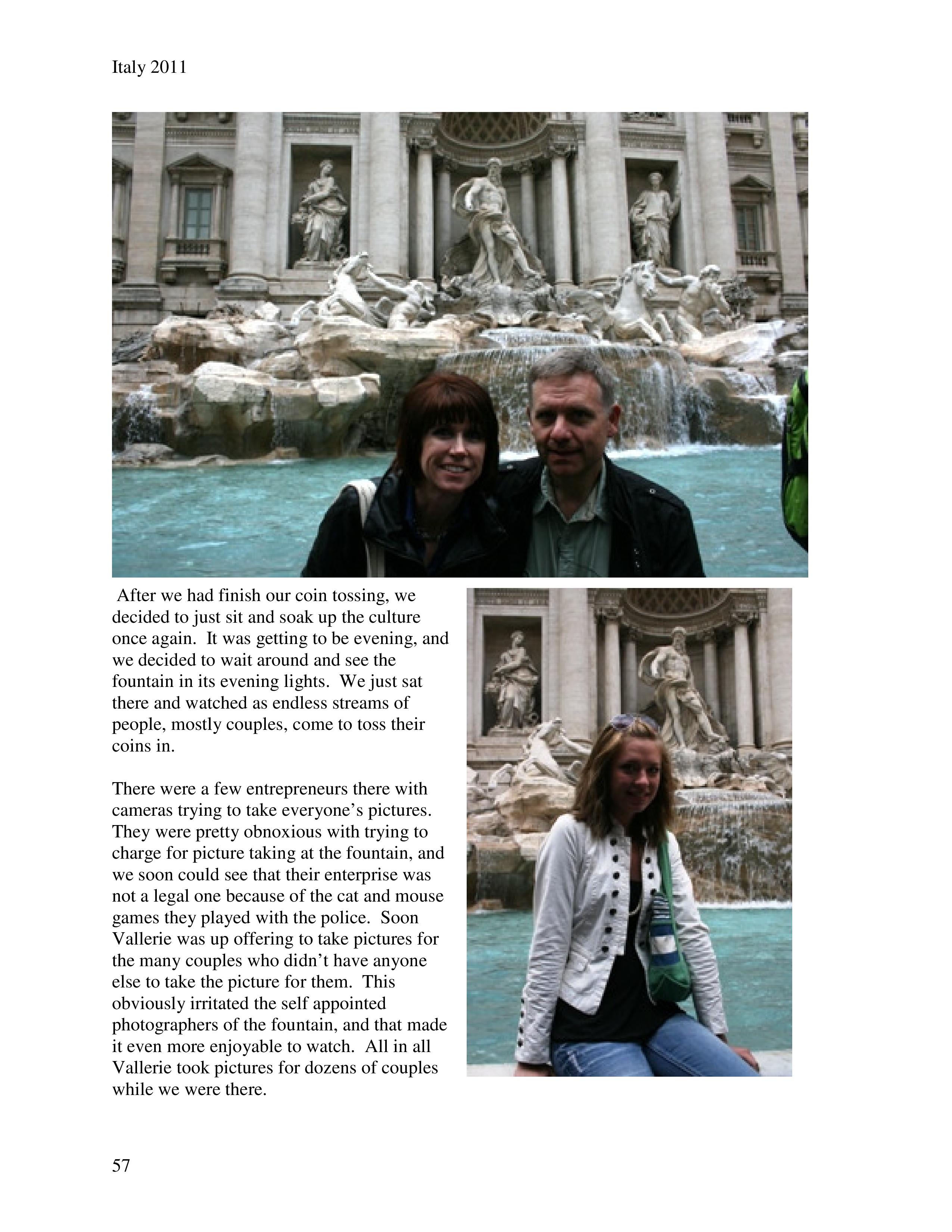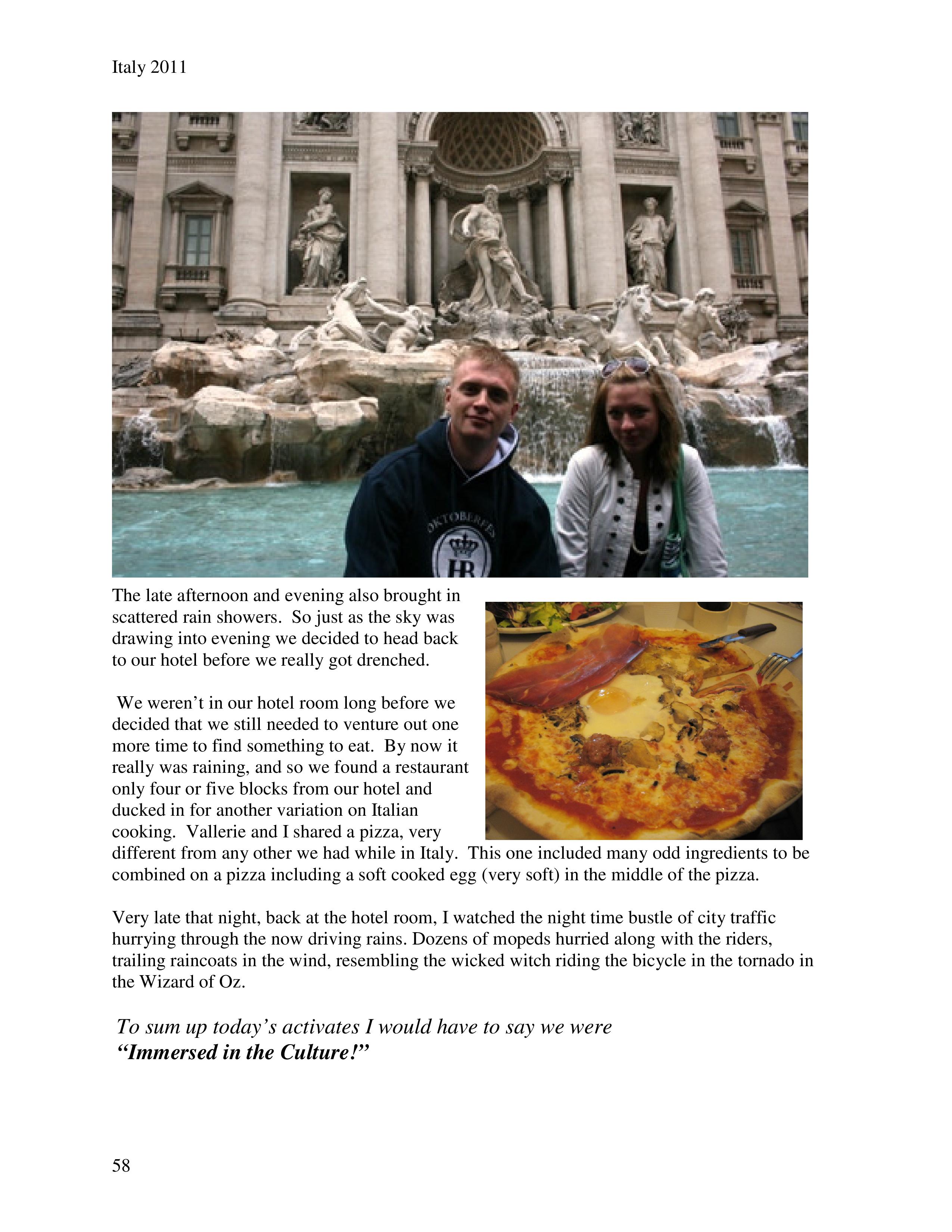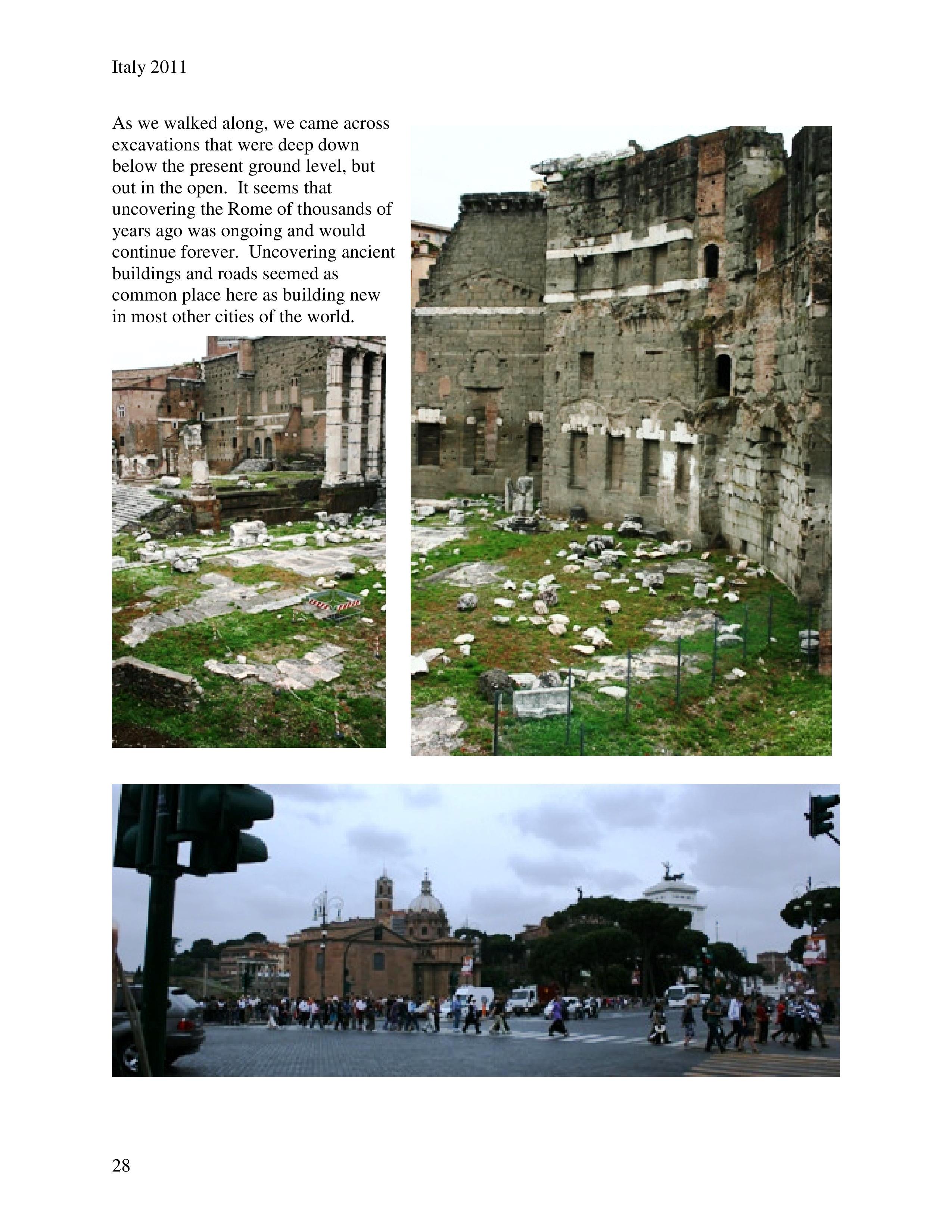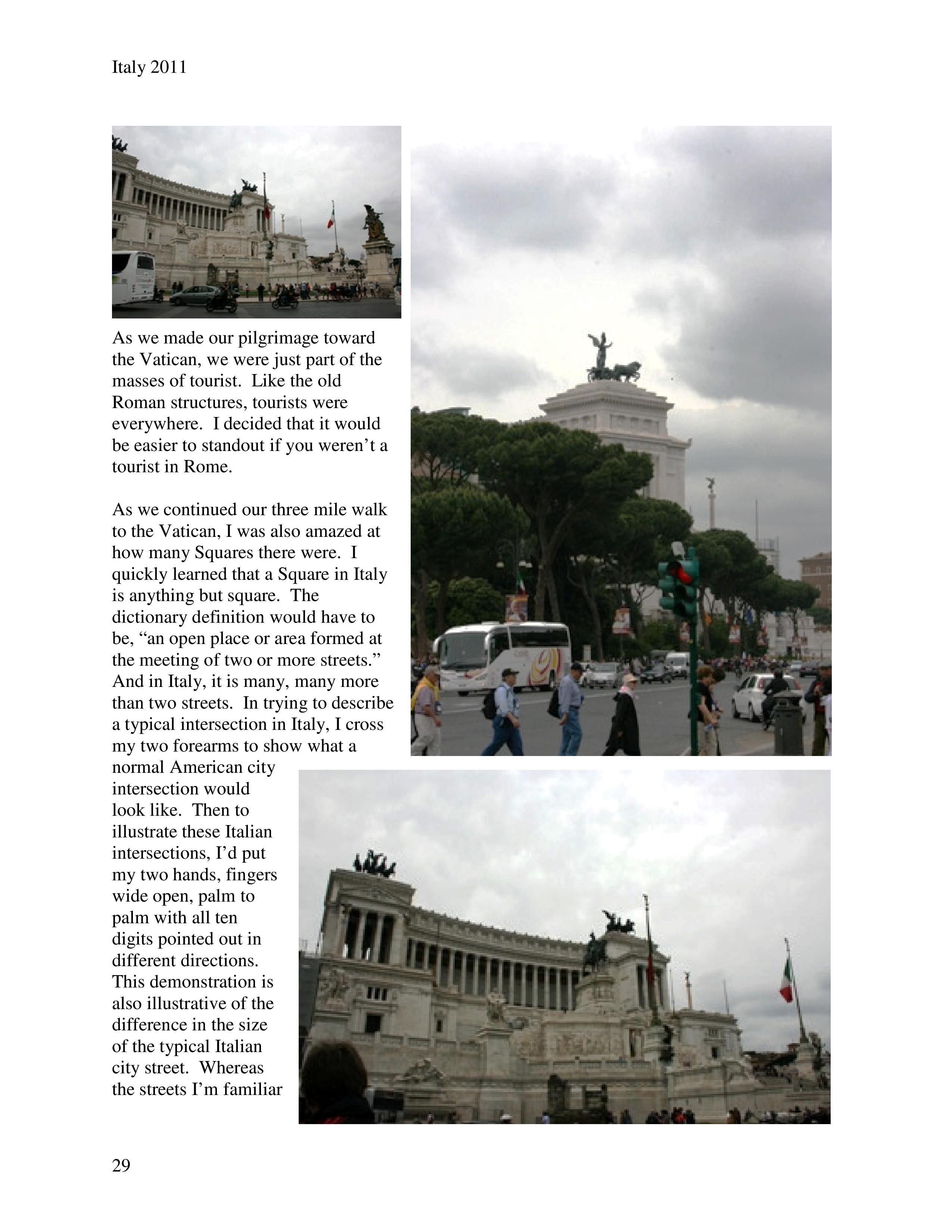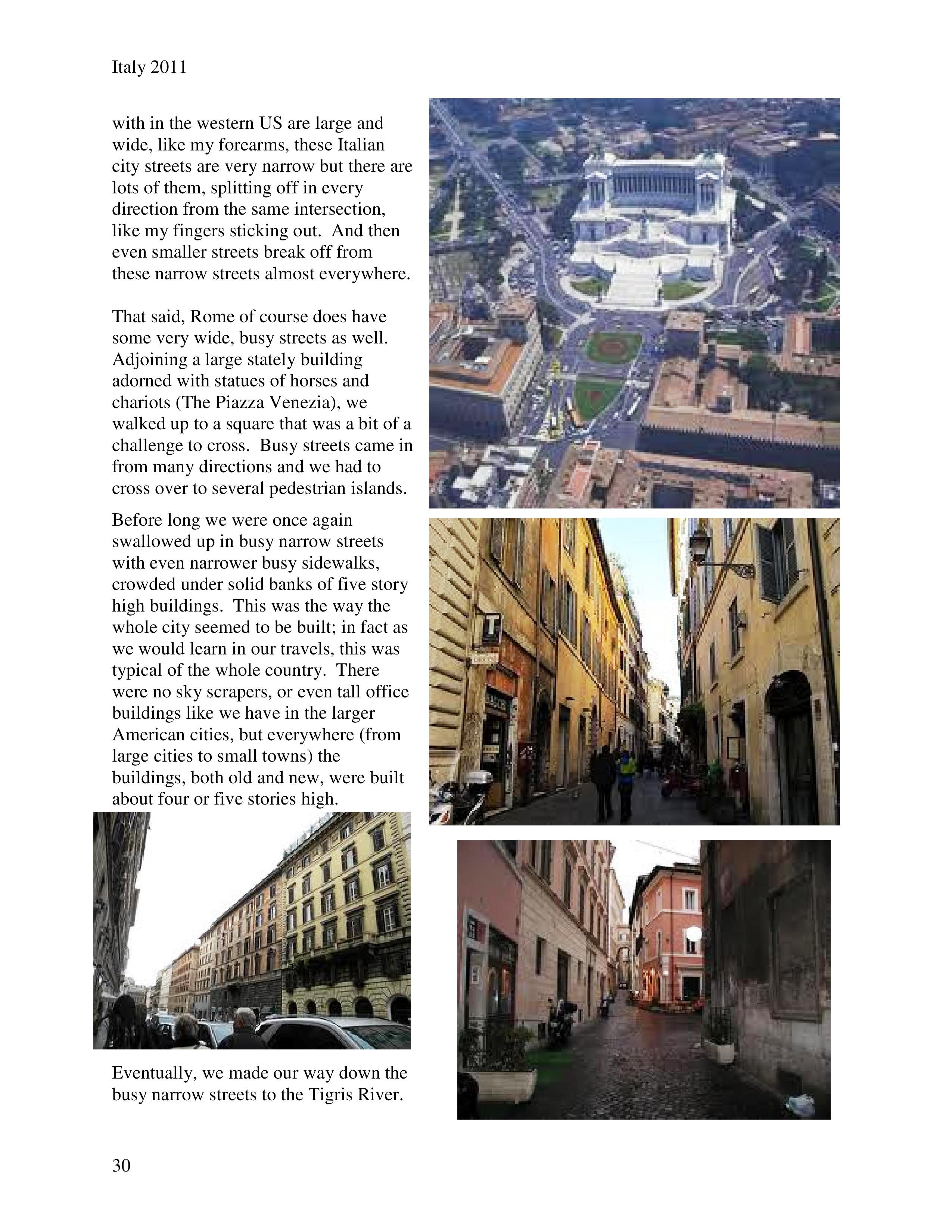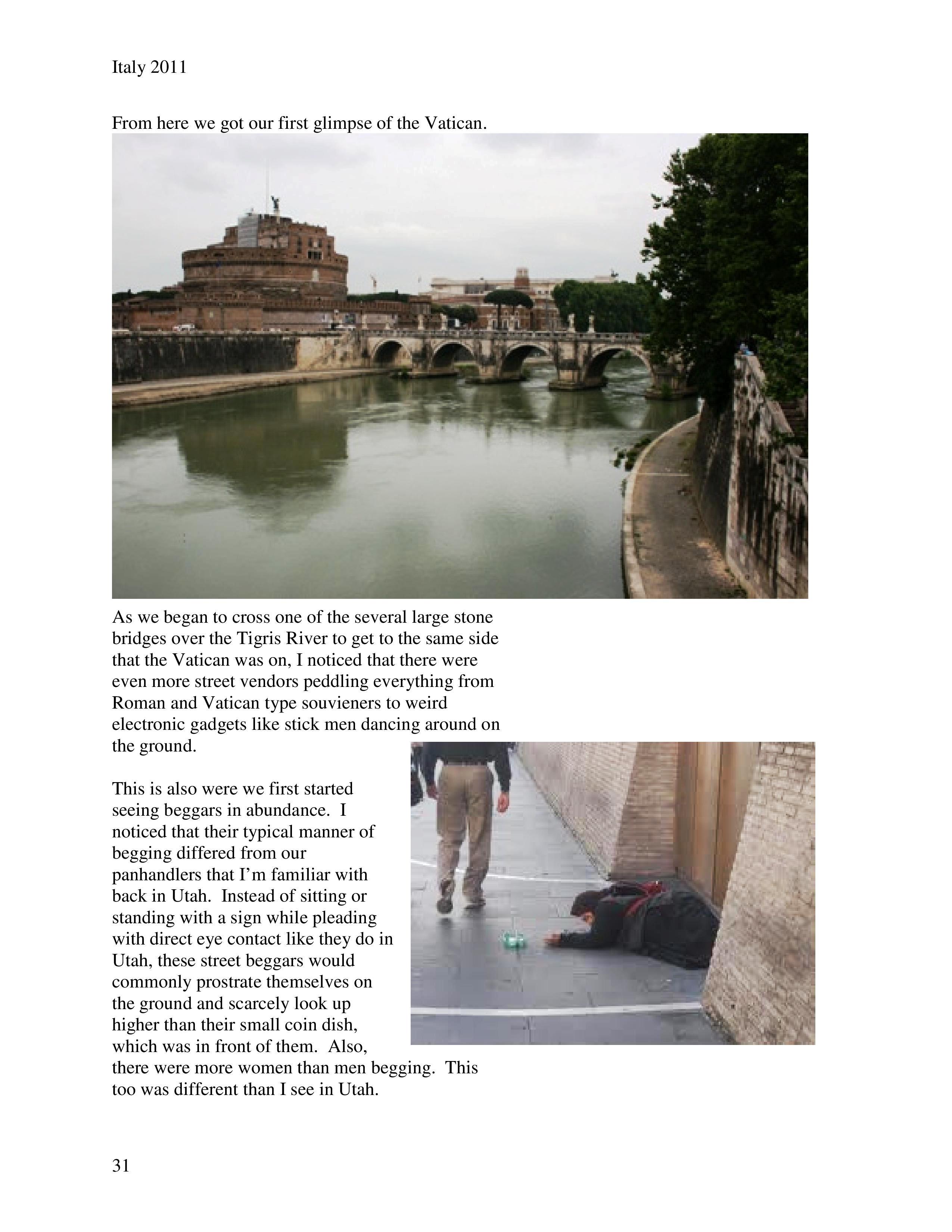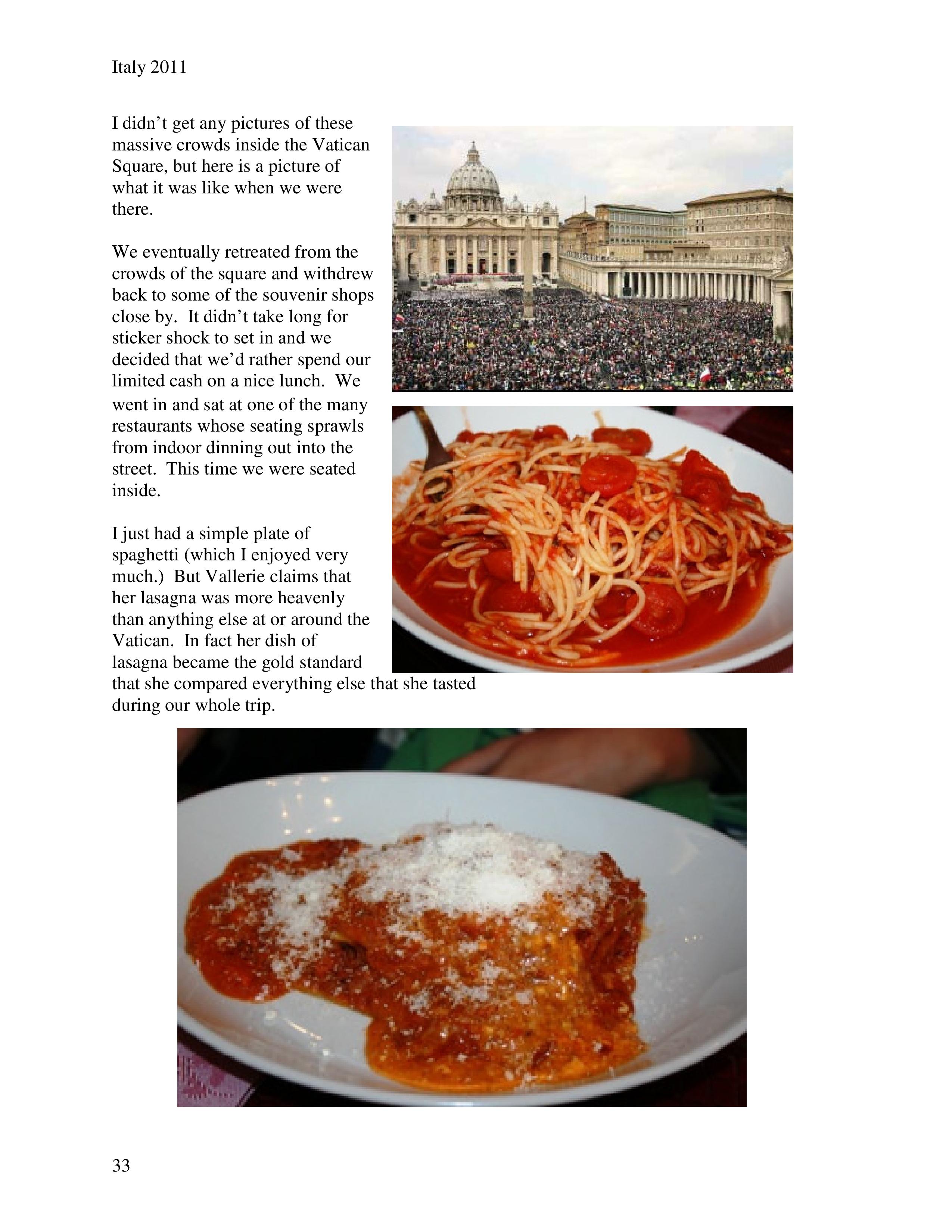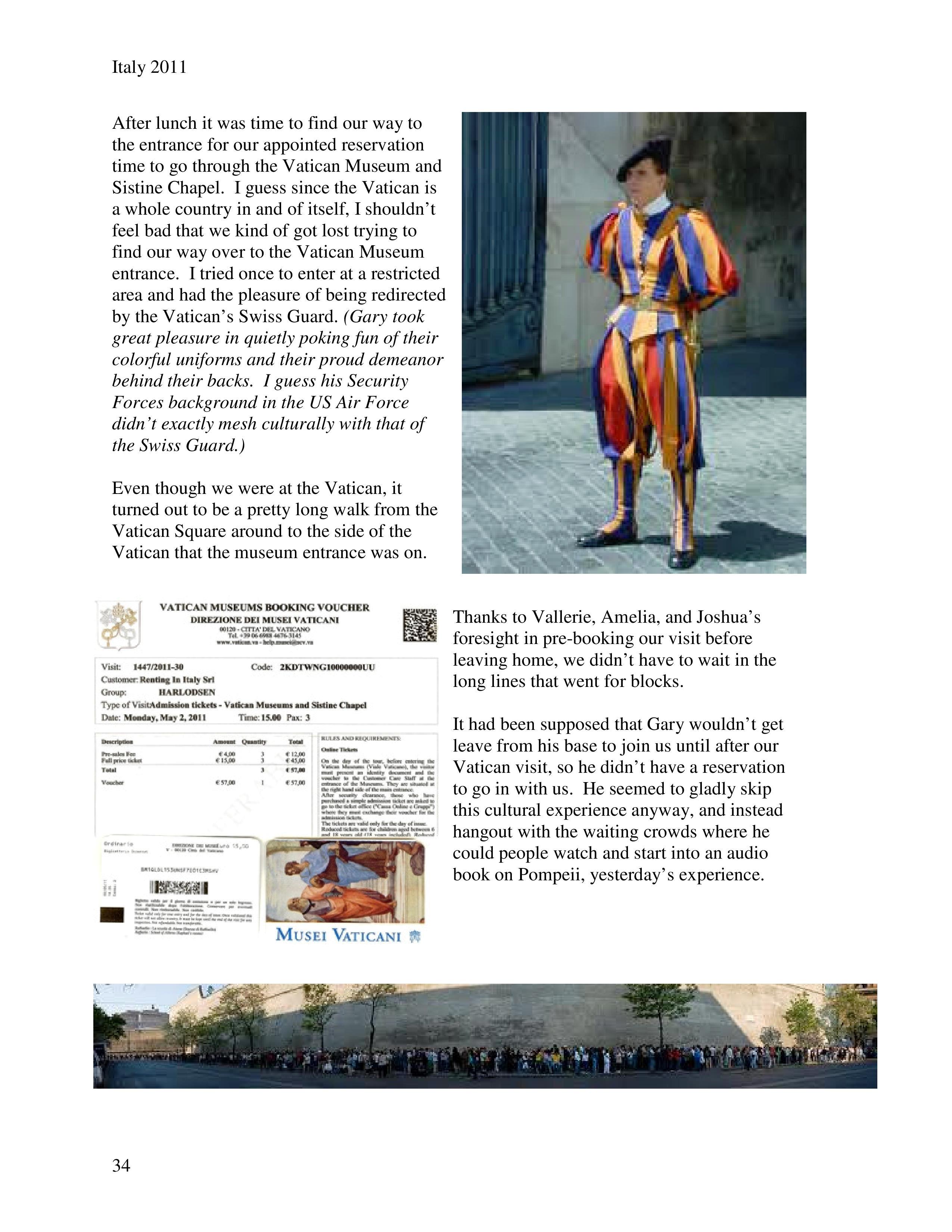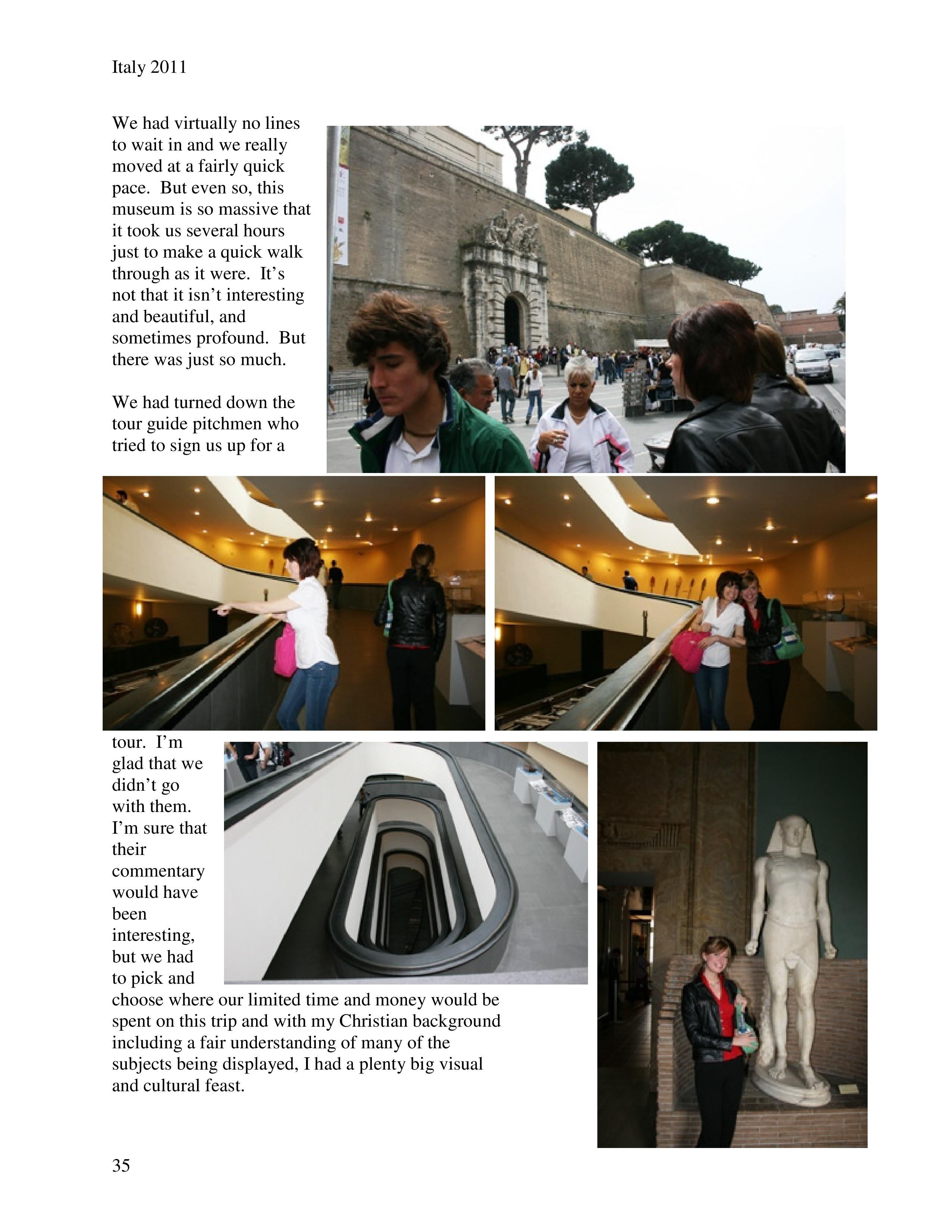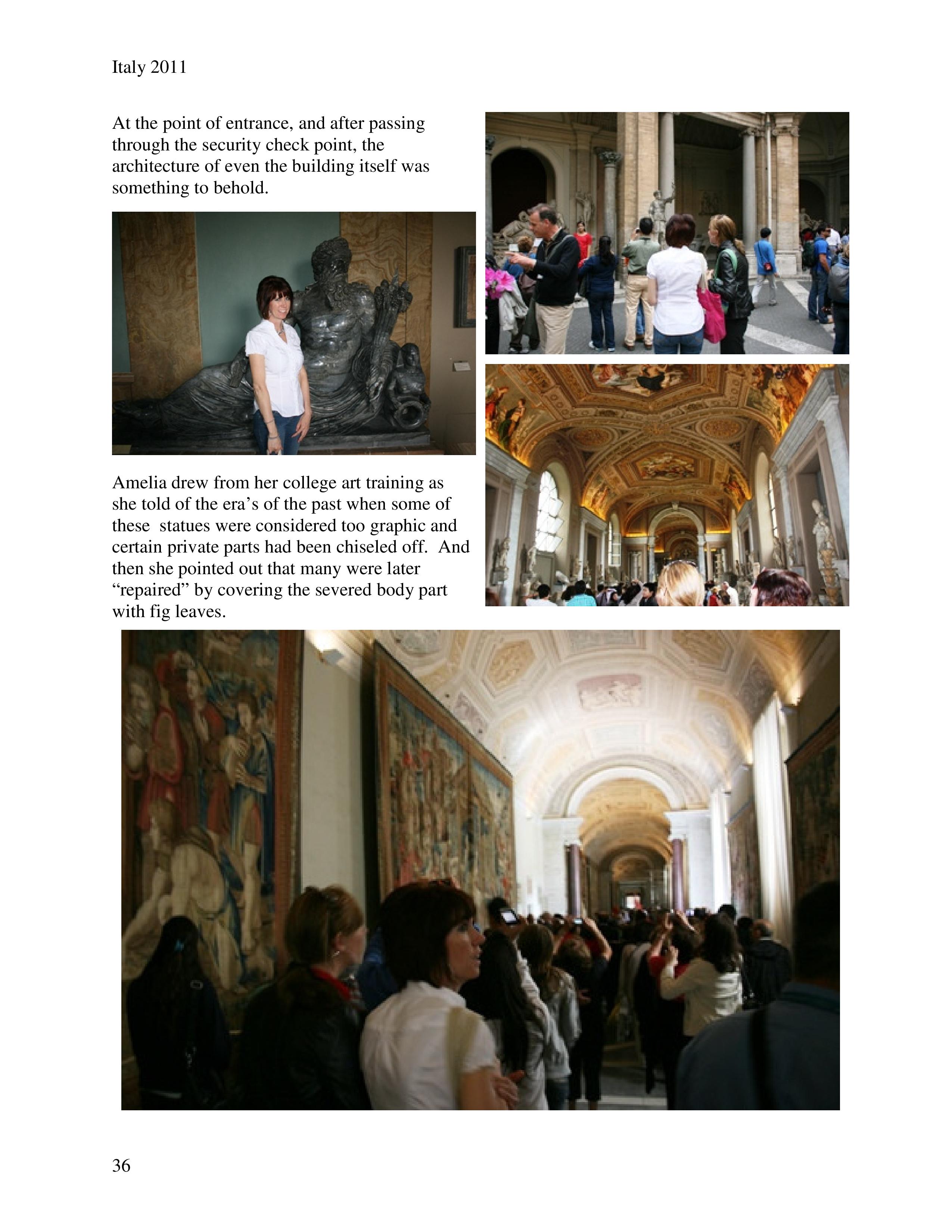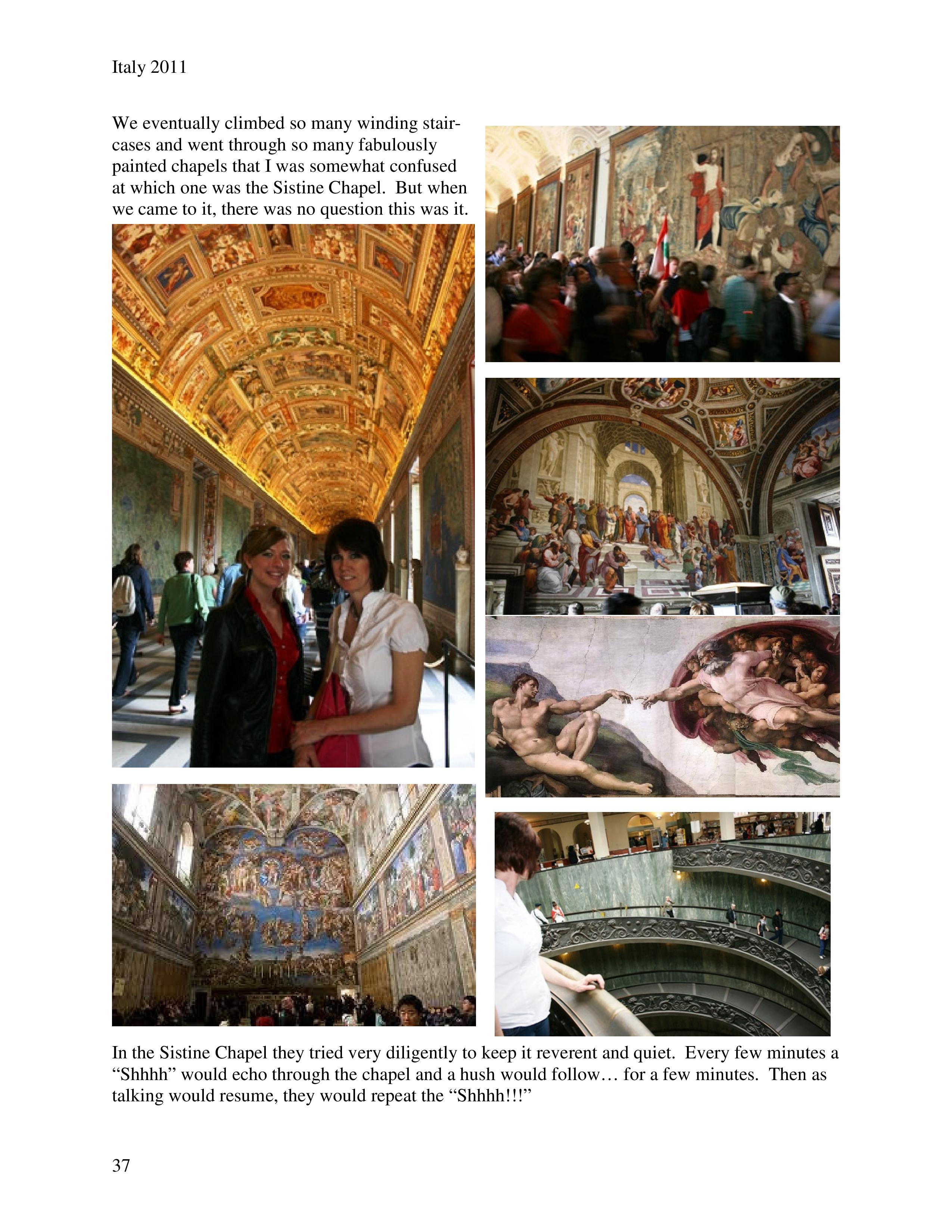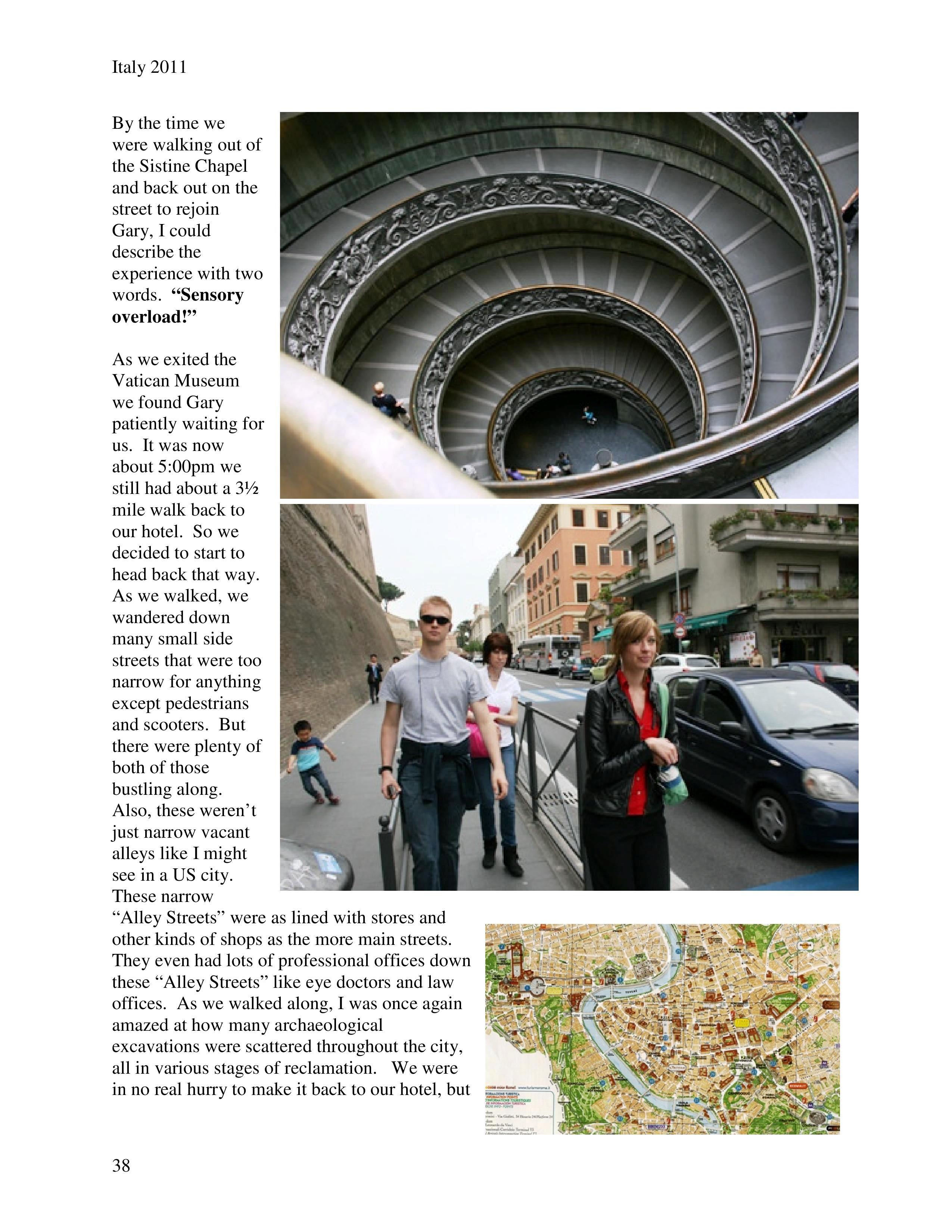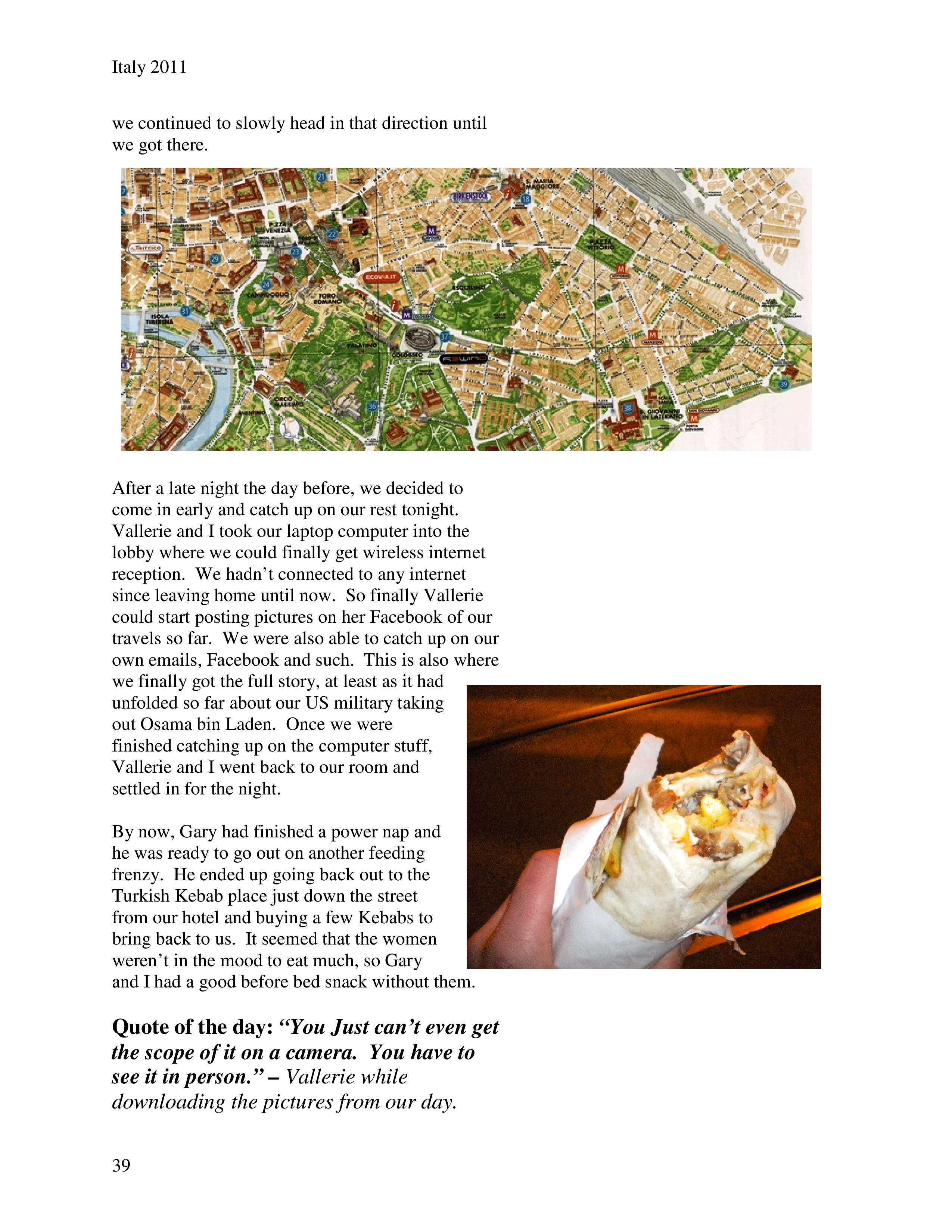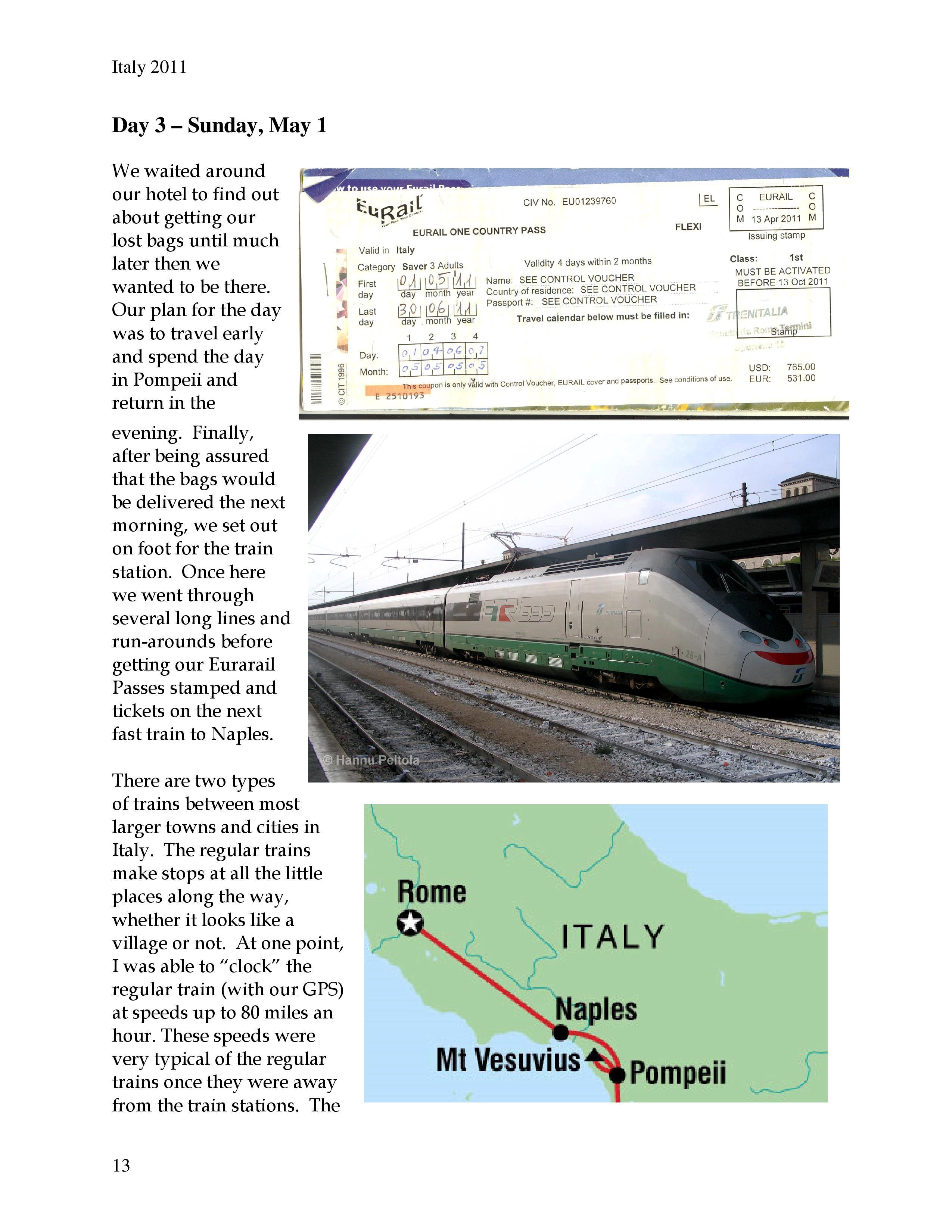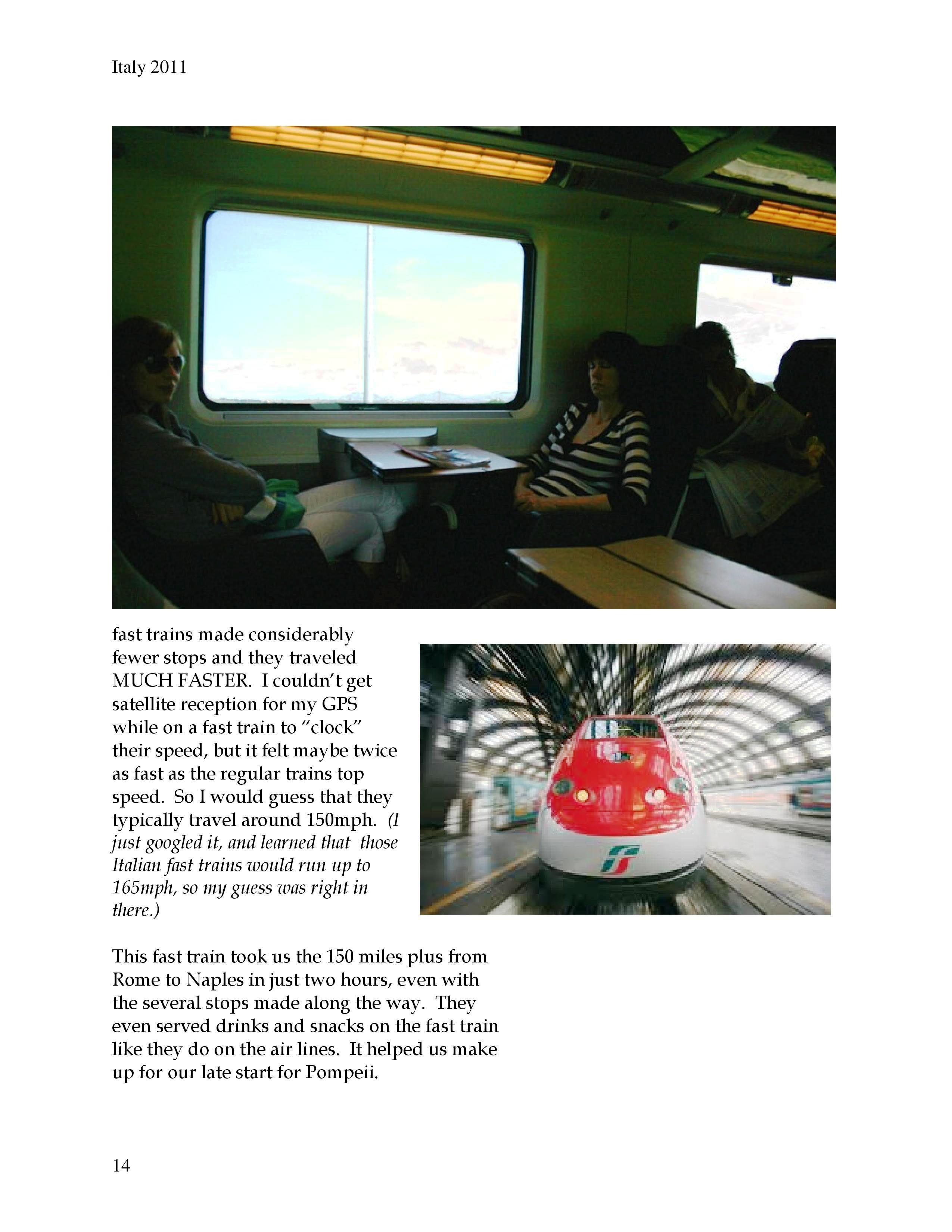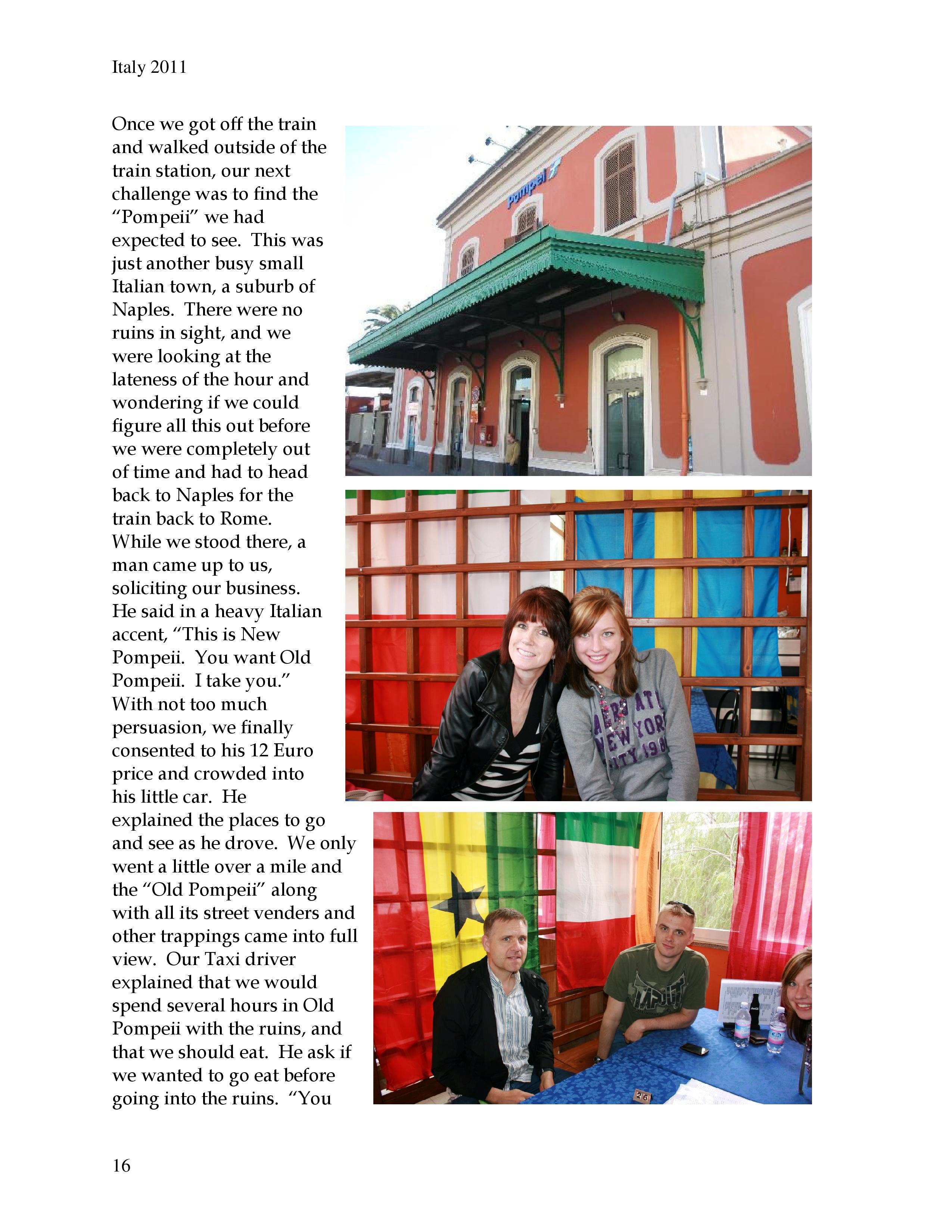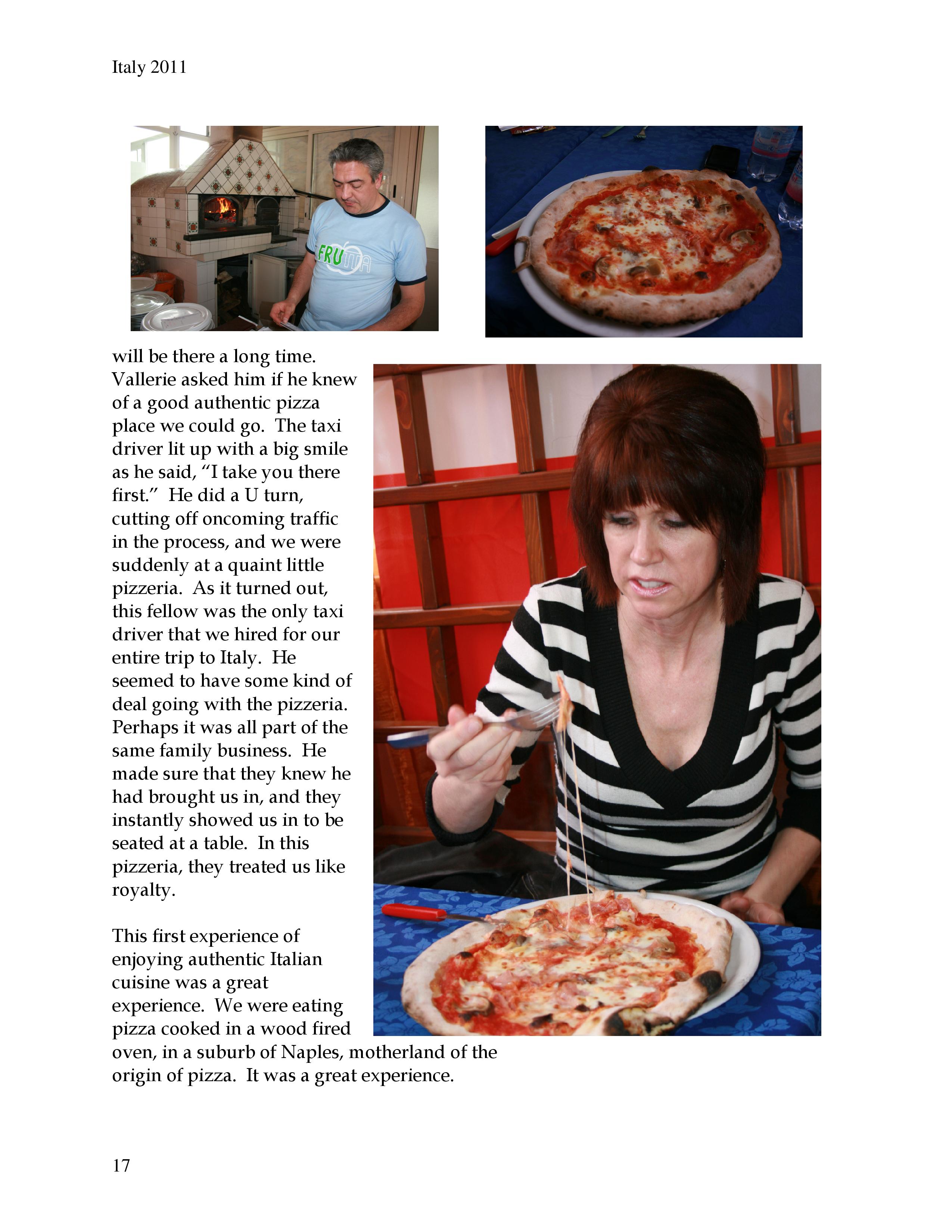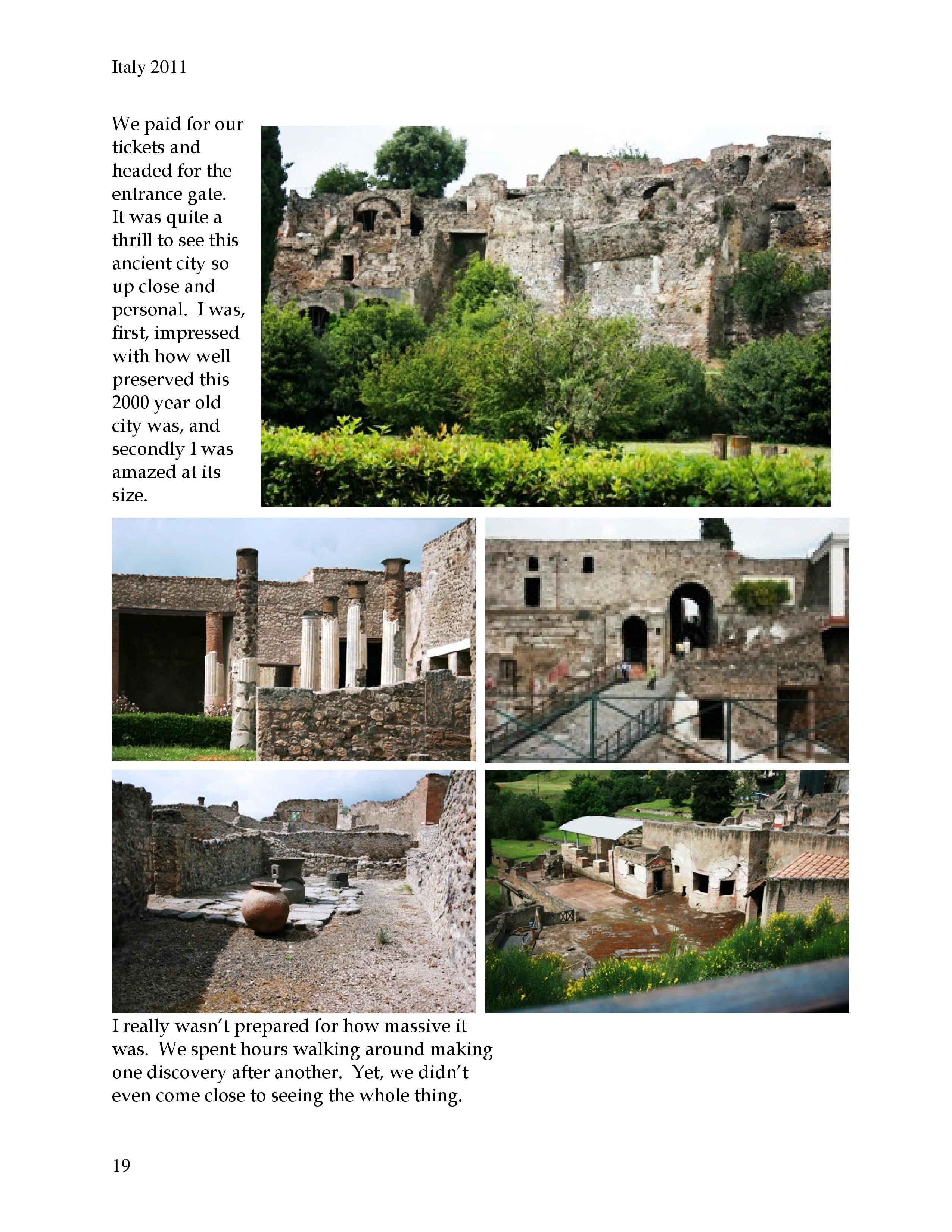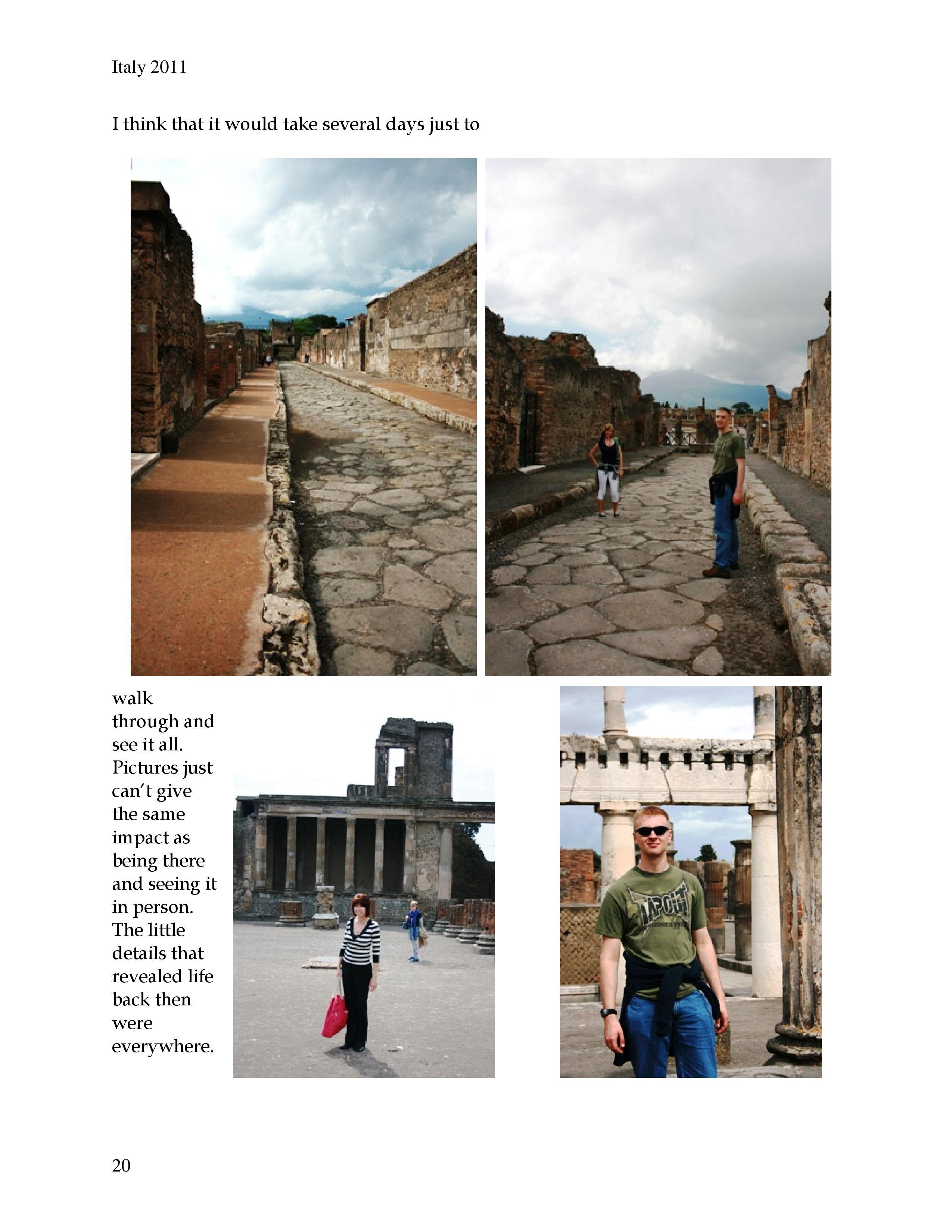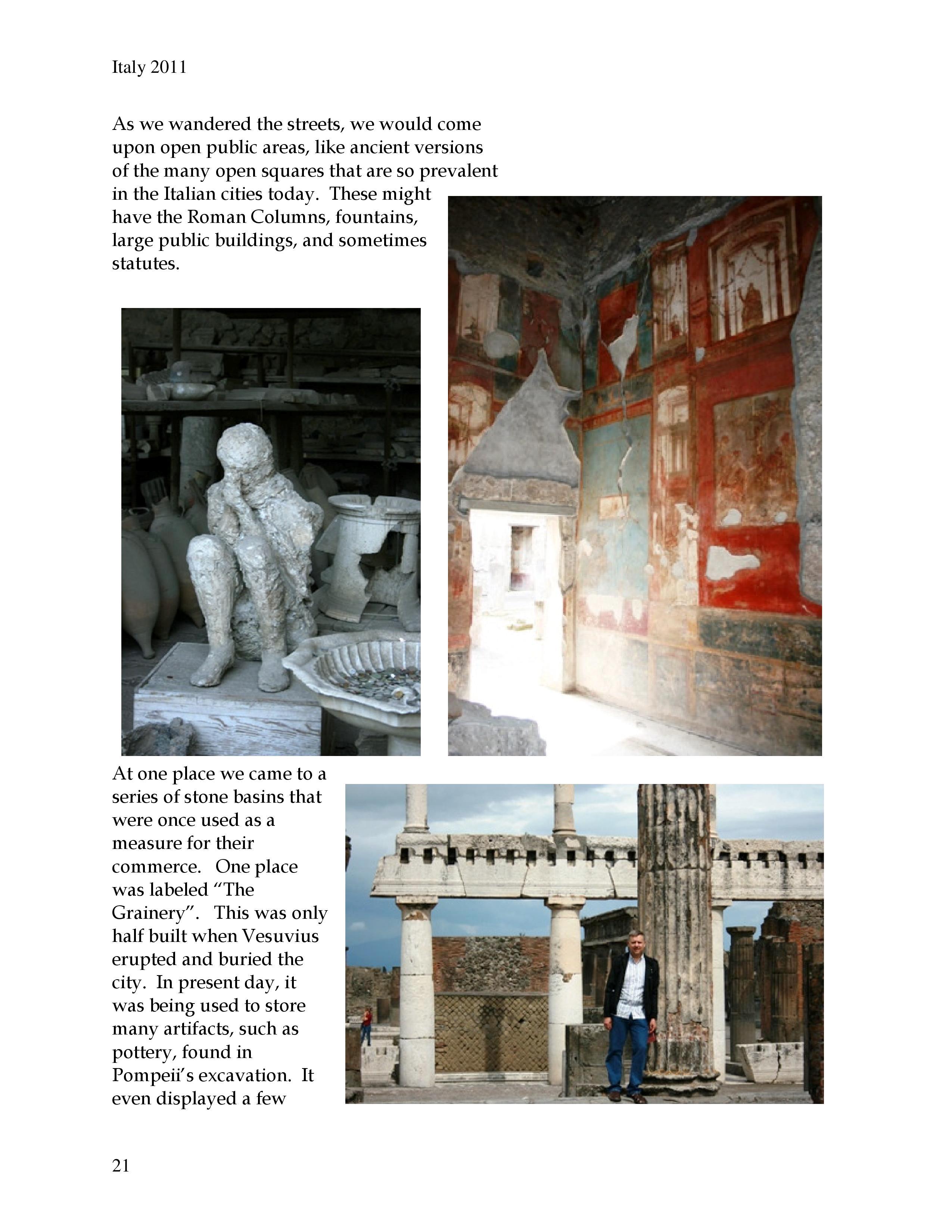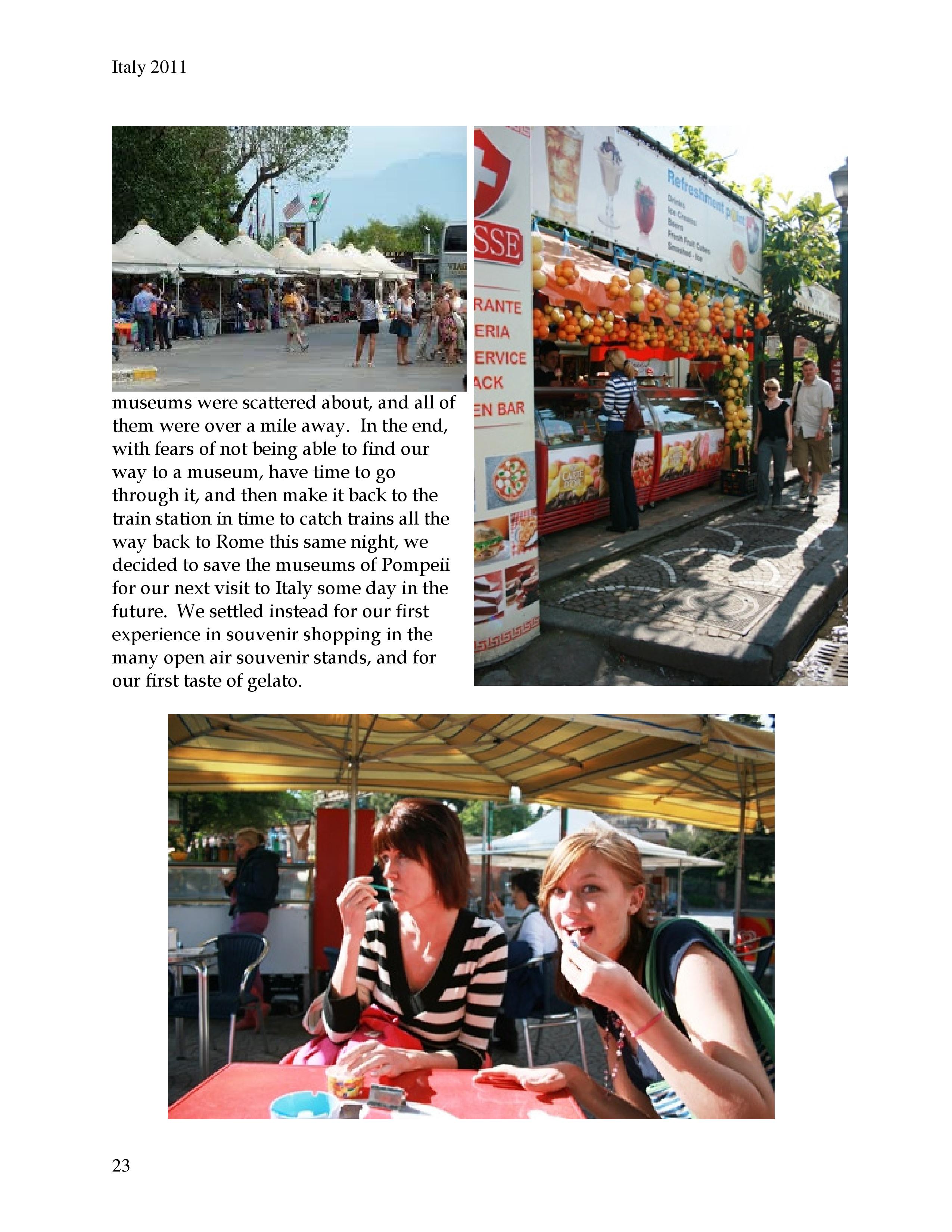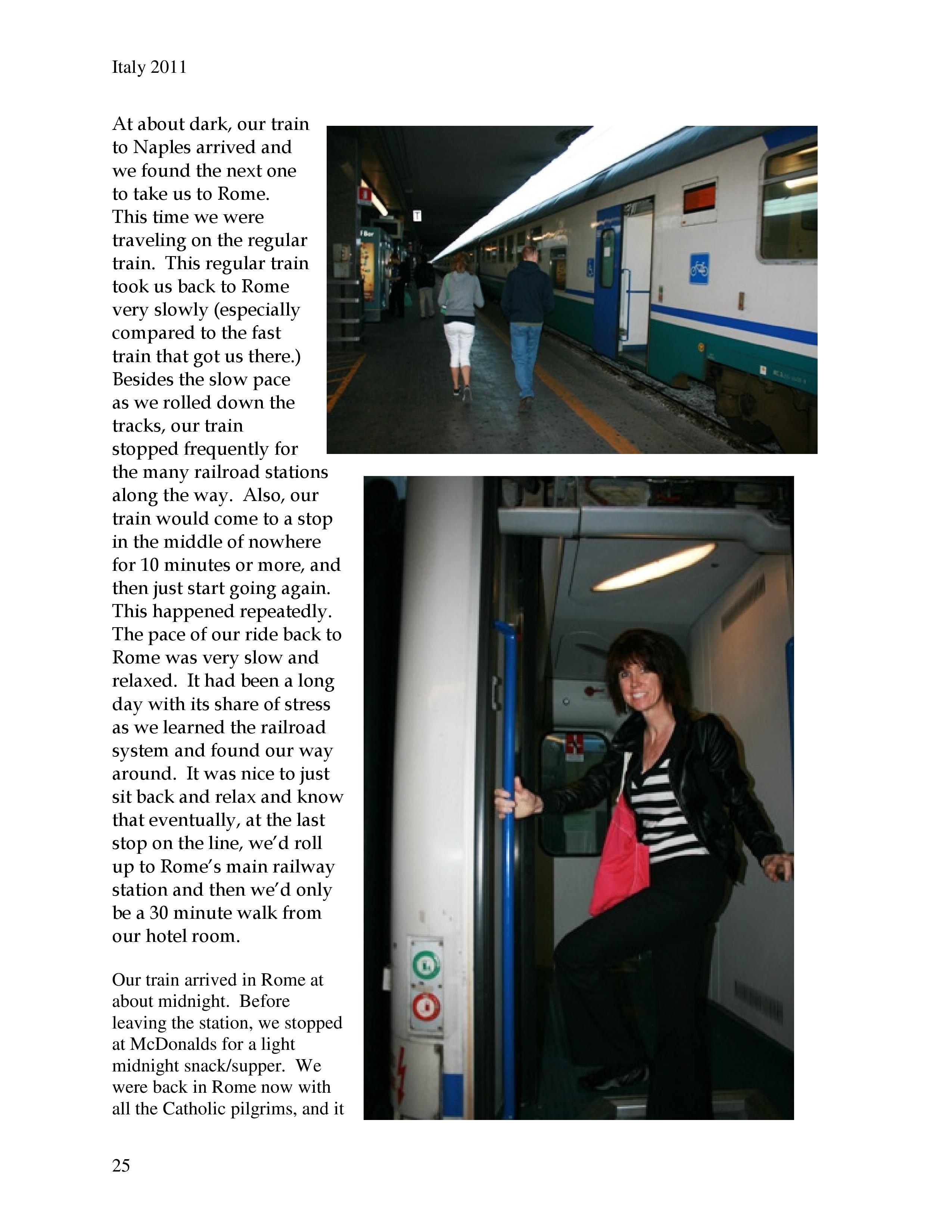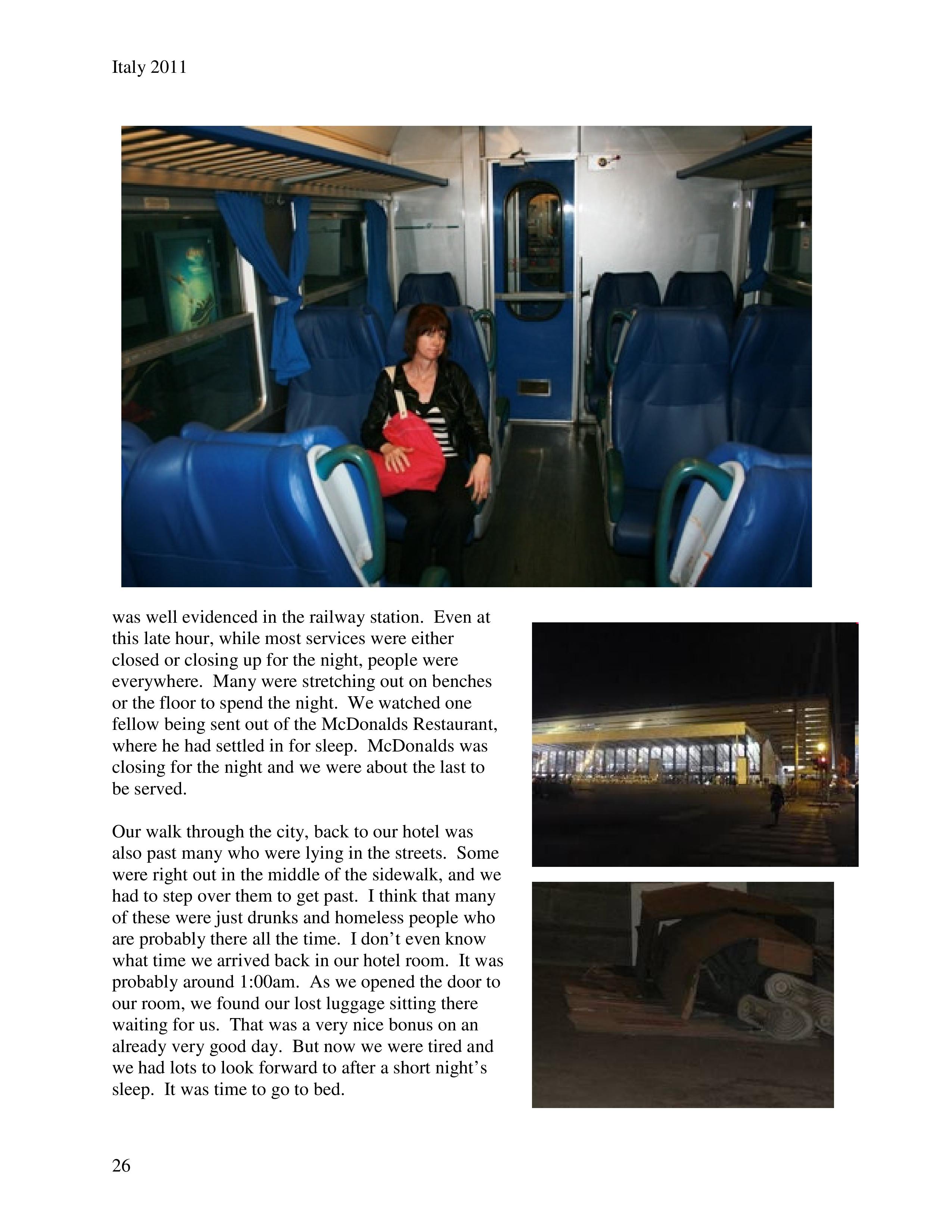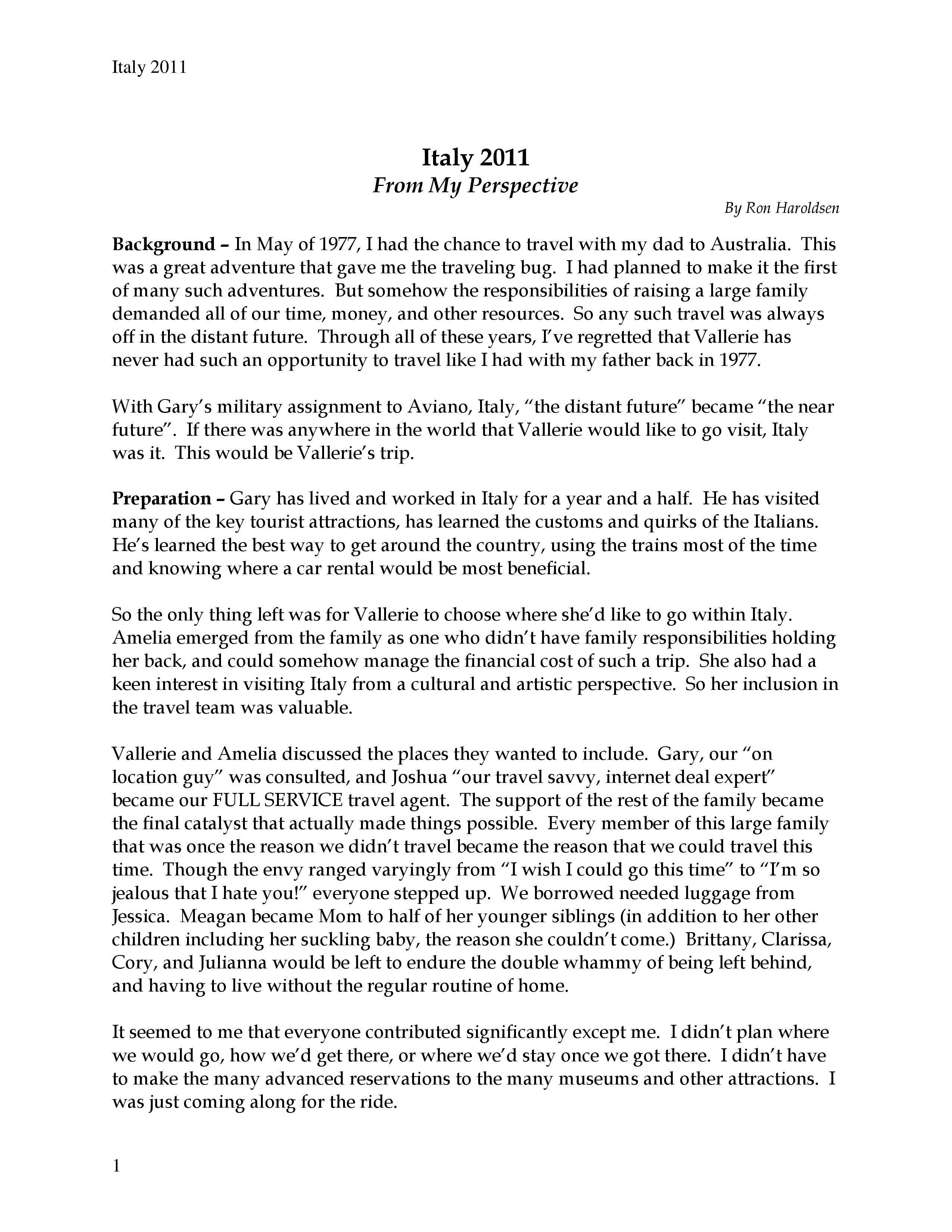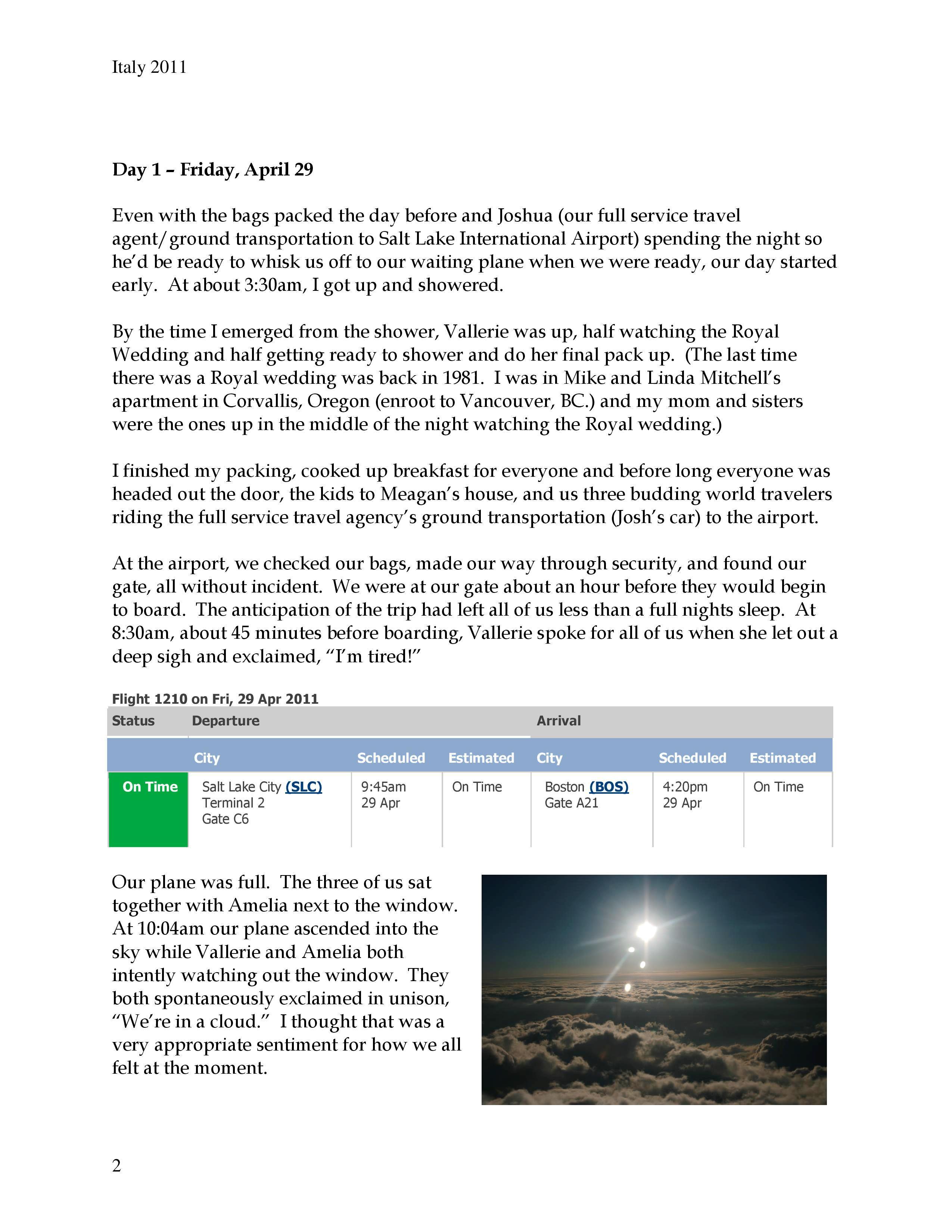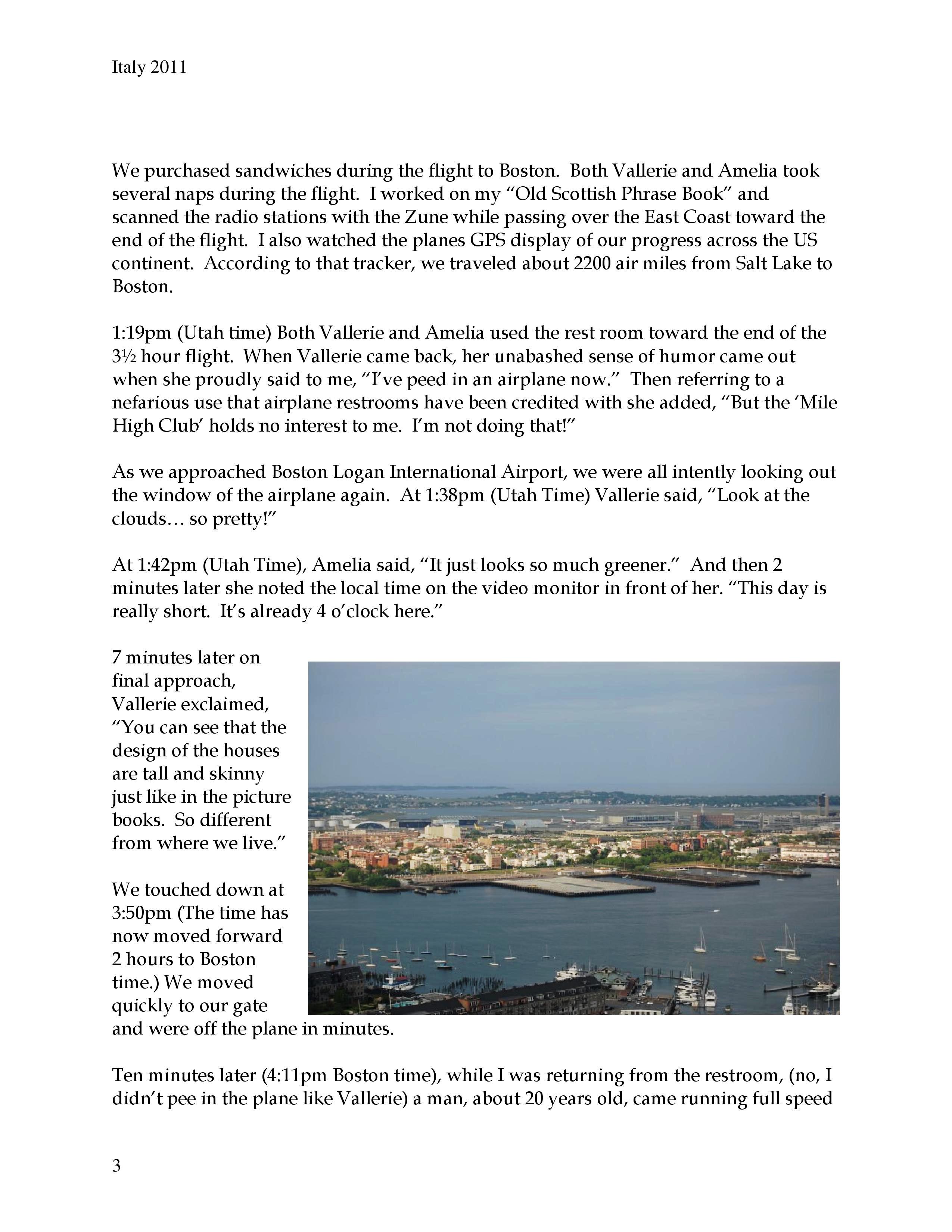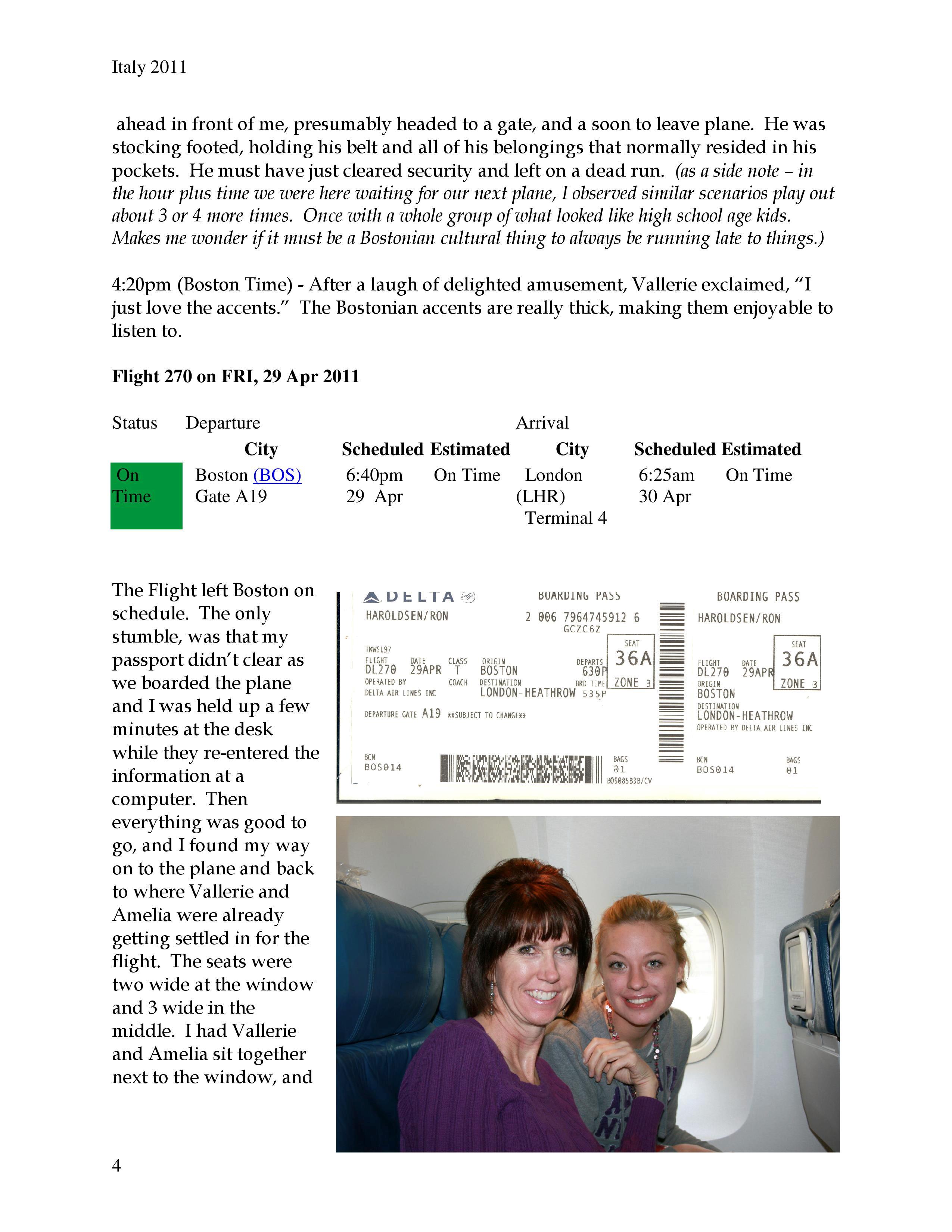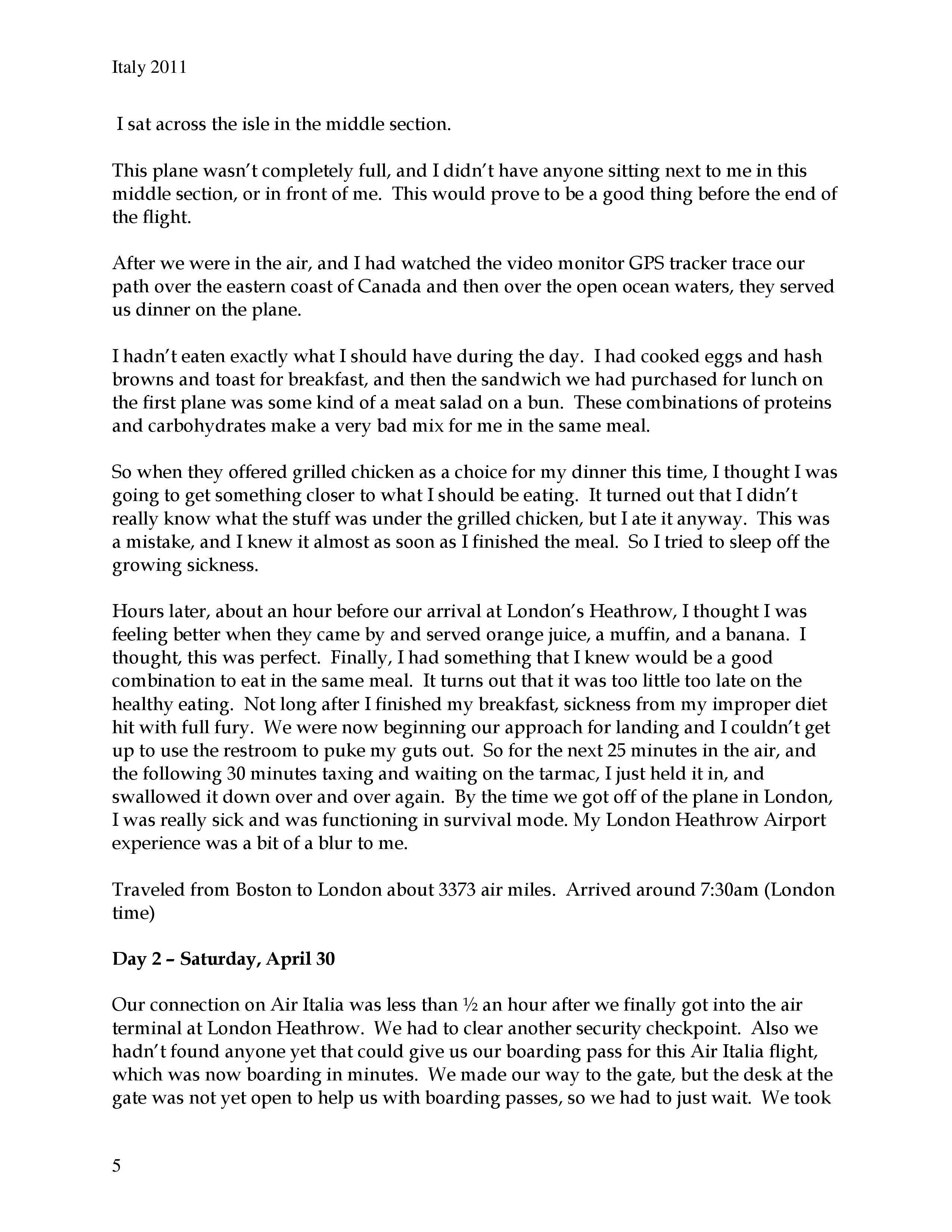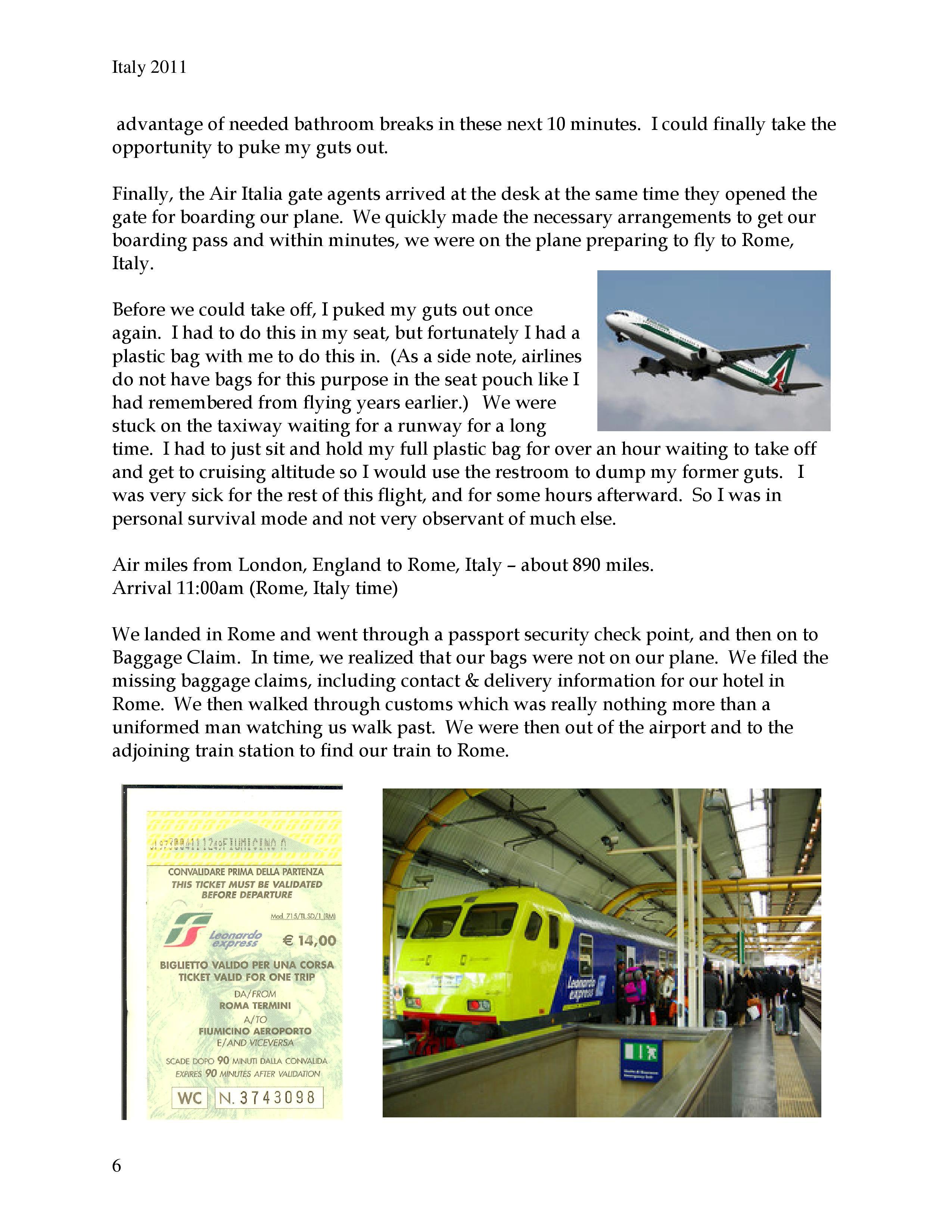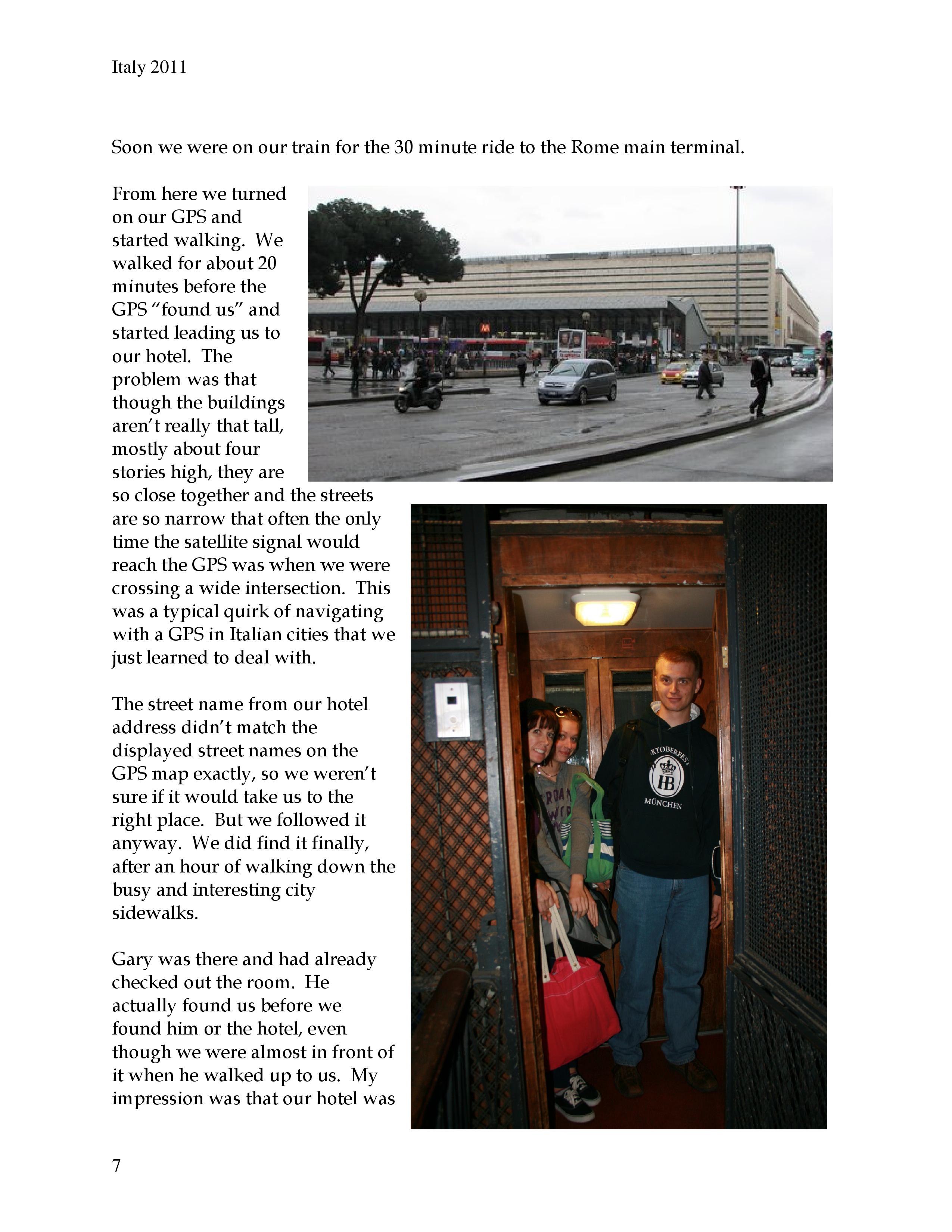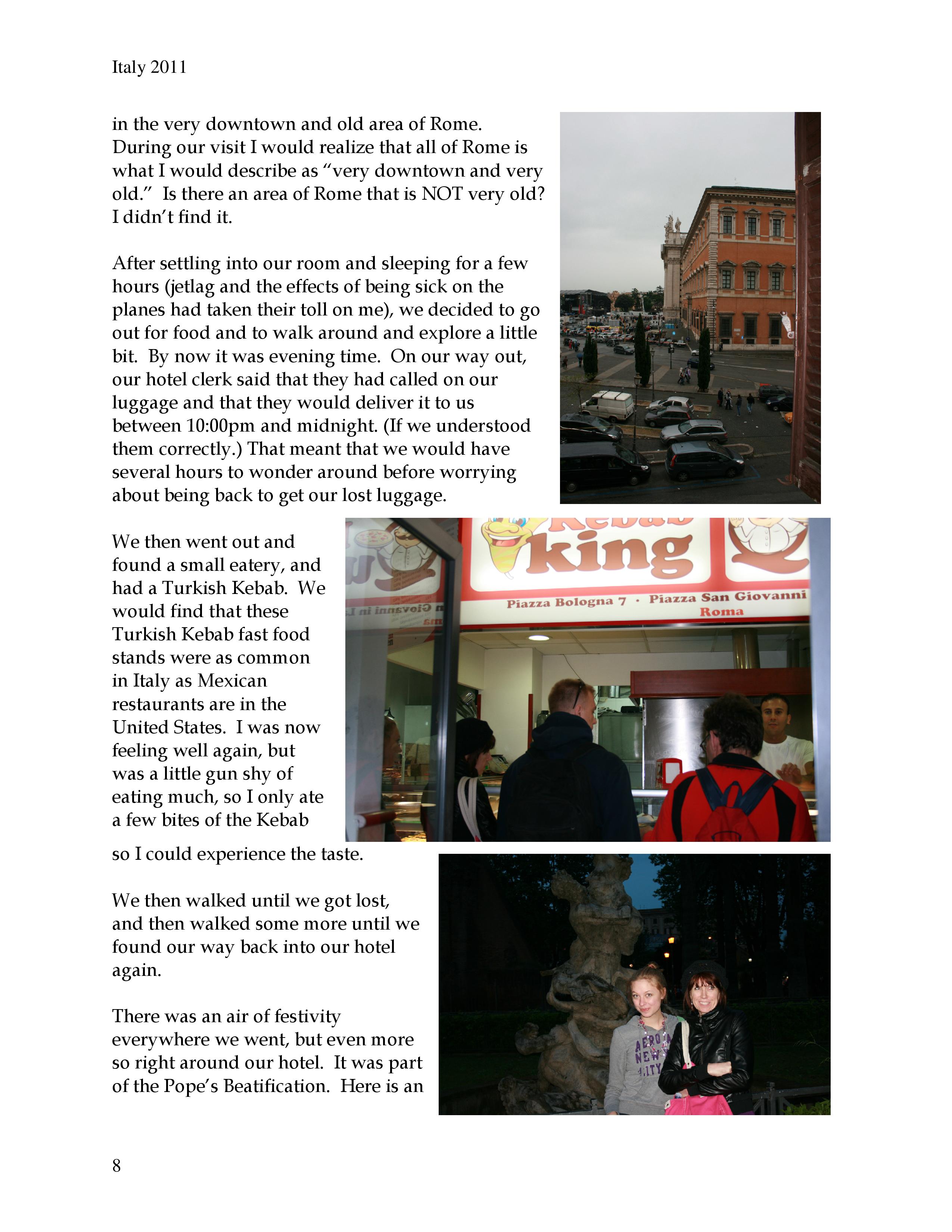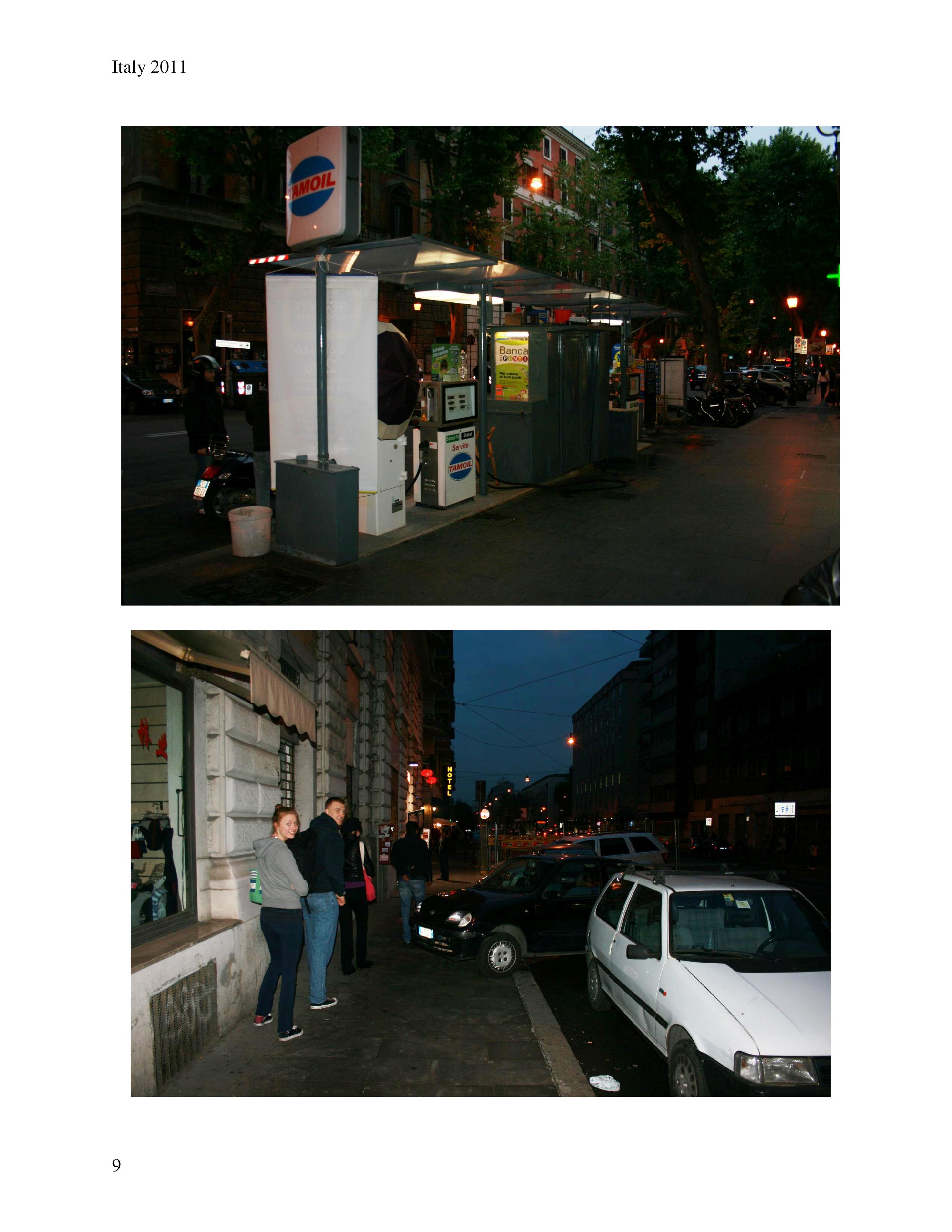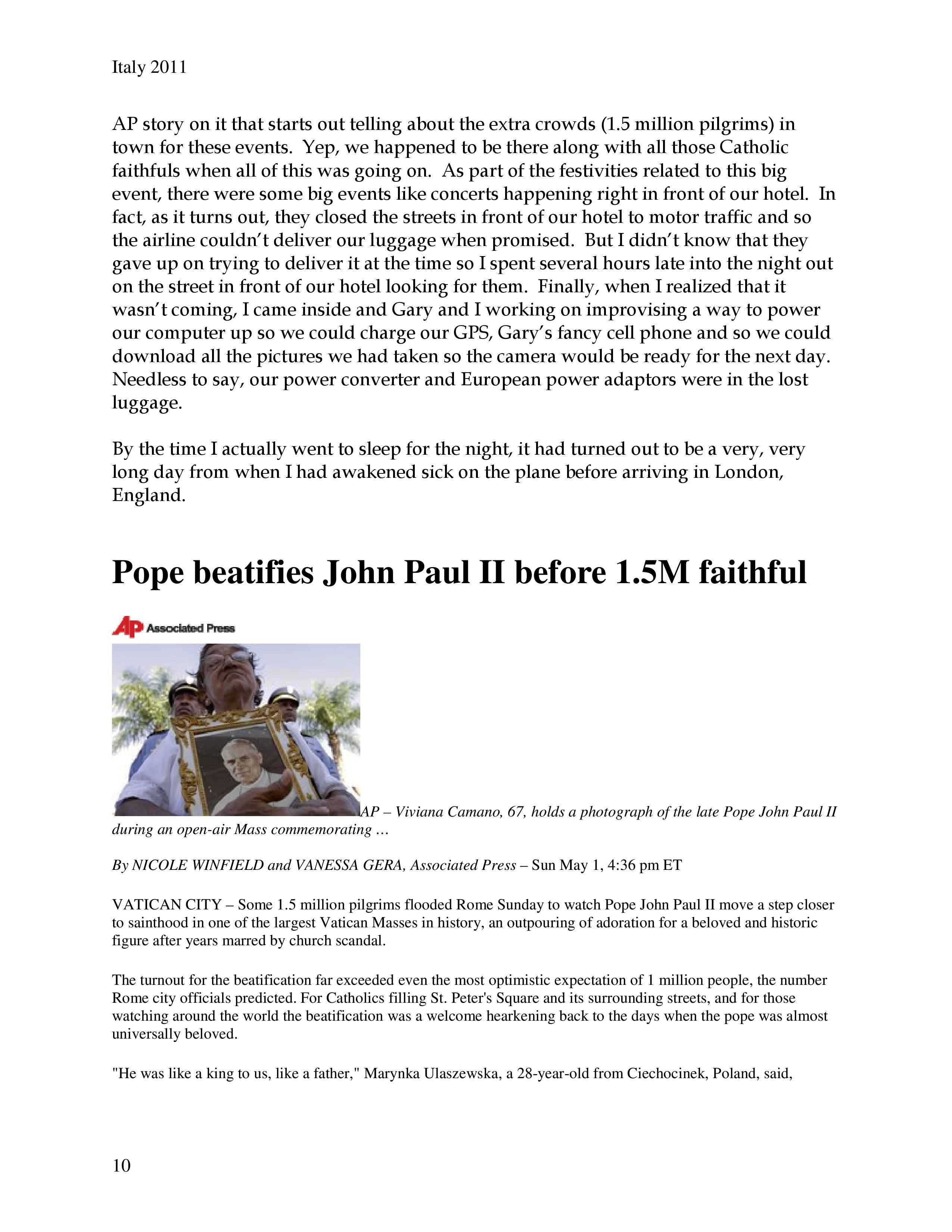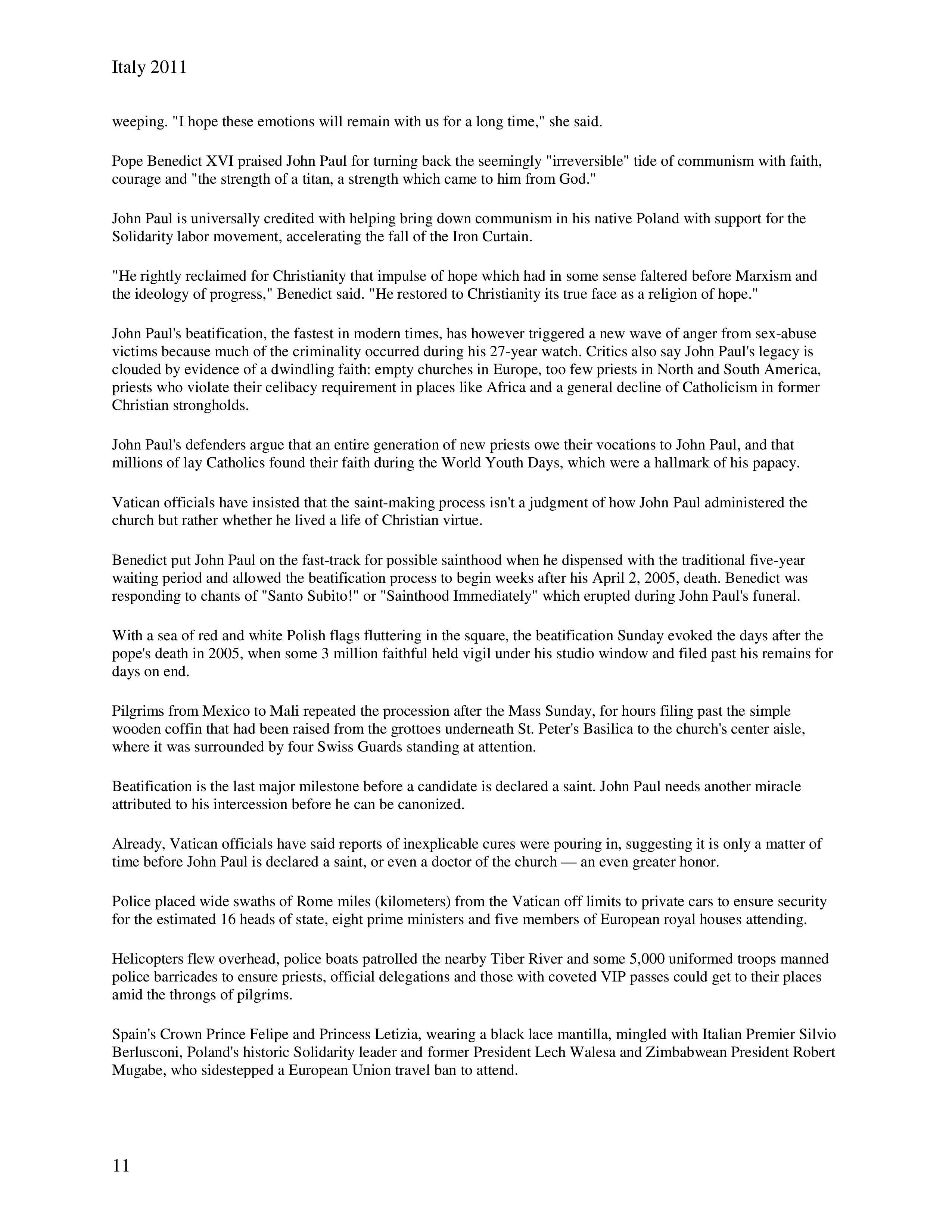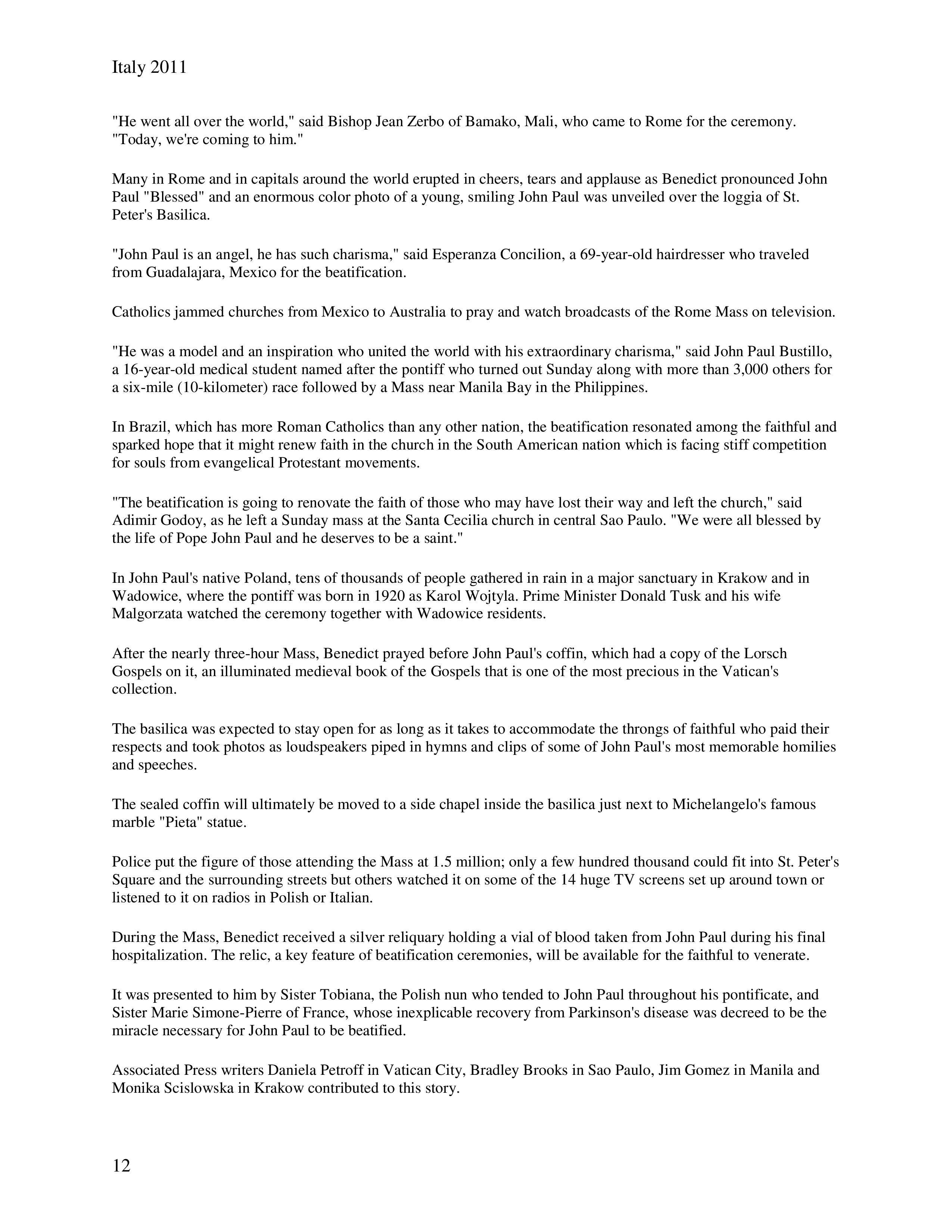Travel Blog – Italy Day 6
Travel Blog – Italy Day 5
Travel Blog – Italy Day 4
Travel Blog – Italy Day 3
Travel Blog – Italy Days 1 & 2
I Know your Pain
I Know Your Pain
It doesn’t
matter that you are rich & famous or if you are poor & lonely… If your
talents are world class, or if your abilities seem dull and plain. In one sense, we are the same.
Whether
astrophysics is light reading, or simple instructions confuse… There is one
understanding that we share.
Even if
you’ve traveled the world, seeing wonders and cultures abroad, or have only
experienced the home of your birth, we share one common experience.
For the
rich, famous, and infamous, the drama is displayed, out for all to see and
feel. For common folk it’s much more
private, but just as real.
Suffering
comes when there is much wealth and in extreme poverty. It comes in spite of good health as well as
in malady.
Some pain
is universally felt, experienced and common to all. Some is unique, known only to you. Yet, ironically, in this sense, you are
unique… just like everyone else.
A lifetime
pattern of intense people watching, coupled with a pattern of deep thought and
contemplation has taught me one thing about you. Though I don’t know the details, I know your
pain.
You feel
pain of body and anguish in soul, both for self and others. You’ve suffered loss, endured trials and
tribulations, experienced disappointment and defeat. Fear, doubt and despair have haunted your
soul. What you are made of is tested and
tried.
Whether
glared in the media, or seen in a quite glimpse, when I see your pain, it
reflects on my own. My pain is personal,
yet I’m not alone. Seeing your pain
melts my heart of stone.
Time Traveler
Consistent with my
compulsive disorder to gather and preserve anything of yesteryear, I am
embarked on a project to digitize and thus preserve any old cassette tapes of
my past. I’m afraid that my last
functioning cassette tape player as well as the tapes themselves are getting
old like me. So I can’t pass up the chance to open the shutters of the years
and wipe off the clouded window to the past.
Not counting my many Spanish
speaking audio tutors, my collection of old audio cassette tapes amounts to a
box with a little bit of everything.
Starting with over 50 in all, I didn’t see value in the few “store
bought” tapes of music that I still had lying around and I was soon looking at
maybe 2 dozen tapes. If I really valued
the music of the 70’s I could get much better copies from modern sources. So now I was reading the titles of talk tapes
that I had held onto over the years. Assuming that I wouldn’t be able to
replace these little snippets of history, I set them aside to be transferred to
an MP3 format so I could re-listen to them while out biking or jogging.
Now what remained were about
a 6 more unmarked, unknown cassette tapes. I spot checked what might be on the
first few tapes. “Well, this side had
nothing… And the other side is blank also.”
So deciding that it was just a left over blank tape from an earlier era
recording project, I tossed in into the trash with the old bad recordings of
70’s music.
The next tape had a date
“Oct 26, 1970” penned on the side along with the title “Family Night”. I had tried to listen to this tape once
before. The quality was so poor that I
couldn’t understand what was said. I
wondered if I could some how filter out the noise, and eaves drop on my
childhood past. I put the tape in and
plugged in my best earphones. I turned
the volume loud as I tried to adjust out the noise with the treble/bass
controls. The words never came clearly
enough to understand, yet I did understand.
We were singing my Dad’s favorite hymn, “Love at Home”. Then the tone and spirit of a prayer was
unmistakable. Yes, these were the family
night gatherings of my childhood.
The next unmarked tape
seemed to be another blank. I flipped it
over to double check the B side before tossing it into the trash can. Loud and clear, my oldest son, Joshua’s 11
year old voice came booming through.
This one was a study tape he had made when we lived in Draper, Utah and he had an egg
gathering job after school. I played the
tape for all grown up Joshua and he smiled with a look of recognition in his
eyes. He explained that early in the
morning, he would get up and make these study tapes of all his school work so
when he was out and about, especially at work gathering eggs, he could re-play
and thus multitask his studies into his other activates.
There were other tapes
(treasures for me to preserve) of my past. And I documented what was on each
one as now I carefully listened all the way through both sides of each
tape. I was frequently pleased with a
little snippet of my life’s past hidden between the many minutes of blank audio
tape.
Just before I called the
review and inventory phase of the project complete and prior to moving on to
the task of transferring what I valued into the my computer’s audio files, I
wondered once again about the first “blank” tape I had tossed into the trash
can hours earlier. Digging it out from
the pile of trashed tapes, I put the unmarked tape back into the player and hit
play. I then busied myself with other
things while the blank tape rolled through the player. When the tape came to the end, I flipped it
over and started it again.
Through the 60 cycle hum
typical of a poor recording of that era, I heard the newly married voices of My
Beautiful Wife and myself. Soon I had my
best headphones on as the volume turned up so I could hear the words
spoken. Immediately, I spun back in
time. No Hollywood
style time machine was ever as dramatic.
Instantly, I was a fly on
the wall (one of many flies on our old egg farm that I grew up on). I still lived on this farm in my early
married life. This was in our 12X55
brown and white mobile home, late in the summer of 1983. My Beautiful Wife and
I had just made our second big purchase together (a new car had been the first). It was a used spinet piano that we paid $900
for. Vallerie was seated on the piano
bench in front of the black and white keys. On the piano’s music holder, her
purple and green song book was spread open to a song she had learned before.
She was now testing her musical talents on the new piano.
As a fly on the wall, I
watched as the young married “me” was still setting up the little microphone at
the back of the piano. Before the final
set-up, I … I mean “he” put the microphone up to his lips and started chanting,
“Vallerie is Beautiful, Vallerie is Beautiful.”
I then got a little… I mean “he” then got a little R-rated with his
expressions of admiration for this love of my life.
My old self, “The fly on the
Wall”, cringed a little at the words coming out of this young man’s enamored
mouth. That had been the only time in
our 27 years of life together that little ears wouldn’t be listening and thus
guarding my bedroom talk casually around the house.
Now My Beautiful Wife played
the song all the way through, stopping and restarting several times through the
problem areas. At the end she sighed,
and said, “Boy I play so lousy… It’s embarrassing!”
Now I… I mean he, the young
married me, kissed that Beautiful Woman as he prepared to go back out on the
farm to finish up the day’s work. My
Beautiful Wife said, “Bye Sweet Heart.”
I was … I mean “He” was again a little bit R-rated in how he completed
his good-bye before walking out the door for the last hour of work. Before he actually left, there was one more
conversation.
Beautiful Wife – “What time
is it? Will you be in at 6 for dinner?”
The Young Married me – “YES”
Beautiful Wife – “I’m going
to start in 15 minutes”
The Young Married me – “What
did you do with that egg carton” (it had small parts from a repair project in
progress.)
Beautiful Wife – “It’s up on
the counter.”
The Young Married me –
“Hoped you didn’t throw it away.”
Beautiful Wife – “Nope!”
He then picked up the grease
stained egg carton and walked back out to work.
Within a moment, the Beautiful Wife went back to her piano playing. She played song after song. Stopping
frequently at the trouble spots. Several
times she sighed in frustration at her struggles.
As a fly on the wall, I just
sat there and watched her play. I had
forgotten how much I loved listening to her play the piano. At the end of her 15 minutes, she was true to
her word and stood up clicked the recorder off and went into the kitchen to
start dinner as I was sucked back through the time tunnel to the present.
This time travel experience
happened to me over a week ago, but I can’t get it out of my head. I can still hear, see, feel, and experience
her emotions as she played for me 26 years ago.
I love great music and talented pianists. But no one will ever hold a
candle to what it does for me when My Beautiful Wife plays the piano. Even with the threat of being embarrassed by
hearing my R-rated expressions these many years later, this one 17 ½ minute
audio recording is a treasured possession.
It takes me back to a time before My Beautiful Wife could see all my
faults and weaknesses. To a time and
place when I really believed I could make all her dreams come true.
A Wonderful Life
Norman Victor Haroldsen
March 18, 1928 – May 12, 2008
A Wonderful Life
Norman Victor Haroldsen, born Sunday morning March 18, 1928. His mother told him that if he’d be born 10 ½ hours earlier, she would have named him Patrick in honor of St. Patrick’s day.
His parents, George and Kate’s family, appeared complete before Norman came along. A family picture seems to confirm that idea. But then Norman and his 18 month younger sister appeared as two trailing cabooses to George and Kate’s family.
Relatives were perplexed at where all his black hair came from. It disappeared as mysteriously as it came, and by the time he was two, Norman was as blonde as blonde could be.
With His little, almost twin sister, Norman’s enthusiasm for experiencing life got him into his share of childhood trouble. One of many examples, that could be cited, was when their mother was canning grape jelly. Norman and Helen were trying to be so helpful that Kate put their names each on a quart bottle of jelly, saying “This one is yours Norman, and this one is yours Leone.” Three months later, neither Norman nor Helen saw a problem with going down into the basement to open their bottles of jelly. The first few spoonfuls were pretty tasty. But before it was all over they didn’t know what ached more, their bellies or their rear ends.
Norman was experimental as a small boy. One day, he stretched a rope across their cement walkway about 6 inches above the ground, not sure of what he’d catch. He “caught” his big brother Ed, who was running to the house to get something he’d forgotten. Ed’s fast moving foot caught the rope, his nose caught and plowed the cement walk, and Norman caught heck from Ed.
In telling of growing up on the farm, Norman said, “Our parents never took us anywhere. And I literally mean that – never anywhere. We never went to Idaho Falls or even to church. We grew up during the great depression. But we were never aware of being poor or deprived. We never went hungry, but were never given any money by our parents.”
Norman tells of the tedious hours thinning beets or doing many of the other monotonous farm jobs as a child, but he also spoke of the fun times on the farm. At night, after the farm work ceased for the day, Norman’s favorite activity was to go to the old swim hole. He said “I was eight or ten – probably ten (years old) when my brother Ed taught me how to swim out there.” Brothers and cousins all joined in – strictly “boys only” though. (Dad told me that he never owned a swimsuit until he was 18 years old.) They built a big bon fire near the swim hole, and when Norman got cold, he’d stand next to the fire. He’d turn a little and stand some more, and then turn and stand some more, roasting like a hot dog on a stick.
Another favorite family activity was more complicated to prepare for. Everything had to be timed perfectly. I don’t know the exact order of things, but Norman’s dad, George did. The first crop of hay cut, the rest of the planting completed. Cows doctored, pigs castrated, all the crops irrigated, fences repaired, potatoes cultivated, hay hauled in from the field, and stacked with the hay derrick. And the hay field watered for the second crop. Corrals cleaned and calf stalls freshly bedded. The list seemed that it would take all summer of day and night work to finish.
Then finally Pa would declare everything was ready and Norman’s family would feverishly pack up and head for one of their favorite fishing streams for the next two or three days. Norman’s dad, George, worked as hard at fishing as he did on the farm. After a few days of R&R along a river bank up in Island Park or somewhere else, the family would beat it back to the farm where everyone was expected to work double-time to catch up on the farm work again.
George’s strong work ethic rubbed off on to his son, Norman, even at a young age. One of the daily chores that was identified as “Norman’s job to do” was to milk the cow in the morning. Norman was always so anxious to get going in the morning that he would get up earlier and earlier to go out and get started. When he was going out to start milking at 3:00 am, Norman’s mother, “Kate” finally put her foot down with the scold, “Norman, if you don’t quit getting up so early to milk the cow, I won’t let you do it any more.”
I, along with all of my siblings, can vouch for the fact that George’s son, Norman, retained this work ethic to pass along to the next generation.
Even though Norman’s childhood home was less than five miles from the Idaho Falls City limits, this rural area, St. Leon, operated its own school. Back in the 1930’s, St. Leon was a modern school with 2 rooms – grades 1-4 in one room, and grades 5-8 in the other. With 4 rows in each class room, Dad said they just moved over 1 row each year. Going from grade 4 to 5 was a big deal because you got to change rooms.
Like Norman, most of the kids attending St. Leon were farmers who had chores to do after school. No time for sports like the city kids played. So when Norman graduated the 8th grade, in 1942, and began attending Idaho Falls High School, the last thing he and his buddy/ cousin Ray wanted was to be humiliated in the required PE classes. But good the news was, they discovered they’d be exempt from PE if they were enrolled in High School Band. So Norman’s high school band career was shining, with playing two different instruments as he participated in concert, pep, and marching band. In his final high school year, Norman beat out popular Donna West as the bands business manager when she caught backlash for saying, “We can’t have the band run by a bunch of country boys from out in the sticks!”
While attending high school, Norman learned that many of the kids attended LDS Seminary, and he too was enrolled by the second year. Ten years before Norman had been born, his dad had become embittered by an unchristian Christian, who was in a position of power. So with the exception of being baptized at the age of ten, at the insistence of Norman’s mother, their Christianity was practiced at home instead of at church.
Norman loved attending the high school LDS Seminary. It was the beginning of a life of associating with… and learning with… others, who likewise loved God and were inspired by the scriptures which teach of his love for them.
After high school, Norman’s education continued as he pursued a bachelors’ degree in Agriculture. In his Senior year of attending the University of Idaho, up in Moscow, Idaho, Norman and several of his buddies decided to spend the Thanksgiving Holiday exploring further up north instead of coming back down south to the family farm.
An old high school buddy from Idaho Falls was serving as an LDS missionary in Vancouver, British Colombia. When Norman and his college buddies met up with Elder Layton, he told Norman that he’d like to show him around town, but that there was a missionary farewell, which he was obligated to attend. Norman and his buddies were game to go along and attend the chapel meeting, and even more game to attend the dance, which followed in the basement of the church building.
Norman’s buddies watched in amazement as this otherwise reserved (if not down right shy) Idaho Farm Boy competed and ultimately won the attention of the most beautiful girl at the church dance. Norman forgot all about his other friends as this beauty, Fay Tillack, introduced him to her family and then showed him around the city the next day.
Differences in background and distance didn’t separate the Canadian city girl from the Idaho farm boy for long. The following summer, July 28, 1950, they were married in the Idaho Falls LDS Temple.
The first eight years of their married life became a defining time for Norman—Both vocationally and spiritually. As three sons eventually joined their family, Norman and Fay remained active in church and involved in the family farm. The stated plan was for Norman to begin to assume management of the farm while his dad, now in his late 60’s eased into retirement. But working year after year with no pay and no say in any management decisions convinced Norman that he had no future on his childhood farm. Also tragedy struck even more personally when Norman and Fay’s third son, 18 month old Gary Kent, suddenly became ill and died.
Those hard days brought two resolves that Norman kept. He would never take his faith for granted (the faith that gave him hope that he would someday be where he knew his son’s spirit was). So He resolved to remain faithful to his faith and to serve God wherever and whenever he could.
Norman also resolved to make a new career start—Here he did almost the impossible when, with no money to his name, he moved his family which now included a baby daughter to Rexburg where he developed his own small time egg farm into the thriving predecessor of today’s Agri-business.
Norman made those changes in his life, with his father George (still suffering from his own personal bitterness) accusing him, “All you care about is chickens and church.”
Seven of us children grew up on our family egg farm. This is where we learned from Dad to work and play “Haroldsen Style”. We didn’t work at a feverish pitch, night and day, for 3 weeks before going fishing. But none the less, our work load compressed and intensified on both ends anytime we took off for such things as celebrating Memorial Day or the 4th of July “Haroldsen Style”.
Growing up on this egg farm, working and playing beside Dad, is where we listened to his classical music and he endured our music. It’s where we learned from his sense of humor and developed our own. It’s where we learned that we can love life even when we are working hard.
Norman’s normal workdays were always long. Always starting before 5:00am, after 12-14 hour long work days, he would enjoy supper together with all of us as a family. Then frequently Dad’s workday would continue with paper work in his office. Often his personal time was spent curled up with a geography book- and finally dreaming about places he’d like to visit in the world, until a new day began.
He did travel widely – throughout the world – always out on his own – never as a part of a tour group. He was always too impatient to wait around for the slow pace a tour guide would take.
Dad’s people skills and sense of humor are legendary to everyone who really knows him. He made the world his friend-one person at a time. Examples of Dad’s sense of humor continued, even in his devastating illness, even when he was most miserable. I’ll give examples that each of my three sisters have told.
Story #1
Last October Dad’s clothes didn’t fit very well because he had lost so much weight from his sickness. Catherine told the rest of us siblings about it.
“Just thought you all might want to know about Dad’s first trip back to church after nearly a year. We get to park in the handicap parking. We all get out and I stand on the sidewalk waiting for them to come around the other side. I’m standing there looking at the people walking into the church when I hear Dad behind me saying, “I think I have a problem here”. He said it pretty calmly so I just turn around to see what the problem was. There was Dad, standing on the sidewalk with his pants down on the ground around his ankles. It was quite a shocker to see that. He had his suit coat on and looked fine from the waist up but his bare legs were just out there for all to see. If the people walking into the church didn’t notice that on their own, they certainly did when Mom let out a shriek. All heads turned and got the shock of their life. I walked over and did my best to block my dear old Dad from the church gawkers while Mom bent over and tried to pull his pants back up. She tucked his shirt in, scolded him for not cinching his belt tight enough and pleaded for us to all go home. “We can’t go in there now!!” she cried. They did go on into church…but afterward Mom and Catherine took Dad home where they made Moon Pie to celebrate his first trip back to church after being away so long.
Story #2
When she was caring for him, Laurie told of how utterly uncomfortable and in fact down right miserable Dad was. He told Laurie to “just shoot me”. Laurie pantomimed shooting him and he immediately dropped his head to the side with his tongue hanging out like she’d killed him.
Story #3
Linda said, “One day Mom and I were trying to re-shift Dad in the bed. She stood on one side and I stood on the other. Dad’s knees were bent up so I took a hold of one leg and mom took the other and we started to lift him up to shift him. Dad opened his eyes and said, “make a wish”.
All of these stories are classic Dad’s great sense of humor and positive attitude no matter what.
As I pondered a good analogy of my father, Norman’s life, the majestic Teton Mountains which have graced his landscape most of his life came to mind. Regardless of temperature or tempest they stand firm. My Dad’s testimony and faith in God is like that. Even when hidden from the view of all by storm clouds, those Teton Mountains don’t waver or waffle. My Dad’s character and nature were likewise unaffected by his storms of life.
The harsh conditions on the Teton’s leaves a beauty that cannot be created any other way. It’s the same way in Dad’s life. The trials in his life have molded his character with beauty that only the master’s hand could create.
Norman’s life long love of people, and his faith in the goodness of mankind, has endeared him to very many throughout his life… to almost all who know him now. This expectation of the goodness of mankind… has become self fulfilling… as his goodness has rubbed off onto those he came into contact with.
Norman’s good friend expresses this so well in a card he wrote two weeks ago. Darwin Wolford’s words (and scripture) sum up Dad’s life better than my words can express. “Norman, you have always been a man I looked up to as a true Christian gentleman, unselfish, meek, without guile, and thoroughly righteous. When I reach this point in my own life, I only hope that I will be as prepared to meet my Savior as you are. I guess the suffering you experience is given to you as a means to refine the steel in your sweet soul even more. I think Isaiah’s words are much better than mine: “Behold, I have refined thee, but not with silver: I have chosen thee in the furnace of affliction” (Isaiah 48:10)
Last summer, because of his long absence… because he was unable to attend church, Norman’s friend and leader in his High Priest group, Jim Wilson, invited dad to share his life and testimony via audio recording. These are Dad’s words from that recording of almost a year ago.
“I know that our prayers are always heard and answered. I feel the Lord has a purpose yet for me in this life. When that is completed then I will be willing to return to him.”
Dad, I want to be like you. As your faithful wife of over 57 years, as your children (all 8 of us – 7 of us mourning your loss… while I know our brother Gary rejoices in your company… as your many friends and neighbors… just as the Savior taught, everyone you came in contact seemed to be your neighbor… as everyone who’s life you have touched (have changed) we love you, we miss you, your life inspires us. Good-bye … for a time.
